ENTREPRENEUR CARL MAKAFUI ACOLATSE SWINGS (WITH BRIDE)
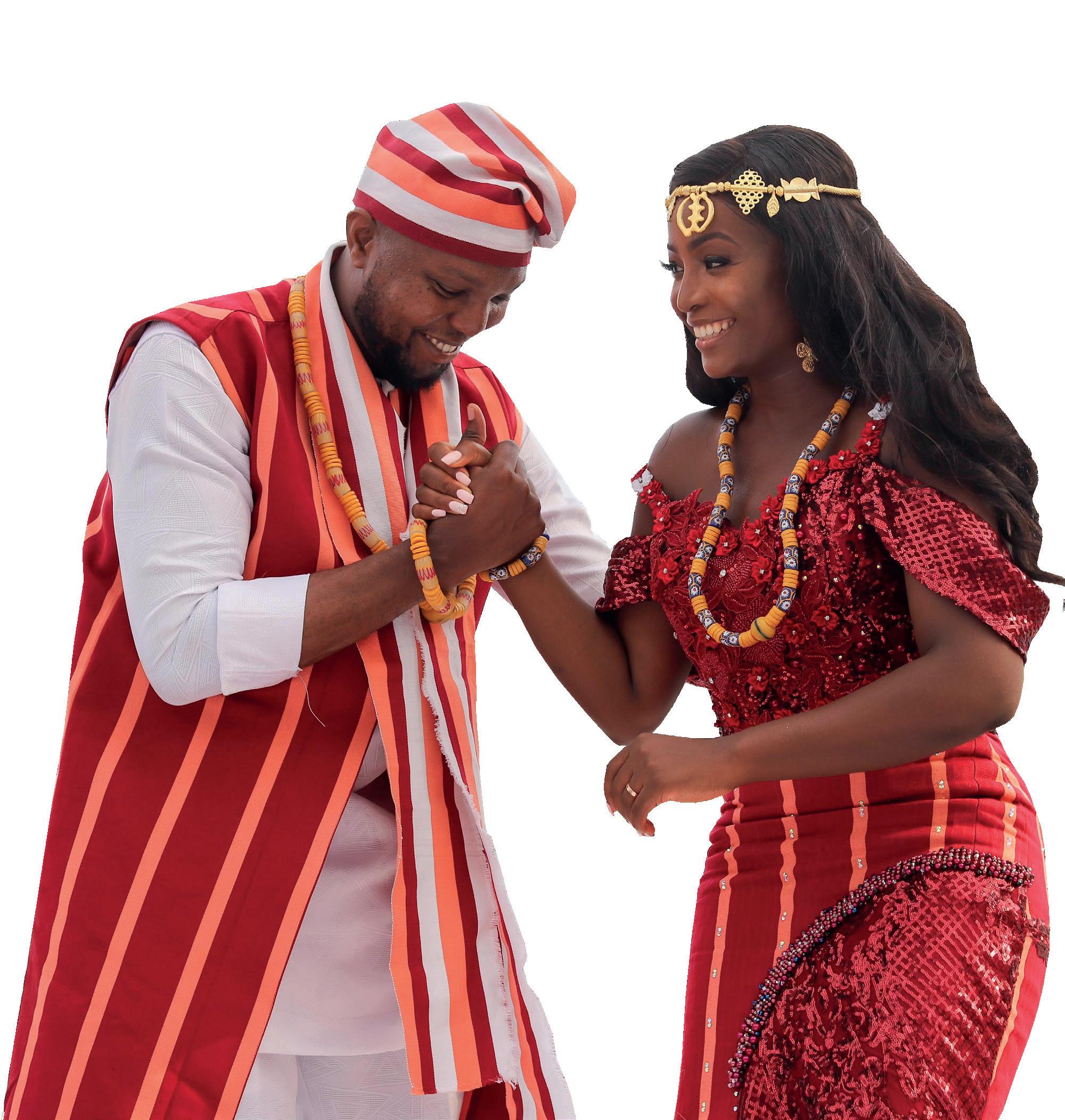
SOLARPOWERED IN GHANA
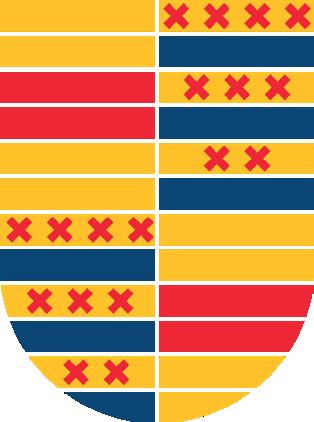
THEME: AFRICA, THE NEXT BIG THING!
* Diana Wesselius - development bank FMO: Africa is a rich continent with big challenges;
* Gary de Vogel - Hi-Tec SA: Rwanda becomes surprise of the century;
* Alex Soethoudt - consultant: Wildlife site is a hobby that got out of hand;
* Jeroen Tollenaar - entrepreneur: coffee roasters in Kenya;
* Charles Odoom - African Center for Economic Transformation: private sector crucial for youth;
* Shayne Vervoort - ex-McKinsey: ANC is church with currents from capitalism to communism;
* Bas de Lange - Chevron: billions of oil dollars have been siphoned off in Nigeria.
MARCH 2023
NYENRODE ALUMNI VCV MAGAZINE NUMBER 295
THEME: AFRICA, THE NEXT BIG THING!
08 INTRODUCTION THEME
10 Investor Diana Wesselius (19960129) worked for 17 years for development bank FMO. "Africa is a rich continent, with many challenges that could limit economic growth."
16 CEO of Hi-Tec SA Gary de Vogel (20107252): "Rwanda will be the surprise of the century!"
22 Consultant Alex Soethoudt (19880175) on her unique choice: "This wildlife site is an out of control hobby!"
26 Carl Makaful Acolatse (20120401) made a promising start with a waste incineration project in Ghana. Then came the elections...
29 Jeroen Tollenaar (20125501) arrived in Kenya to start a coffee roasting business twice. "My wife said, please travel again!"
34 "Private sector crucial for future of young Africans!" Charles Odoom (20100425) is a consultant at the African Centre for Economic Transformation (ACET).
37 "Oil production in Angola and Nigeria was hardly profitable." Thus, Bas de Lange (20000407), engineer/manager for Chevron, states in the largest oil well and gas bubble on the African continent.
40 Software specialist Marcel Nkongo Kwedi (20080415): "I wanted to do work with impact in Cameroon."
42 "When I get on the plane to Cape Town, I go home."
Egon Theunissen (20050343) was CEO of Danone SA for six years. He traded dangerous Johannesburg for beautiful Paarl.
45 "ANC is a big church with currents from capitalism to communism!" McKinsey man and entrepreneur Shayne Vervoort (20100425) highlights South Africa's problems.
48 Asset manager Lies Oudemans (20140063) was an intern in Democratic Republic of Congo: "It is women who care for a stable income!"
SERIES
52 TOP WOMEN
Linda Hummel CEO Until No Leprosy Remains / director Leprosy Foundation:


"I still see people, even children, with leprosy. While that is unnecessary now!"
After 15 years working in international business, Linda Hummel (19820163) decided to devote herself to socially relevant work. She took the funding of Amref Flying Doctors to the next level. As CEO of Until No Leprosy Remains, she found her ideal place, partly because she wanted to give something back, to do something for her disabled brother. Her goal is to get leprosy out of the world.
COLUMNS
03 EDITORIAL
Oele Steenks: Africa, the next big thing!
07 Prof. dr. Désirée van Gorp
LL.M.: The power of Africa
57 Kapé Breukelaar: Tuition fees
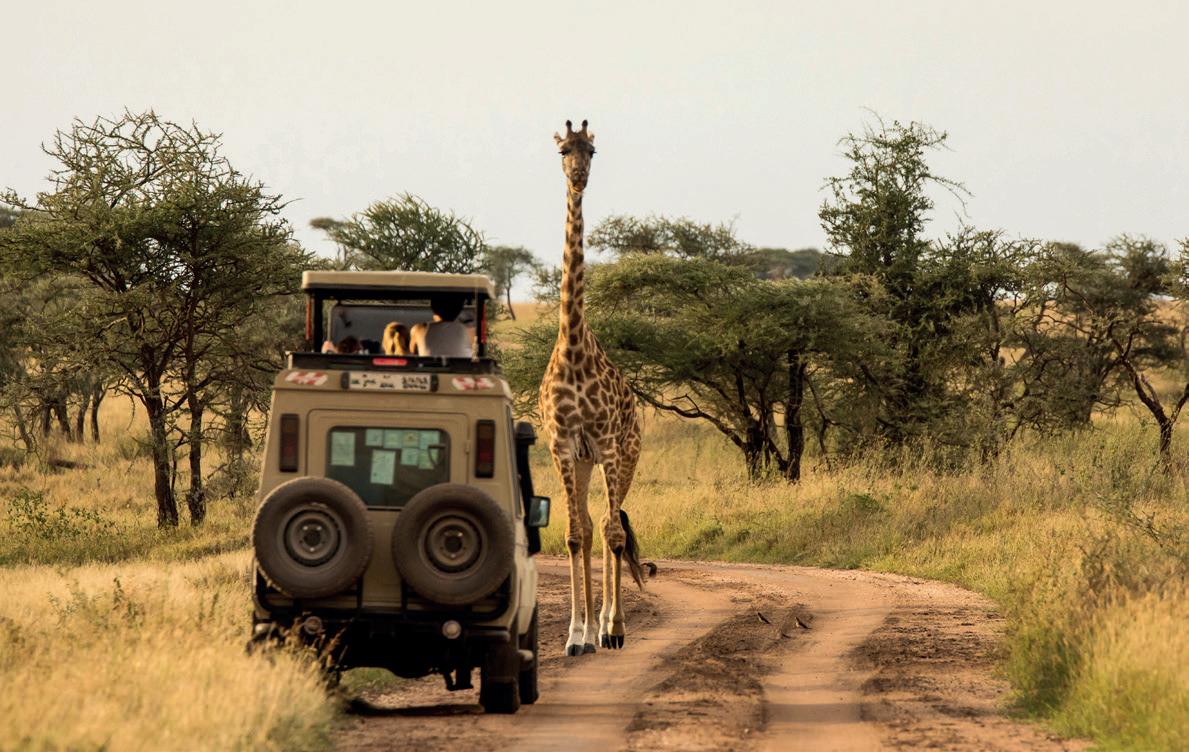
CONTENTS VAN VERRE no.295
VCV NEWS
FOREWORD Corina Blokland 05 NYENRODE ALUMNI VCV NEWS 06 BOARD NEWS 59 COLOPHON SECTIONS 57 TUMTUM 1 58 TUMTUM 2 59 PRIVATE NEWS 2 | VAN VERRE 295
04
Africa, the next big thing!
In this edition, I am your tour guide on a business safari through Africa. This connects to the suddenly emerging urgency from the EU and the US to go on a mega-investment hunt in Africa. As far as being a forgotten continent, that will change in 2023. Africa is "the next big thing.”
In February 2022, Brussels A conference between the African Union and the European Union. In doing so, both sides expressed that the EU will be the African continent's main trading partner, with a front-runner role with regard to development aid and humanitarian assistance.
In 2017, the AU already had an investment programme of 44 billion triggered on the African continent. Ursula von der Leyen announced an additional investment programme of 150 billion euros. With that, among others, the energy transition, infrastructure, digital communications, health care and biodiversity in Africa are further developed.
In December 2022, President Biden hosted 49 African heads of state for a three-day summit in Washington. Here, too, an equal partnership between the US and the AU at the centre. The timing could not be separated from the conflict with Russia over the war in Ukraine. Sentiment among a number of African countries is that they are victims of the struggle, as Western sanctions have put food supplies in jeopardy in part of the AU. To counter, Biden came up with a $55 billion US investment programme in Africa.
An extensive network of Chinese companies investing in the African continent has been rolled out from
Beijing. McKinsey calculated in 2017 that more than 10,000 Chinese companies were active in the EU. The Chinese are very focused on energy extraction (still a lot of coal and oil), infrastructure and transport, real estate and scarce metals.
Nyenrode Business University has trained entrepreneurs, investors and managers who operate on the African continent both from their African identity and from their positions in Western organisations, companies and financial institutions. Relative to the size of the continent, the proportion of alumni is relatively small, but no less interesting. They will work with respect and assurance of European ESG rules and will not want to engage in corruption.
Diana Wesselius (19960129) was 17 years old working as an investor for development bank FMO and provides insight into project approaches in a number of African countries. She points out that ESG rules can slow down financing, but once African partners are on board, understanding of western optics grows. And then profits can be made!
One of the most successful Nyenrodians, Frank van Wezel (19580108), sold his shoe empire Hi-Tec, but kept the African market for himself. His CEO Hi-Tec SA Gary de Vogel (20107252) takes us on a tour of African markets, where he makes good money. His tip for this year is the small state of Rwanda, which is tightly organised under President Paul Kagame.
The man is an enlightened despot, but several alumni argue that sometimes this is better than all the corruption associated with regular elections, as in Nigeria. Bas de Lange
(20000407), manager of Chevron Nigeria, is horrified to see how the political top brass has squandered billions of dollars of oil revenues, threatening to make a section of the population of 220 million destitute, especially now that banknotes are being changed. The Central Bank apparently printed too few.
Africa is a beautiful continent, which produces only four per cent of CO2 emissions. The people are more grounded and used to dealing with living the day to day. Read the story of Jeroen Tollenaar (20125501), who as a modern adventurer set up two coffee roasting farms in Kenya. He has become addicted to living on his farm among the Masai.
Perhaps alumni like Marcel Nkongo Kwedi (200804415), Charles Odoom (20070128) and Carl Makafui Acolatse (20120401) will chuckle at this, because humour is important in Africa. So is love, by the way, as Carl and his bride share their happiness on the cover.
Finally, I would like to express my thanks and appreciation to Corina Blokland (20070305) who stepped down as chairman of the VCV Main Board. I wish her successor Menno Broos ( 20060025) every success and look forward to a constructive cooperation. ♦
Van Verre!
Oele Steenks, editor-in-chief
RESPONSES? josteenks@planet.nl
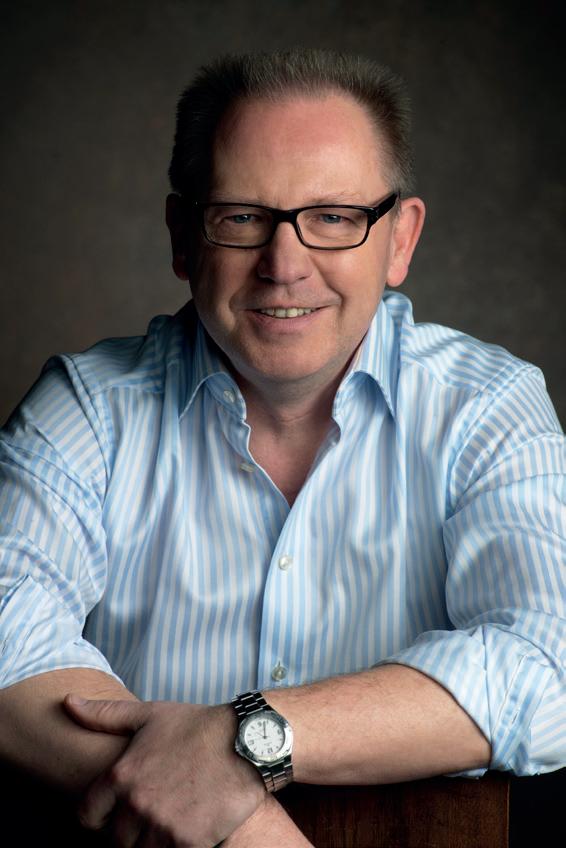
EDITORIAL OELE
STEENKS (19720057)
VAN VERRE 295| 3
CORINA BLOKLAND (20070305)
Love for Africa and passion for the VCV!
This latest Van Verre is about Africa. An immense continent with diverse countries, faces and contrasts. There is a wealth of nature, resources, tribes, and peoples. My first introduction to Africa was around 2005. A friend of mine works for WarChild and with a group of friends we not only went on a wonderful tour of Uganda, but also visited a refugee camp. Beforehand, we had collected sportswear to hand out there. We went to play sports and make music with the children. An experience to remember and a reason to discover even more of Africa. During Nyenrode's Executive MBA, two exchange programmes were scheduled and one of them was the University of Stellenbosch in South Africa. They were long and intensive days, but fortunately we were given time to explore the local area. A winery project meant we were out and about with some regularity, learning more about the country and its culture. And moving forward, the many wine tastings were no bad thing either.
My last trip to Africa was to Ghana, together with Peter Willemse (ICT Commissioner) and Jan Bernard Nolst Trenité (former VCV president). Ghana is JB's second homeland and he showed us around, introducing us to the local culture and history. All in all, three unique experiences that made me take Africa into my heart, however limited my travel experience may be. When it comes to travel, for now, my journey as president of the NA VCV Main Board also stops. Impending motherhood combined with my businesses, means that I no longer have the time to be able to carry out my function with full attention and passion. And it just sits in me that I would like to
RESPONSES? ➜ bloklandc@gmail.com
AGENDA
06-04-2023
Nyenrode Alumni Event in London
11-04-2023
Nyenrode Alumni Talks
13-04-2023
Marketing & Digital Circle
01-06-2023
Retail as an ecosystem in 2030, Circular economy
get it right, or not. I look back with great pleasure and pride on the more than 11 years I spent with the trust of you, have been able to contribute and build the NA VCV. Thank you for that and when the time comes again, I hope, with a lot of energy, passion and love, to be able to do something for our association again.
In my view, the VCV is something we as alumni should be proud of and cherish. Fortunately, everything we organise is very much appreciated. Things were a bit tricky for a while because of corona, but we notice that things are picking up. The investors event in the Ridderzaal was chock-full and the circles are also coming again, both in the Netherlands and internationally. I saw beautiful events coming up on our platform from the Ladies Circle, Kring Commis-sarissen and Kring London, among others, where drinks will be organised shortly. Travel along on all this positive energy where we work (together) in many ways on what connects us: Nyenrode and its core values of Leadership, Entrepreneurship and Stewardship. I bid you farewell as chairman, not as a Nyenrodian. I want to express special thanks here to my colleagues in the Main Board, the Alumni Office, the RvA Board, the annual representatives, the editors of this magazine, the Nyenrode Board of Governors, the Heeren V NCV, the JCV Board and the VAS. Once I started studying at Nyenrode, I was told that besides being a reward for life, Nyenrode also provided friends for life. Nothing could be more true!
Van Verre, Corina Blokland President

11-06-2023
Vintage car & convertible day 03-07-2023
Nyenrode Alumni
RBM Golf event 2023
For applications and more information: nyenrodealumni.nl and Nyenrode Alumni VCV Office, info@nyenrodealumni.nl, telephone 0346 - 291 513
Nyenrode Alumni Circle
Amsterdam & Circle
Sustainability wanted to address a serious topic in a light-hearted way and they succeeded! Alumna Tanja Dik (19920911), CEO of the Johan Cruijff ArenA, was on stage with the talented improvisational artists of Boom Chicago. Tanja talked about her ambition to aim for net positivity for the Johan Cruijff Arena in 2030. Coldplay's concerts (15,16,18 and 19 July) are a challenging test case, to include all partners in the supply chain. Boom Chicago comedians knew how to deal with that.
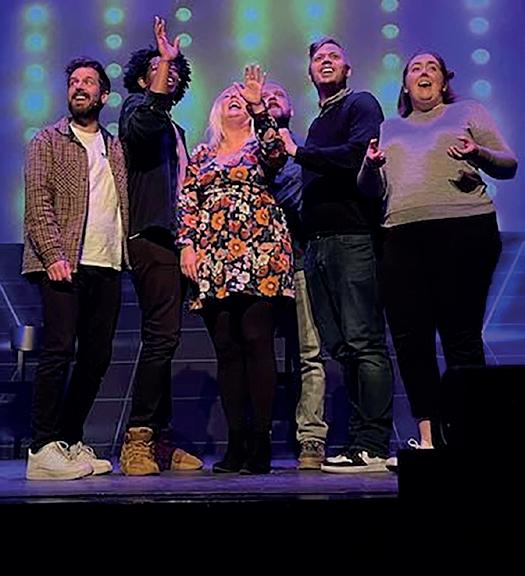
OF
THE BOARD
Corina Blokland (20070305) is chairman of Nyenrode Alumni VCV. She did PTMSc and EMBA at Nyenrode and is an entrepreneur.
♦
4 | VAN VERRE 295
NYENRODE ALUMNI VCV OFFICE, INFO@NYENRODEALUMNI.NL, TELEPHONE: 0346 - 291 513
TANJA DIK MEETS BOOM CHICAGO....
LADIES CIRCLE HAS A MEGA RESTART!
How can female leadership grow and how can the quota of women on boards, boards of directors and supervisory boards be met? That was among the topics at the Ladies Circle – Female Leadership held at the Coach house on 16 March. Two top women acted as inspirers: Ceo Aon Holdings Marguerite Soeteman-Reijnen (19850161) and Carla van Stralen (20000373), top coach and founder of The Women’s Leadership Programme. In the Top 100 corporate women of 2022 (Management Scope, ed.), Nyenrode women are well represented. But it was also stressed that ultimately it is about the impact, inside and outside the organisation, that women in these positions want to make. Inspired by Marguerite and Carla’s stories, there were roundtable discussions on their own leadership development. Ten alumni top CEO-level women acted as table hosts and got to lead the discussions during the interactive session. Success stories reach the media, but daring to show vulnerability can be just as important in achieving personal goals. And that is what the 100-plus women during this evening were able to show and experience.
This Ladies Circle event was the restart of the circle and we hope to organise many more great events in the near future. We are looking for a new board so if you would like to help shape these events please send an email to info@nyenrodealumni.nl

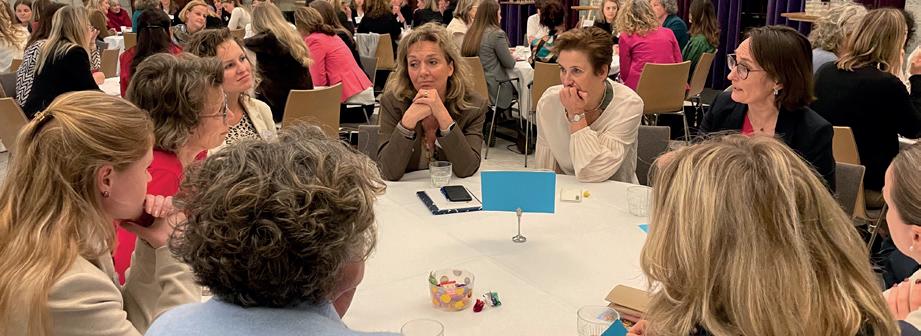

This was Nienke Janzen's last event, she is unfortunately leaving our team. We wish her very good luck in her future and thank her for her efforts.
INVESTOR DAY:
FOUR SCALE-UPS GOING FORWARD
This year's Investor day featured the category, scale-ups, on the agenda. Interest at registration was high and four scale ups passed the selection to be presented at Investor day, which took place on 16 February in the castle's Knights' Hall. As many as 72 interested parties, including the requisite investors, had descended on the four pitches from the following companies:
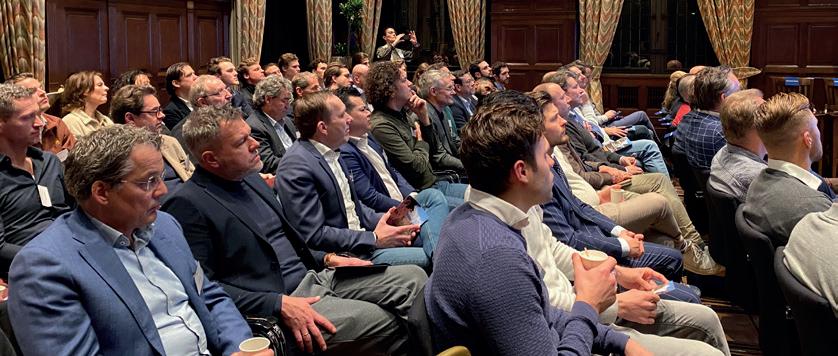
Siip Group, a tech company that provides customised identification, authentication and verification solutions based on a real identity. The technology offers multiple applications including closed-loop ticketing, meaning that from the time a ticket is issued to the time it is used, people know they are dealing with a real person. This adds value and means you can reach every individual in the audience.
IPD is a health-focused initiative that was convincingly pitched by Richard van de Wateringen. A smart solution to infections on prosthetic joints and metal implants. 2Play focuses on creating an interactive playground for young children in several shopping centres in the Netherlands. A concept that perfectly matches young people's search for new experiences driven by technology. OOPKOP Is declining mental health the next pandemic? Not according to OOPKOP, a scale-up that is more than a platform but a true business partner in mental health.
Investorday was led by Bas van Lieshout and Yvette Schuurmans of Entrepreneurial Nyenrode. Aart Zandbergen, venture capitalist at Smartbiz Investment, was the moderator.
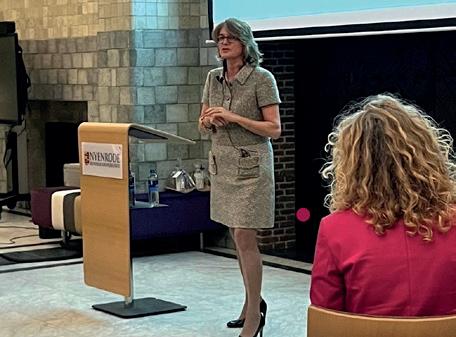
SMART HANDLING OF CORPORATE DATA
On Thursday 13th of April, there will be an interesting knowledge session on how to apply data smartly for Marketing & Sales. That evening, the Marketing & Digital Circle will be the guest of Company.info (part of FD Media) at the Glasfabriek in Amsterdam. Company.info is an organisation that brings together relevant data about companies, structures it and makes it accessible based on smart technology. More information and tickets can be found on the VCV platform under Events (www.nyenrodealumni.nl)
NYENRODE ALUMNI VCV NIEUWS
VAN VERRE 295| 5
STUDENT BOARD NEWS
NCV MODERNISES TRADITIONS!
as part of a 'company project.' They will provide quality education in the region concerned, for which a third school is under construction.
The trip is the first contact between Nyenrode students and the students of the Farato Education Foundation. The aim is a collaboration between Nyenrode Business University and the people of Farato. The trip will last one month. Development workers are expected back in mid-April.

Meanwhile, the Dies Natalis of the NCV in March was celebrated with a boxing gala. This was preceded by a weigh-in & stare-down presentation. At the sports hall, 16 boxers set against each other in the ring.
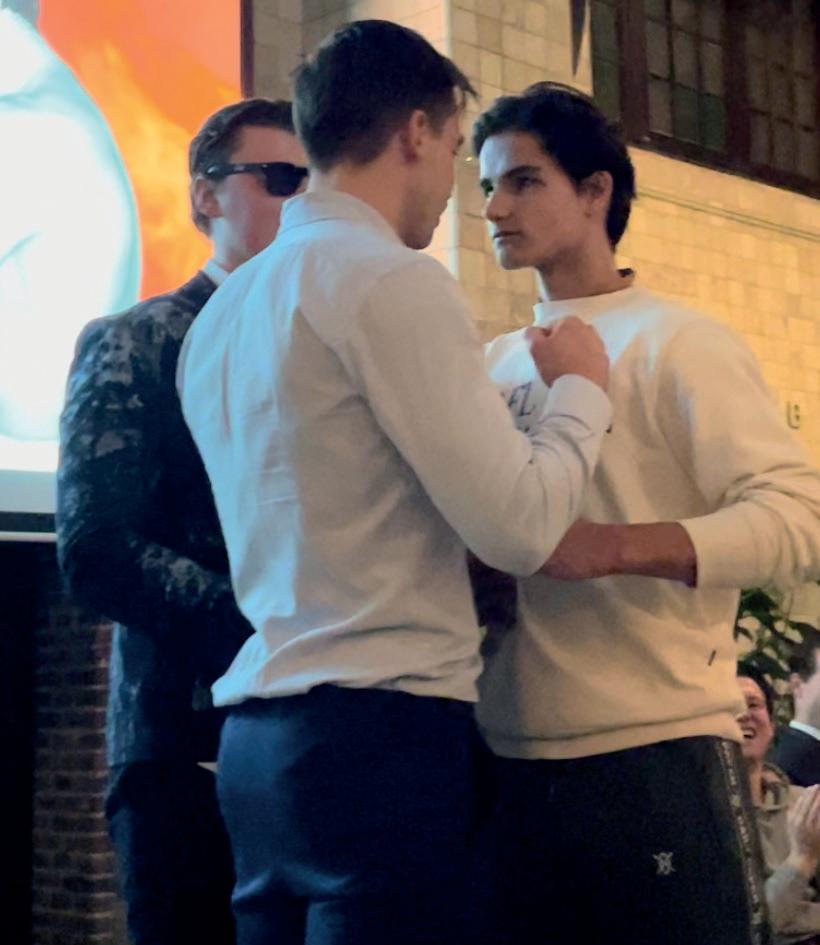
Furthermore, upcoming year clubs participated in 'Crazy 78, The Battle of the Yearclubs.' They were given the chance to express themselves as a worthy year club, by doing fun things together and carrying out assignments in a mutual battle against other friends' clubs.
have been forgotten but could bring a lot of inspiration and training. That is why we worked hard on the return of the 'catheter nights.'
In these, all students, several times throughout the week, gather together in the mensa food. Meanwhile, speeches provided from the lectern and can be discussed with and by the audience. It is part of our efforts to future-proof the NCV. We want our student body to reflect more on its own functioning, especially under the critical, societal imagery of corpora.
The second-year bachelors travelled to the Gambia in March to engage with local people. They are part of the Farato Education Foundation
Finally, in April, a Nyenrode student team will take part in a student sailing event for classic ships. They will venture on a fine ship crossing to England in a race against other student teams from the Netherlands. It promises to be an exciting event!
This administrative year, the Collegium is examining which student traditions
Finally, when the Collegium took over in January, it got the chance to attend the first big Lords Five of Yesteryear Homecoming - Time for Change. A successful evening where more than a hundred alumni of the XIth to the present Collegium, from 11 different countries came together at the Coach House to meet again, dine together, discuss, listen attentively to speeches and tell stories themselves. For all, it was coming back to a place they called home. This is what makes NBU's training on the estate so unique. It is not only an academic experience, but also a home for life! ♦
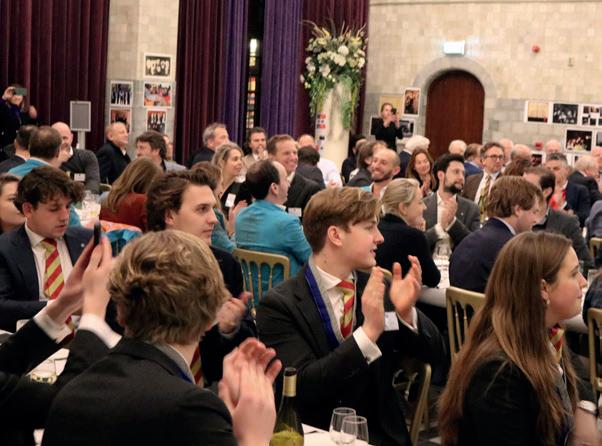
On behalf het LXXVIIIe Collegie der Heeren Vijf, Van Verre!
The JCV board kicked off its year with a well-attended breakfast session on 10 February at the IGC in Amsterdam. Jan-Bart van Beek, manager at computer game maker Guerilla Games and Merel Osinga, working at
SunRock, the developer of smart energy solutions, offered a lot of knowledge and practical experience. The following week, it was time for a fitting session with sponsor Quality-Tailor in Haarlem. In front of the fitting
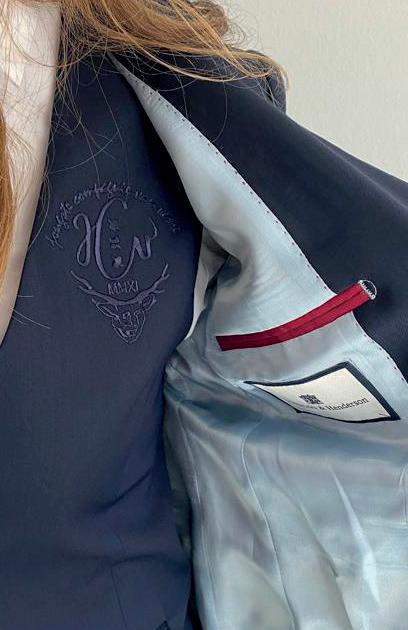
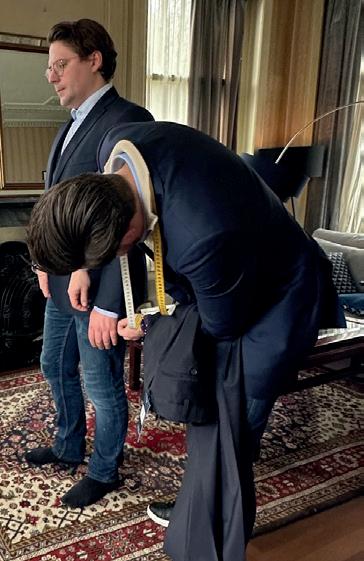
 Farato Education programme Gambia.
Stare Down for Boxing Gala.
Farato Education programme Gambia.
Stare Down for Boxing Gala.
6 | VAN VERRE 295
Heeren Vijf Homecoming.
JCV NEW BOARD, NEW OUTFIT
ENTREPRENEURIAL NYENRODE: MORE THAN PODCASTS!
Last December, a changing of the guard took place at Entrepreneurial Nyenrode. This happened during a podcast with designer Fabienne Chapot, with the old and new board jointly broadcasting. The new team consists of seven people who will inspire NBU students on entrepreneurship. Of course the podcast remains on the programme, but the ambition extends further. Think to a golf event, negotiation training, idea generation workshops and hosting various guest speakers.
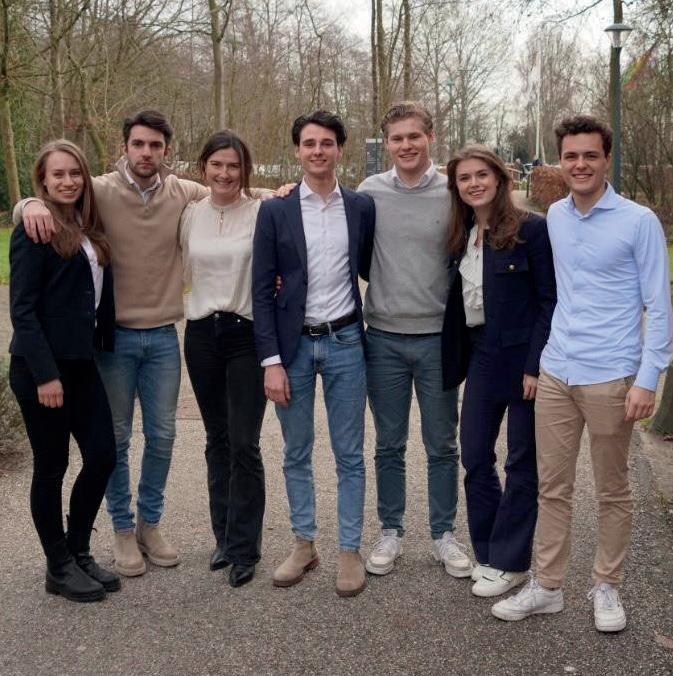
Van Verre!
Bas van Lieshout - Chairman
Yvette Schuurmans - Vice chairman
Hessel van Holten - Head of events
Sofia Konincks - Head of promotion
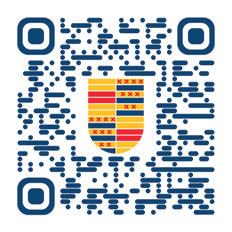
Stella Visser - Head of outreach
Thom Prins - Head of podcast
Philip van Tholen - Head of technic
The Power of Africa
Africa, an immense continent with beautiful nature, rich in resources, infectious entrepreneurship and with the youngest population in the world. Nyenrode has a modest but powerful footprint on the continent from alumni who live and work there. They regularly point out the continent's potential to us. For example, there are great opportunities for African women to take more of a lead in trading activities. Women not only play a vital role in social cohesion within many countries on the African continent, but they also represent enormous economic potential that is partly untapped. An important role model and champion of developing female potential is Dr Ngozi Okonjo-Iweala She refers to investing in women as smart economics: "Investing in women is smart economics, and investing in girls, catching them upstream, is even smarter economics."
Dr Ngoizi is the first female and first African Director General of the World Trade Organisation (WTO). Perhaps more importantly, she is, in my view, like no other person who can bring innovation to the World Trade Organisation.

She is bigger than the paper of her curriculum vitae can bear with her role as a reformer in various ministerial posts in Nigeria, development economist at the World Bank and now as the boss of the WTO. In that role too, she will no doubt succeed in promoting social and economic development in the least developing countries, as she has done tirelessly throughout her impressive career. Last November, I had the honour of welcoming Dr Ngozi to our Nyenrode community with the conferment of an honorary doctorate, thus following in the footsteps of a continent peer, Nelson Mandela. In the various professional roles that Dr Ngozi has held, she has always stood by her ideals, despite opposing forces, and has been able to translate them into actions demonstrating exceptional leadership. How honourable that she is now associated with Nyenrode in a special way. Like many of our alumni, Dr Ngozi believes that the best way to further develop Africa's potential is to create jobs and that is where entrepreneurship plays a crucial role. That is why the WTO particularly supports entrepreneurs with smaller businesses and women entrepreneurs to enter regional and international markets. As far as I am concerned, there is an important task for Western multinationals and for all of us to connect the African continent with higher value-added products and services to global value chains.
OUTFIT
mirror, the realisation dawned that the new JCV year had really begun. On to the Rally and see you at the ALV!
Van Verre!
The 12th JCV board
With rapidly growing populations and urbanisation, new entrepreneurship is emerging in so-called charter cities. These are new cities with their own legal systems in response to the increasing migration of mainly young people to cities, where entrepreneurship and new governance structures can be given free rein away from old political and economic grievances that have gripped many cities. In Nigeria, for example, a new city, Itana, is being built. Also in Rwanda, Zambia and Zanzibar are initiatives of these urban laboratories, experimenting with, among other things, regulation, governance and countries are free to roll out the lessons learned nationwide. Yes the power of Africa, that is what this column is about and what I believe in. In my role on the advisory board of the WTO's Chairs programme, I experience the power of Africa in colleagues I get to work with. Another great example is the Wildlife Forensic Academy established in South Africa. It is the essential missing link in the backlash against poaching crime, which is gripping wildlife and nature on a global scale. And yes also us, as interest rich transit country for illegal poachers. Nyenrode is partnering with this Academy this year. The first programme, a unique symbiosis of design, thinking, and leadership, will be offered exclusively to our alumni in the autumn. In this way, we are embracing the power of Africa within Nyenrode. ♦
d.vgorp@nyenrode.nl
COLUMN
PROF. DR. DÉSIRÉE VAN GORP LL.
For
VAN VERRE 295| 7
text with footnotes use the QR code
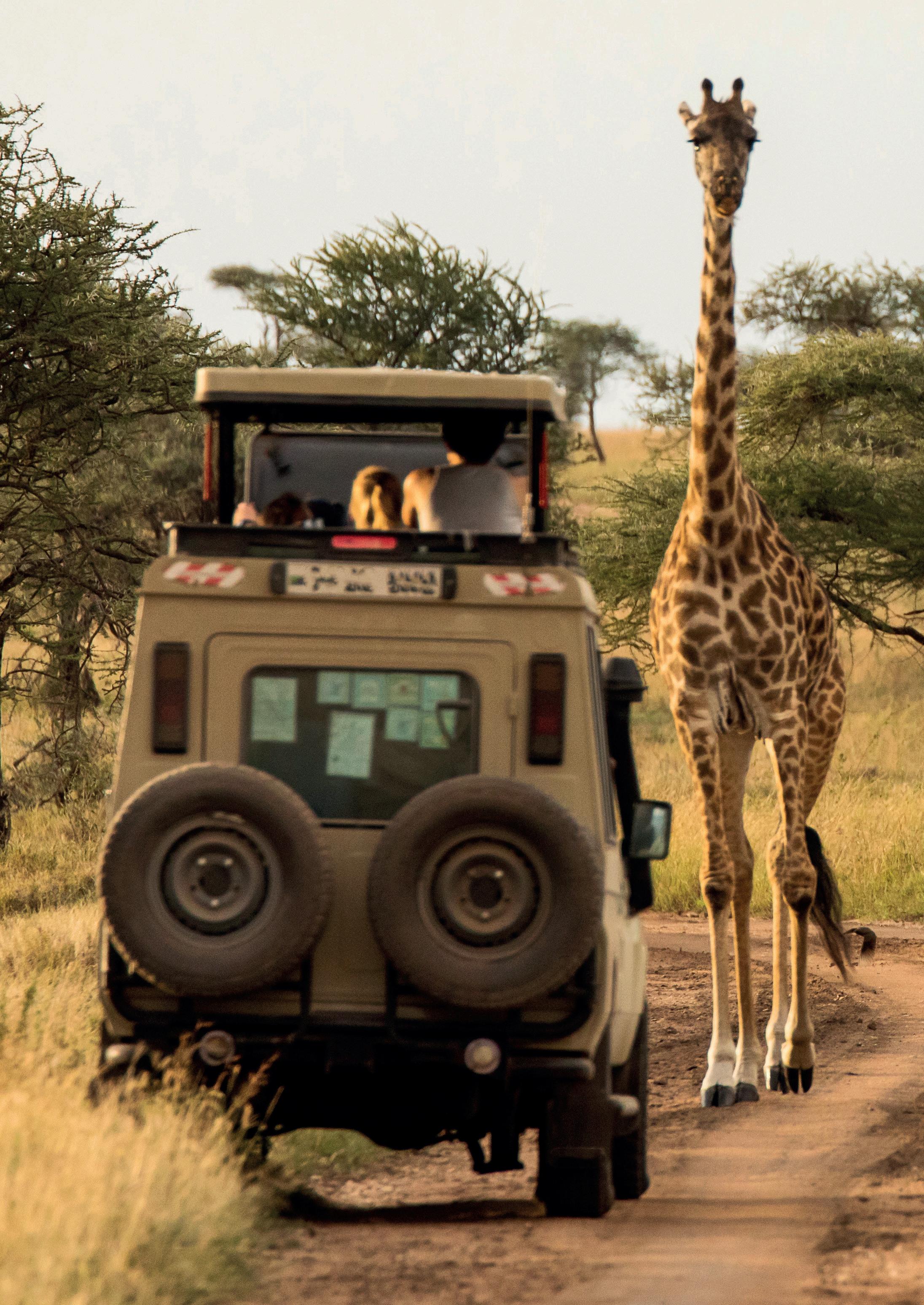
8 | VAN VERRE 295
THEME: AFRICA, THE NEXT BIG THING!
Africa has a magical ring to it: the only continent where the unique nature and its inhabitants still live in some harmony. Well-earning people from Europe, the United States and Asia must surely have seen the Big Five once in their lives. The tourism industry often makes the natives look at them through romantic glasses. The people of the continent's 54 countries are proud and more grounded than Westerners.

The question is whether modern Africans want to be seen that way. In any case, they made it clear in 2022, how they as international business partners want to be treated. The EU said an investment package of 150 billion and the US came up with a sum of $55 billion. With this, energy transition, infrastructure, digital communications, healthcare and biodiversity are further developed. These are projects in which state-owned enterprises enter into partnerships with the multinationals of this world. These partnerships should further provide access to the international capital market.
This edition features alumni who have made a professional contribution or have provided to economic transformation in Africa.
The interviews with investor Diana Wesselius (19960129) who worked in Africa for 17 years for development bank FMO; with CEO of Hi-Tec SA Gary de Vogel (20107252) who works Africa's consumer markets, and with Ghanaian business consultant Charles Odoom (20100425) who advises governments; provide insight into the continent's huge potential and major constraints.
The flip side of the coin in many states is politics, elections, monetary policy and the elephant in the room called corruption! In this context, read the following interviews.
Shayne Vervoort (20100425), ex-McKinsey and entrepreneur, highlights the problems of South Africa where ex-President Jakob Zuma was responsible for a deep-rooted system of corruption. Recently, the ANC was found to still have links with President Putin's Russia.
Bas de Lange (20000407), engineer/manager for Chevron, notes in a personal capacity that Nigeria's leaders have funnelled billions of dollars to London and Dubai. Images from the recent elections show the desperation of ordinary Nigerians.
Businessman Carl Makafui Acolatse (20120401) made a promising start with a waste incineration project in Ghana. Then the elections came and the project immediately ground to a halt. Fortunately for Carl, the private market for solar energy is also flourishing in Ghana!
VAN VERRE 295| 9
"Africa is a rich continent, with many challenges
DIANA WESSELIUS
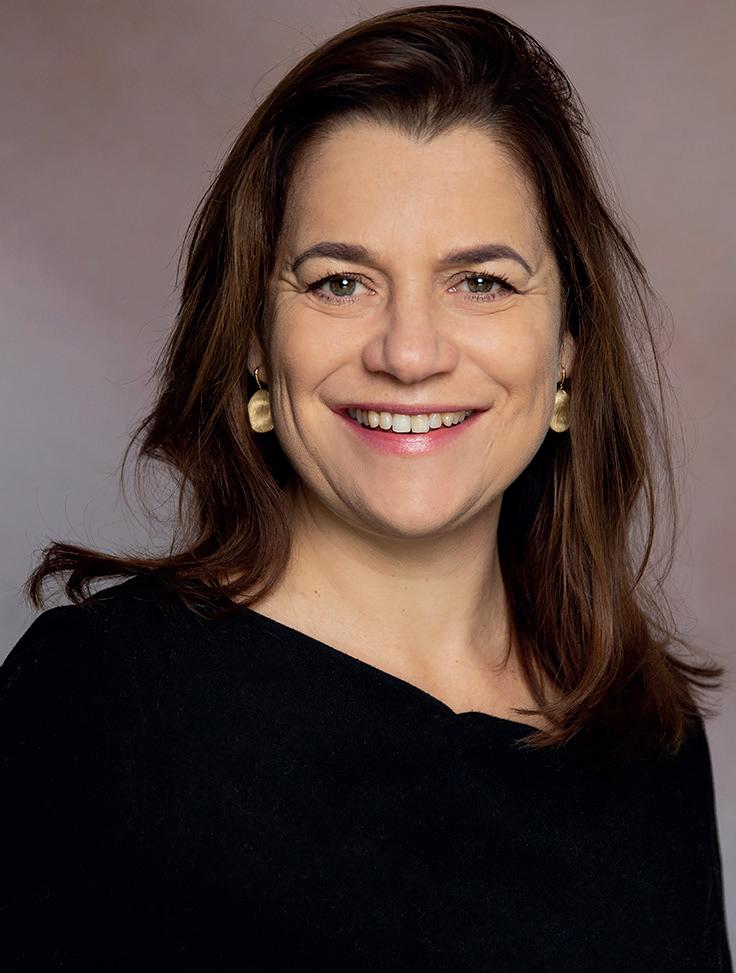
EU comes up with €150bn investment guarantee to do big business with the continent. Diana Wesselius Msc (19960129) has made investments in the infrastructure sector for 17 years for development bank FMO, with a strong focus on the energy sector. There is an ideological agenda, but the Dutch development bank does make a profit. For Diana, working with ambitious people with a passion for impact, who want to actively contribute to a better future world, meant great satisfaction. She shares her experiences and insights in a personal capacity.
BY OELE STEENKS / PHOTOS FRANS LEMMENS (19710024) & DIANA WESSELIUS
In 2022, the European Commission reached an agreement with African countries, represented by the African Union (AU), to start investing €150 billion in Africa. A deadline was not mentioned, but it makes sense to link the year 2030 to it, as the so-called Sustainable Development Goals (global sustainable development goals) must be met by then.
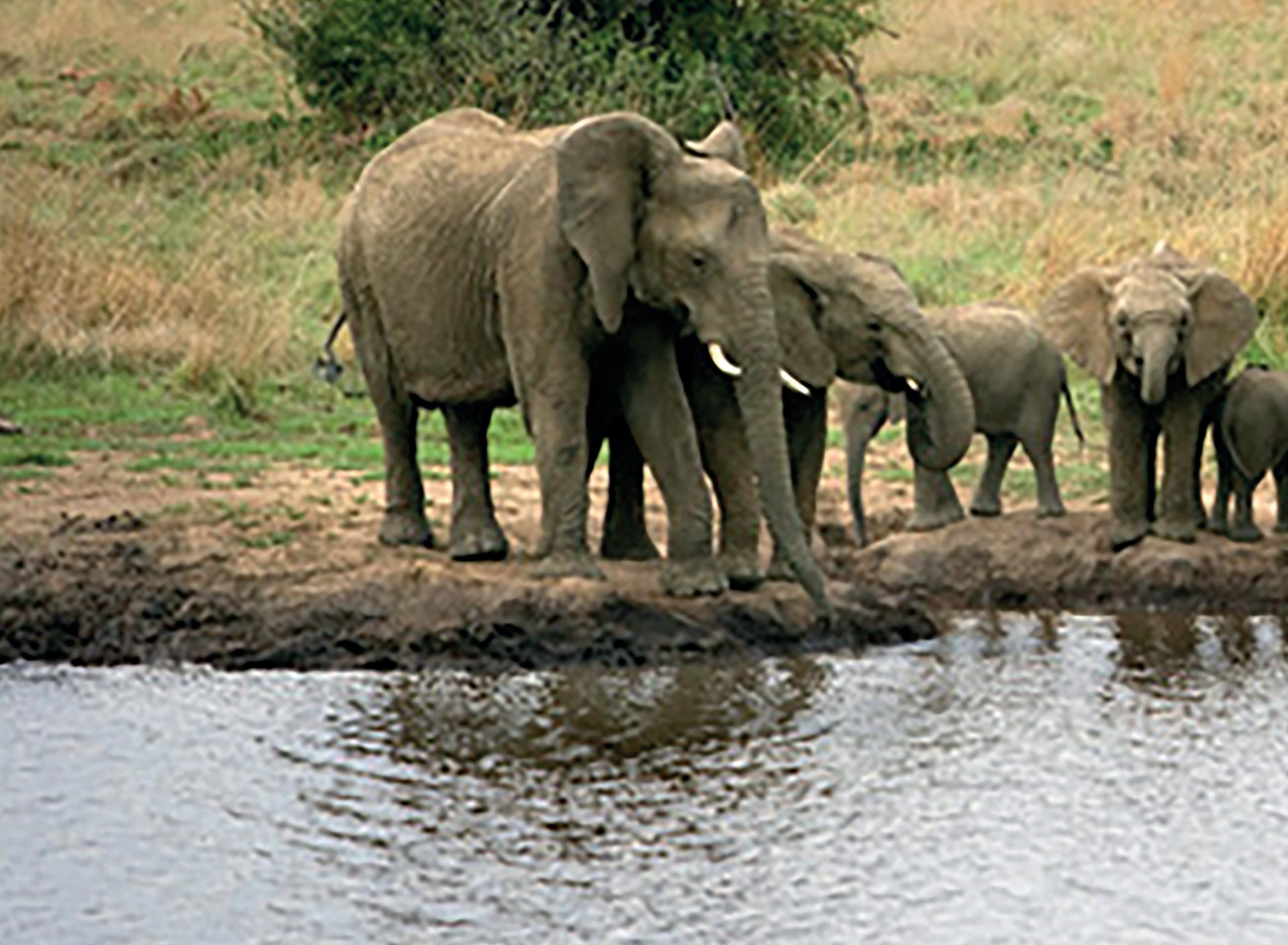
It was emphatically stated by Ursula von der Leyen, that business should be done on the basis of equality. The era of development aid would end.
In our country, the development bank
FMO is engaged in financing the private sector in Africa and elsewhere, with the aim of contributing to inclusive and sustainable welfare growth. That it is not about charity, according to its 2021 annual report, which reports a profit of €491 million. A multinational will not turn its hand to it, but still! The valuation of the private equity portfolio had gone up after the end of the corona pandemic, the dollar exchange rate was favourable and most customers had met their financial obligations. In doing so, the portfolio of outstanding loans provided a stable income. FMO now has a committed portfolio of 10 billion euros
of investments. That FMO's mission is special is also quickly apparent from the annual report. 714 million was invested in reducing inequality in the world and 544 million went to companies and/or projects that contribute to achieving climate goals. The underlying activities of FMO's portfolio are said to have created 644 thousand direct and indirect jobs. These are the final figures, but they certainly do not tell the full story about financing in Africa.
COMPLIANCE WITH ESG STANDARDS
"As a development bank, FMO has high ESG standards in the financings. Projects
10 | VAN VERRE 295
challenges that can limit economic growth."
and business models are not only tested for financial viability, financings are also assessed for environmental and social impact of the underlying activity, governance practices, and compliance of the African partner with anti-money laundering and anti-corruption regulations. So we are going in with a moral compass. This means that it does take some time before we reach a final financing decision. Improvements in the ESG approach of the entrepreneur concerned or the local government bodies are regularly required before FMO can proceed with financing. FMO also assists the parties it finances in putting 'best practice' into practice. in managing ESG. A good example is involving local people in the plans for the development of energy projects, in a way that the local population is also benefit from it. In this, South Africa is a forerunner on the continent. In bids for energy projects it is a requirement that a percentage of the projects' profits are distributed to local people. These contributions are then invested in projects that benefit the community," Diana Wesselius said.
ROLE OF CHINESE INVESTORS
We hear and read a lot about the increasing Chinese involvement in
infrastructure development in Africa. Isn't it more interesting for an African party to do business with Chinese parties, who don't seem to take ESG so closely?
"It is certainly interesting for most African countries to work with the Chinese parties. The Chinese have different motivations than the Europeans, they see Africa mainly as an important trading partner. With that, they are generally very pragmatic in their approach. China's involvement in Africa is often viewed with suspicion, but I believe Africa needs the involvement of the Chinese as well as Europeans and Americans to develop as a continent. The different approaches from Europe, the US or China have both advantages and disadvantages. As an example, when an African country wants to develop an infrastructure project, the Chinese are ready to start building the next day, and bring their own funding. European parties are also interested in building and financing the project in question; however, they come with conditions and it takes months before those conditions can be met. The Europeans place an emphasis on aid and have a desire to take Africa to the next level. The downside of the quick Chinese approach is that the local population benefits less. For instance, the Chinese generally provide

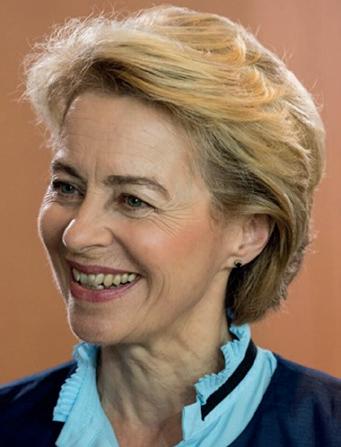
less scope for local employment. It is also likely to claim, for financing, crucial infrastructure as collateral, threatening the economic independence of the country concerned. However, when the infrastructure project is urgently needed for a country's economic prosperity, as was the case, for example, with the rebuilding of Nairobi airport after a major fire in 2013, the Chinese can provide the quickest solution. Several African leaders feel that China is more responsive to the needs of the countries concerned. At the same time, there are examples where crucial infrastructure, including port infrastructure, has become owned by the Chinese because loans could not be repaid on time. Short-term thinking puts countries in
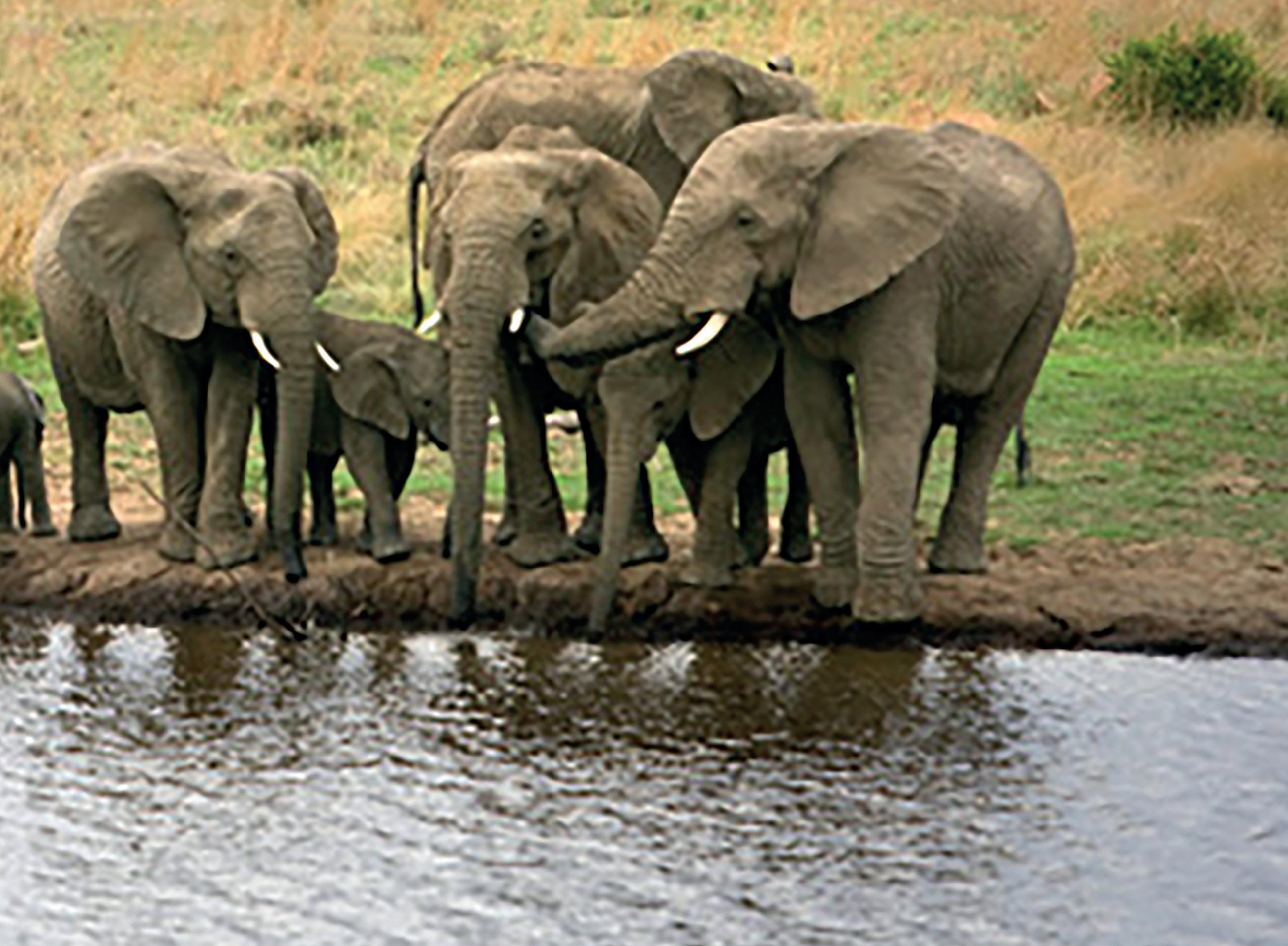
VAN VERRE 295| 11
President of the African Union, Macky Sall (also president of Senegal) and Ursula von der Leyen, European Commission president struck historic €150bn deal.
an awkward squeeze that they cannot easily get out of," Diana Wesselius said. This situation fits into the global discussion about the threat posed by China as an economic power, which would not heed the principle of an international "level playing field.” The people's republic is portrayed by financial insiders as a cunning predator who has a large share of precious metals and cheap coal and oil from Africa.
Does that leave enough to make development finance profitable?
"The perspective you paint of 'financial insiders' is one-sided, Ignoring the nuance of the contribution that China delivers on the continent. There is an awful lot to do, and contributions from different regions will remain necessary. In the realisation of infrastructure projects and power plants, with the associated electricity networks and distribution systems, there is still a lot to invest. There is also growing resistance in Africa to the less social nature of Chinese
and Egypt stand out as far as BNP is concerned. That versatility requires flexibility in approach, even from a funder or entrepreneur," Diana said.
GROWTH LIMITING FACTORS
Incidentally, Africa's wealth of oil, gas, coal, precious metals and diamonds in particular, as well as its coffee and cocoa crop, should make for much better growth rates when compared with emerging economies in Asia and Latin America. "Politics and corruption are growth impeding factors in Africa. I believe that in several African countries, democratic systems do not necessarily produce optimal progress. Rwanda, for example, has made tremendous progress, in both infrastructure as well as economic growth. The country has been led for more than 20 years by Paul Kagame, who has been able to successfully roll out his ambitious plans for the country with a long-term perspective. This is positive, of course, but he is also criticised; opposition is
power who can be characterised as an autocratic leader. Sometimes you have to admit that such a leader is better for the stability of an African country to bring a modern vision to fruition," Diana
Wesselius said.
RESPONSE TO UN CLIMATE CONFERENCE COP27
During the UN climate conference COP27 held in Egypt in November 2022, the African climate agenda was high on the discussion list. Freely translated, the sentiment was that it was precisely in Africa that a direct transition to a fossil fuel-free economic bloc could be made. This had to be matched by extensive financial compensation. Behind the scenes, what did African countries really think about this? "It is a highly controversial topic and it is really sensitive with African leaders. The fact of the matter is that Africa as a continent contributes only three per cent of global CO2 emissions. African politicians are simply angry. Who say you in Europe still use coal-fired power plants, why should we suffer. We need a reliable base of energy - read: not volatile - to keep the economy drive and as a basis for further expansion of the energy mix with renewables. On the other hand, European development banks no longer want to invest in oil- and/or gas-fired power plants. In essence, we are saying, if you want to develop oil and gas, you have to organise the necessary financing yourself. From an African perspective, I can imagine Europe being accused of hypocrisy. Meanwhile, investors from Saudi Arabia and the other oil states in the Middle East are eager to jump into this market.
investors, that it is with the working conditions of workers not working together too closely. In doing so, we also see among African leaders a development in the consideration of environmental and social impact in the development of infrastructure projects. I am now speaking generalising about Africa, but we should also reflect on the continent's diversity. Europeans often speak about Africa as if it were a unity, but in reality involves 54 countries that all have their own political realities, diverge in culture and characteristics of the population, have different economic opportunities and certainly differences in wealth, with Nigeria, South Africa,
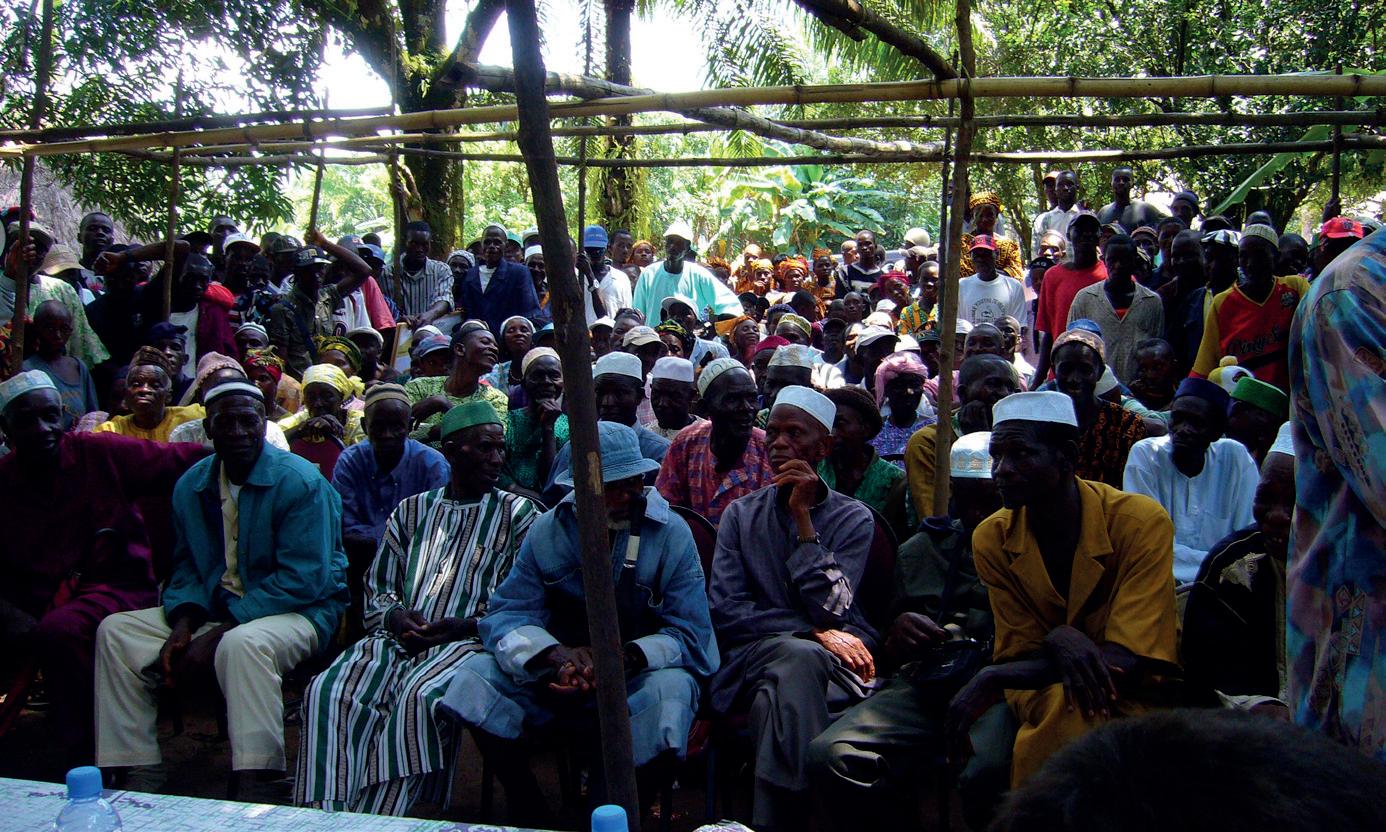
not tolerated in the country. In more democratic countries, we often see a lot of uncertainty surrounding an election, delaying many decisions around infrastructure projects and also temporarily reducing economic activity. Corruption also leads to suboptimal decisions and delays that do not benefit the economy. Looking at the wealth of natural resources in the region, it is no doubt that the recent high energy prices in countries such as Nigeria and Angola have been positive.Meanwhile, Uganda and Rwanda, countries with fewer resources but beautiful nature, have done very well in developing renewable energy. Uganda also has a president in
The Chinese are also taking advantage of the situation. For them, coal, oil and gas are still sources of energy that are imported from Africa without discussion. At the same time, it is really shocking to see how much resource wealth Nigeria has and how few inhabitants of those 220 million, have access to energy. Nigerians have not yet been able to translate their national wealth into domestic energy needs," Diana Wesselius explains.
REALLY POOR COUNTRIES
Diana worked as an investment manager in the African market for 17 years, focusing on telecommunications, infrastructure projects and energy projects respectively, always with a business perspective, which meant
12 | VAN VERRE 295
Information meeting with local people in preparation for the Addax Bioenergy project in Sierra Leone, the construction of which was initiated in 2008.
investments had to be repaid. "There is collaboration with other investment companies when doing financings from the EU, with the German and French development banks being the main parties in the cooperation. The new EU investment package of 150 billion should be seen as a combined grant, loan and guarantee package for project investments co-financed by development banks as well as international asset companies and major banks. NGOs will also be supported from the fund. "
In recent years, Diana Wesselius and her team invested an amount of €100 million on average per year in energy funds and projects in developing countries worldwide. Although the Ministry of Finance is the main shareholder in FMO, funds with a specific development mandate are also allocated by the Ministry of Foreign Affairs. There was a clear focus on Africa, with an extra focus on poorer countries. Citing as truly poor countries they based on GDP per capita Malawi, Madagascar, Sierra Leone, Mozambique, and Chad.
From Diana's experience Wesselius gained in the African practice, it appears that quick assumptions about the goingson in Africa, can be very misleading. "It is a complex continent, with every country has its own challenges, own culture and different norms and values apply. Generally, Western parties get a lot of comfort from promises and contractual agreements. Promises are friendly and well-meaning, but mean little as long as it is not in writing. Then again, some governments don't take contractual agreements very seriously. In the energy sector, a guarantee from the government is often needed on payments from the party taking the energy. Because in many countries the energy tariff, the actual costs do not cover, local utilities rely on government guarantees. We make those guarantees a condition of financing. It happens that once the project is built, and both the buyer and the government are tight on budgets, agreements with regard to tariffs and guarantees are not complied with.
In Western culture we extract financial comfort from contractual obligations. Contracts in Africa often provide false security. An arbitration case can just be five to 10 years. And if you do then lose goodwill from the government, which
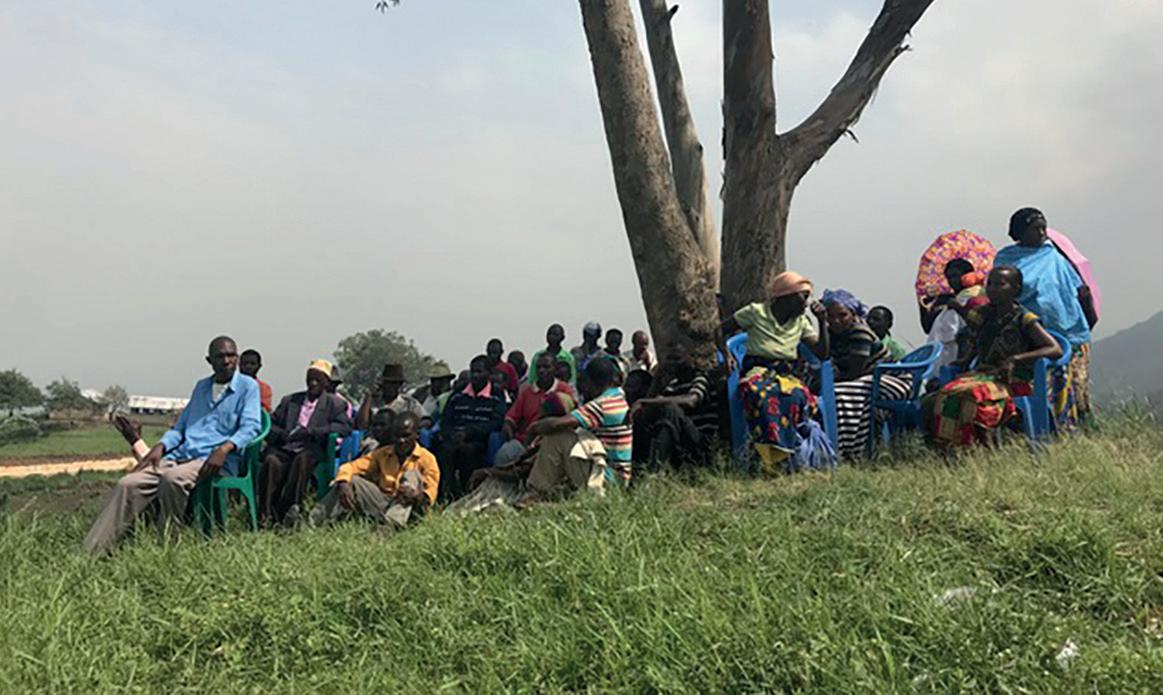
in turn can have political implications. So doing business in Africa does require a certain caution and many conversations with the counterparty to also test whether the contractual obligations are indeed actually understood. If it involves ensuring the minimisation of environmental and social impacts, Human Rights, equal treatment of women, and integrity, these issues always come up in the extension of energy supply projects and infrastructure, as these are the carriers of economic progress.
When that agenda is shared between both parties, it is also easier to discuss our ESG standards. At FMO, different specialisations work together when assessing a financing, and investment specialists actively collaborate in a deal team with ESG and legal specialists. ESG specialists help initiate a fruitful dialogue. There is growing appreciation for this among our African partners. On the other hand, Europe should again not become paternalistic."
AFRICANS ARE POSITIVE PEOPLE

After 17 years in Africa, Diana Wesselius has now moved on to the position from Managing Director Multi-Asset Impact Investments at Anthos Fund & Asset Management, a value-driven asset manager that manages capital for professional investors who want to create greater impact together. She will focus on managing a portfolio of impact investments, for which her practical experience in the African states will certainly come in handy. "In my experience, Africans are positive people with whom you can work well together. In my experience, Africans are strongly attached to their
history and culture. They are grounded, proud and extremely creative. They solve problems in a way that we as Europeans would not have thought of. In doing so, they usually have a great sense of humour. What I find unfortunate, looking at Africa’s development, is that by the amount of charity from Western countries, there is also a certain amount of dependency accepted in Africa.
Countries want to be independent, but when there are problems they look outside, expect help to come from outside. It would help progress if countries took more ownership in solving especially financial challenges. Raising energy tariffs so that they break even is sensitive. This leaves many countries dependent on foreign aid in crisis situations. Real business discipline is regularly lacking. At the same time, there are also examples of large game changers, where renewable energy projects replace very expensive power generators, thereby reducing the government's dependence on oil imports. Such development contributes greatly to a country's independence. An important tip for anyone who wants to work in an African market, make sure you employ
VAN VERRE 295| 13
Village community in western Uganda meets under a central located tree in the village, for an information meeting on a small, yet to be built, hydropower plant.
Humour at a construction site in Uganda.
reliable local people. That is the only way to deal with local political dynamics. In Africa, sometimes the approval of a ministry requires someone to go to the minister's doorstep daily, to make sure that your request is not at the bottom of the pile. Corruption is also a challenge. I spent a year or so in Chad doing due diligence ten years ago for financing telecom projects, with the imported network installations spending three months on the quayside of Mombasa. Apparently awaiting private payment. If you want to work with integrity, that means being patient. Such a delay has financial implications, which you need to understand as a financier. So as a Western entrepreneur, always make sure you have a big buffer in your business model, because you are definitely going to run into delays," Diana Wesselius said.
These are misses in the eyes of international businesses and entrepreneurs, but sometimes in Africa, the humour is literally in the streets.
Diana
Wesselius: "We were involved in a Western company that was carrying out an energy project. For this, they had neatly employed African workers, who were paid a monthly salary. After the first payment, no one showed up the next day. The company had not realised that the African workers who lived in the rural area where the project was being built, had never worked in permanent employment before. It let see that Africans also have a 'carpe diem' mentality. It is for those workers quite normal to go back to work only when the money runs out, And you can't blame them. From there, the company organised an information session on the concept of 'being a permanent employee,' its relevance to the construction of a major project, and quickly moved to weekly salaries." ♦

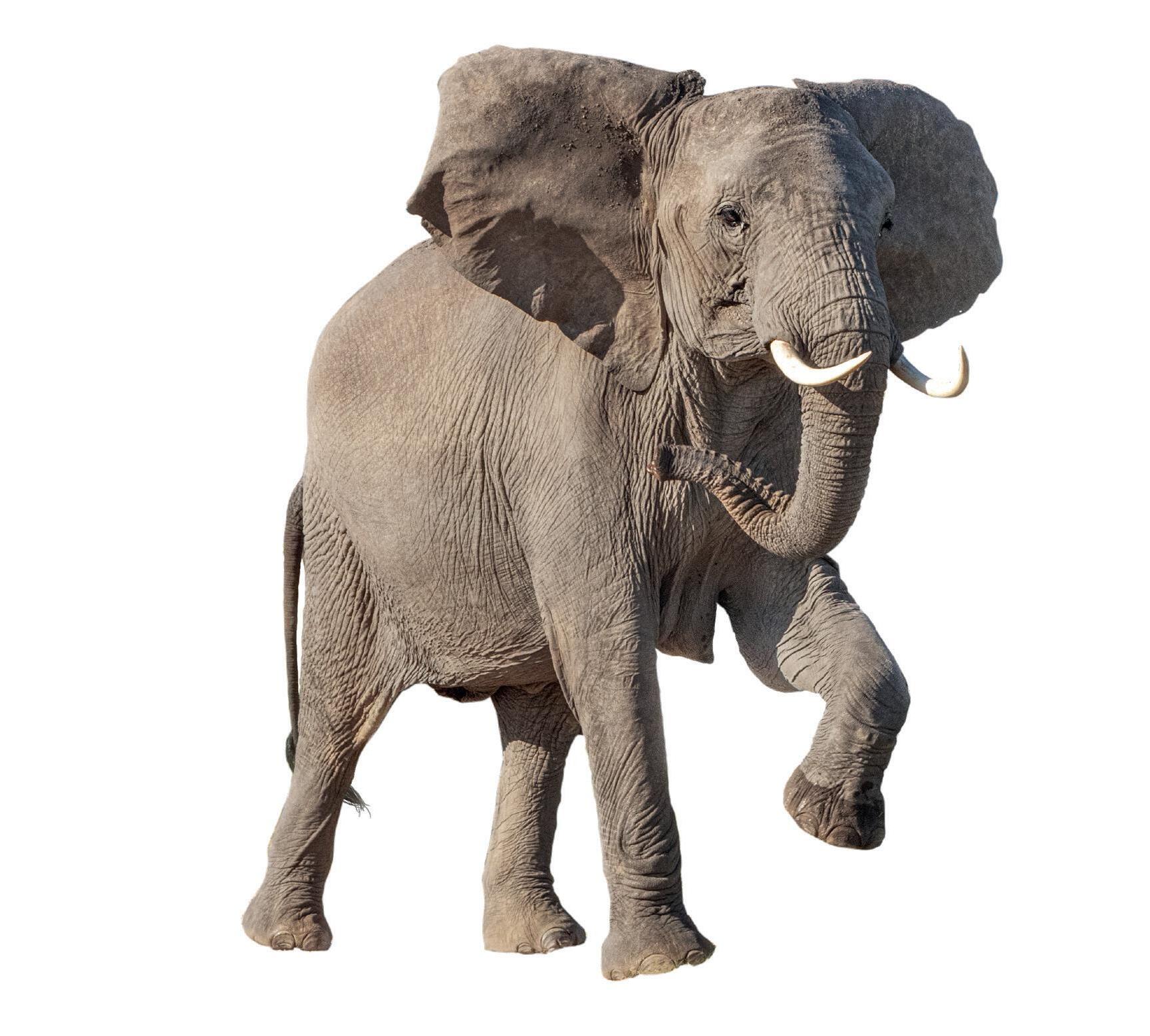

14 | VAN VERRE 295
Foundation wind turbine of the 140MW Loeriesfontein wind project under construction in South Africa. FMO was a minority shareholder and successfully sold its stake.
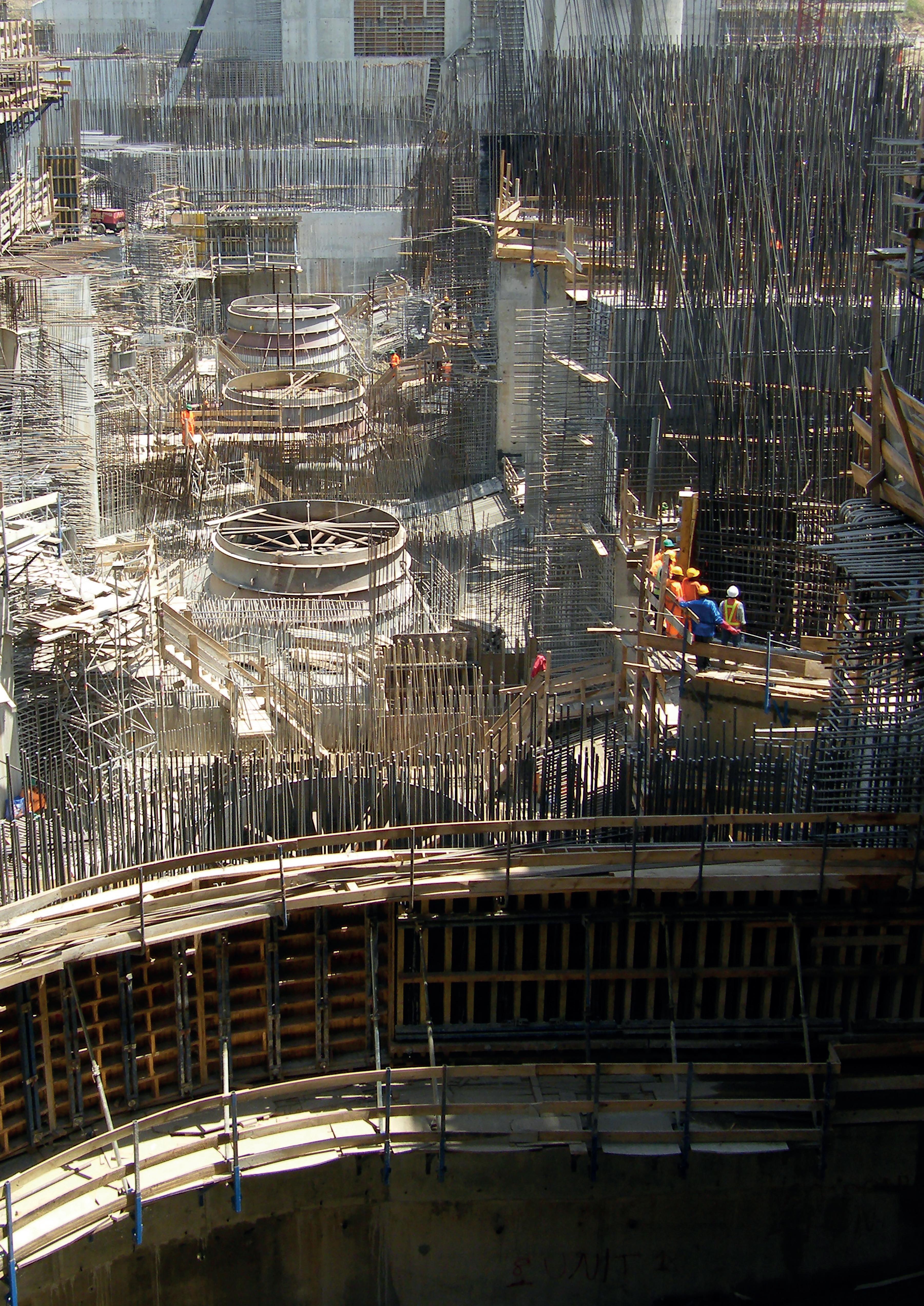
VAN VERRE 295| 15
Construction of the 250 MW Bujagali hydropower plant in Uganda, which supplies 45% of the total energy produced in the country.
16 | VAN VERRE 295
Statistics give an indication of scoring chances in African countries, but they rarely tell the real story. Hi-Tec SA CEO Gary de Vogel (20107252) delivers the range of shoes and clothing to distributors and to customers with Gmail addresses in the bush. He knows where he is really up to when he has personally researched one of the continent's 54 states. He takes us through his exploration of success destinations and absolute detractors. One thing is clear, it never gets boring in Africa.

WILL BE THE SURPRISE OF THE CENTURY!"
BY OELE STEENKS PHOTO FRANK VAN WEZEL (19580108) VOORGROND EN GARY DE VOGEL
The Dutch government/FMO/VNO came up with a classification of African countries that offered the best investment opportunities in 2019 for Dutch business. The top three consisted of: 1) South Africa; 2) Nigeria; 3) Egypt. Clearly, this ranking has been made on the basis of the presence of Dutch companies in certain countries and that there is relatively high input from the oil and gas sector, agriculture and horticulture projects, trade in products such as coffee, and cocoa, and infrastructural work. Political stability in an African country and existing diplomatic relations with the Netherlands play a role.
Q: For Hi-Tec SA, South Africa is the home market and there is much to read about that in other articles in this edition, so let's follow you as the South African businessman who may consider the whole continent as his 'hunting ground.' So, what is your experience of Nigeria as the runner up?
GdV: "I think it looked very much at GDP and by population. Nigeria is now said to be officially over 200 million people. It is Africa's largest economy, but it is not an easy country to do business with. It is difficult to hold Dutch shares. You may be forced to do a share-split in Nigeria, but it is difficult to find a reliable partner for that. Once you have a business in Nigeria it will be difficult to make your profit upwards, i.e. to an international entity, due to a dollar shortage. For me, it is proving difficult to import into Nigeria and get paid with dollars. I have made a few attempts to find a business partner, but I have not yet come across anyone I can really trust. Attempts to do business often turn to 'a blind eye,'
with friends, administrators and generals who come trotting up. They try to impress you with names and positions. In the end, if all goes well, you then get a small order of $100,000 to $200,000, which is more as compensation for dinner, the bill for which you have to pay, of course. When the official statistics say a Nigerian earns $50 a month, that is the legal wage. It says nothing about what is earned on the side black. With all sorts of side income, an average Nigerian soon sits at $250 to $300 a month. Everyone in Nigeria who is salaried has plenty of side jobs. It is the country with the highest multiple income stream, which means a driver of a Nigerian manager has an average of eight jobs to run from the car. Workers are always hustling. They have to wait for the boss anyway. If a Dutch entrepreneur wants to sell in Nigeria, the first thing he needs is a reliable warehouse that has an English or Dutch major shareholder. He should further ensure direct contact with a big bank in Nigeria, as there are plenty of them in the country. There should definitely be a direct link that allows you to remotely authorise deliveries and payments. That should be done in US dollars. By the way, you can hire a payroll contractor who will monitor your transactions. Nigerians are not likely to change policy, which means you suddenly lose everything. There are certain difficulties that the Dutch don't expect, though. Nigeria is known for the fact that if you want to rent a property, you have to pay two years' rent in advance. That's quite a lot of cash flow, especially if you get another bill after a year to re pay a year in advance."
Q: Egypt ranks number three as an entrepreneurial opportunity; is that also your finding? GdV: "The Dutch government, FMO and VNO are more likely to look at contracting for oil, gas and petroleum in Egypt. There is
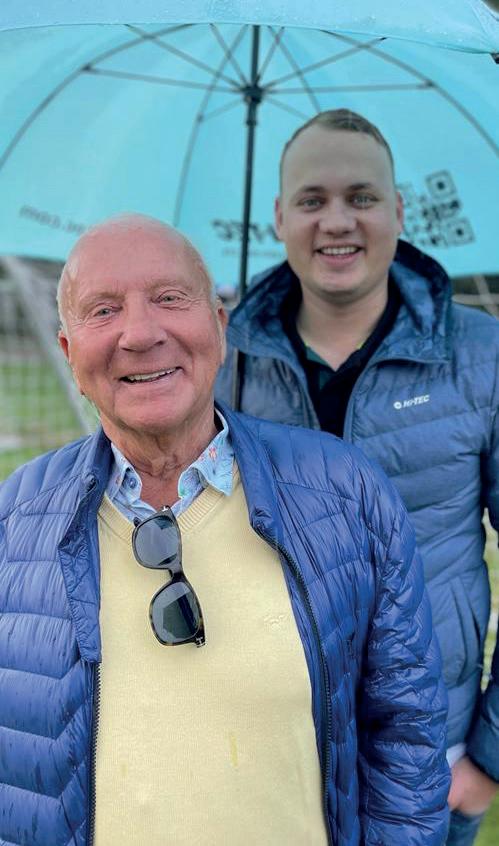 GARY DE VOGEL:
GARY DE VOGEL:
"RWANDA
VAN VERRE 295| 17
always a hand shake on that conduct. Italy, France and Spain also maintain good relations with this country. New pipelines are being laid to supply fossil fuel to southern Europe, but that is business at an international level, with the involvement of ambassadors and presidents. Establishing a registered subsidiary of a medium-sized entity, I think, is already becoming more difficult in Egypt, although the country scores well in all kinds of international investment indexes, such as investment attractiveness, environmental index and growth per capita. The country has more than 100 million inhabitants, so that's a huge consumer market. I am moderately positive. The tenders issued by the Egyptian government and big national companies are more outward-looking these days. So that is favourable for establishing trade relations. However, there is political insurgency with some regularity, as with northern Ethiopia. Of course, you are not sitting waiting for a situation where your case officer, as an extension of your business in Egypt, is hemmed in or blocked for political reasons. Further, Egyptians are generally tougher people and tough negotiators. They always have a nice story as to why an extra discount is necessary. That is a national sport. I haven't had any luck there yet, except with a tender I won for a particular type of shoe. In my business, I face competition from local manufacturers of leather sandals, which are usually worn under the Egyptian dress code. If people in Egypt start discovering the comfort of sporty sandals, then I could score there in the future. Our ‘uniform boots’ are doing well across North Africa.”
Q: The Next 5 consisted of the following selection: Ivory Coast, Kenya, Algeria, Ethiopia and Morocco. Does this match your marketing success anno 2023?

GdV: “Let me start with Côte d’Ivoire, which is hardly accessible to me as a market. With smaller countries on the west coast of Africa, which used to be Frenchspeaking colonies and where French is still the language of communication, it is difficult for us to do business. You really have to speak perfect French to do business in countries like Benin, Burkina Faso, Burundi, Central African Republic, Congo-Brazzaville, Djibouti, Equatorial Guinea,
Gabon, Guinea, Ivory Coast, Niger, Senegal and Chad. Those markets are served directly by the French Hi-Tec organisation. The exception is the Democratic Republic of Congo; in Kinshasa, for example, there is sufficient basic English to conduct business discussions. Morocco is done in terms of sales and marketing from the Hi-Tec organisation in Spain. Serving the Moroccan market is not that difficult because you can always find a distributor willing to transfer our batches from Spain to Morocco. Convenience largely determines that Morocco is a good market for me. My Chairman, Frank van Wezel, used to work in Kenya as MD of a fertiliser plant, so we have a good general picture of Kenya, but it is a bit ‘flatlining’for me at the moment. I have a distributor there who is not doing badly per se, but the country is not producing the results you would expect. He does have a contract with the government and has licences for Adidas, Puma, and Nike, which in itself is not a bad starting position. I should really research in that market to get more sales. I see the potential of Kenya to a large extent in its supply-chain connections with underlying countries, such as Uganda, Sudan, and Rwanda. Incidentally, this potential also applies to Ethiopia. Mutual trade is often through family relationships, such as a distributor in Kenya has a cousin in Uganda, and they trust each other. In Rwanda, there is a businessman who in turn has family in Uganda."
Q: No real surprises have come out so far, what about Algeria?
GdV: "The country has always been a closed entity, but we do a lot of business there. Maybe it's a matter of luck that we have such a good Algerian partner. Things are not always easy there; for instance, there was an import blockade in 2022, where all import licences were revoked. Then I had to reapply for all the licences. I had to go through two departments, one for military screening and for screening our range of shoes. Only after seven months of waiting, could I continue importing a shipment that was on its way. All orders go through the bank in Algeria, which itself has to seek permission from the government to tick off transactions. It is complicated, but it generates terribly good business. The government's attitude is linked to the push for more local production. The need for imports is keenly scrutinised. If goods or products can be made locally, this is actively supported, but it does not mean a closed market.
In Algeria, where French-Arabic is the language of communication, an interpreter is always present, especially for drafting contract agreements. In the process, I notice that the government is pushing for upskilling the workforce so that they can keep up in the English-speaking business world. Certainly in Algeria, they don't like the French very much, although they love visiting France, that is. Algerians are great people and good entrepreneurs. They are good at 'sharing,' which means bringing expert managers into the country as business partners for finance, marketing, and commerce. It's really not a poor country either; you won't see 'informal settlements' as we know them in South Africa there. People all live in neat stone houses. Besides, it is a very beautiful country. When I was there, I didn’t
18 | VAN VERRE 295
Hectic in Algiers.
understand why Algeria is not in the lists of most attractive tourist countries. I find it more beautiful than Tunisia or Egypt and it is comparable to Morocco."
Q: Are you as positive about Ethiopia?
GdV: "Coincidentally, I visited Ethiopia a few months ago. When I was there, I could not go outside Addis Ababa because of attacks by rebel soldiers from a northern province. Also, under the guise of a religious freedom movement, rebel youths were making the highways towards Egypt unsafe,
putting you at risk of being killed. Now the situation has calmed down and the country's two religious movements have made peace. The peace can be guarded by a huge national army. The country can now be called safe. Ethiopia's president, Sahle-Work Zewde, has initiated an investment programme over the past four years, to modernise Addis Ababa. These include beautiful gardens that have been laid out, including at the presidential palace, and a national museum has opened and is freely accessible. You can see new office buildings everywhere. Ethiopians are lovely, trustworthy people who are very proud of their culture and national cuisine. I got excited about the country because there is a population of over 120 million Ethiopians who have more buying power, than is reported in international statistics. It really is so much better than imagined! In Addis Ababa, you see big Retail chains and shopping malls several stories high. Many fake products are offered, but at the price of real world brands. There are wholesalers offering 80-90% margin, they buy their stuff for 10 and sell it for 100, which is really unbelievable. I supposedly got trainers there from Nike that were sold at $250 and that were fake as could be. They were pretty good shoes in themselves, but you buy those in the Far East for less than $20. However, there is clearly a growing market for quality products, especially when I see shoes in the market put at more or less normal margins. I see there for the year 2023-2024 very surprising results to come out!"
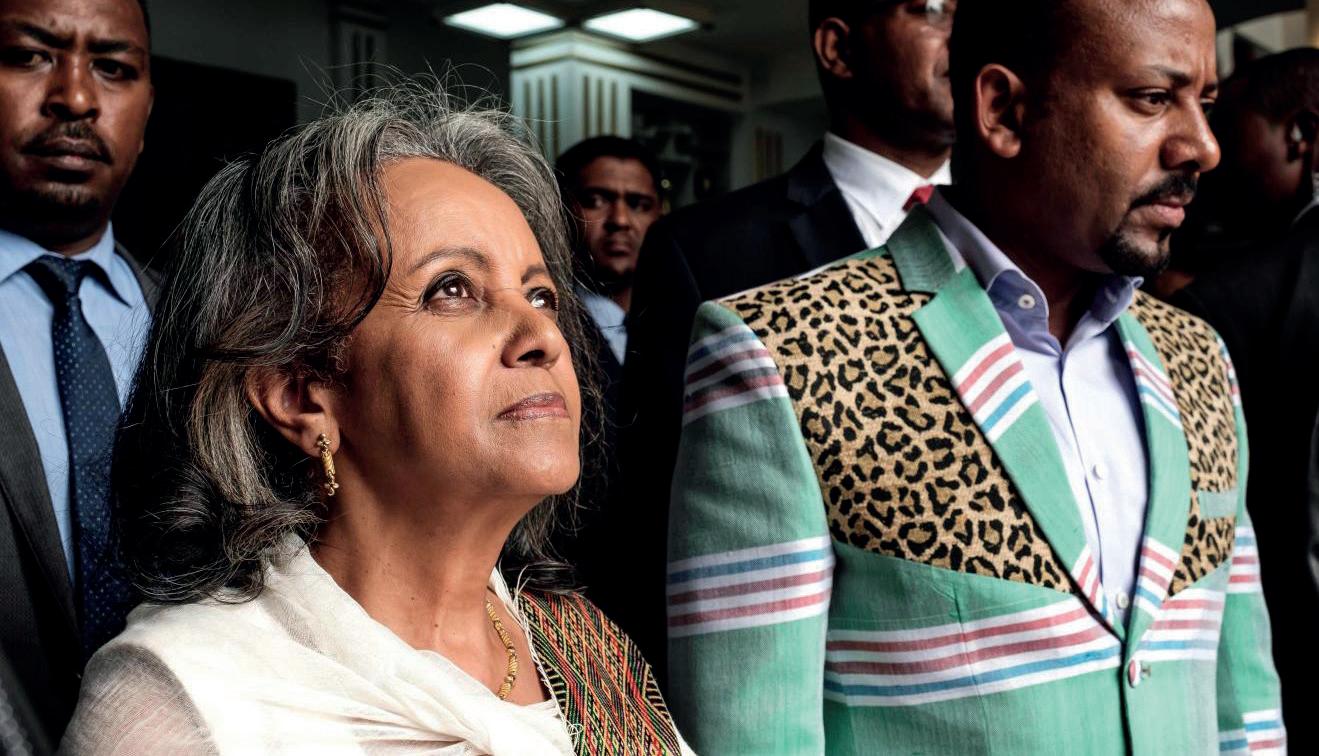
Q: What else are your favourite markets on the African continent?
GdV: "Rwanda is really amazing. It is still very early, but I think this country could become the surprise of the century in 20 years' time. The country has been led by President Paul Kagame for 30 years. That is the only risk factor.
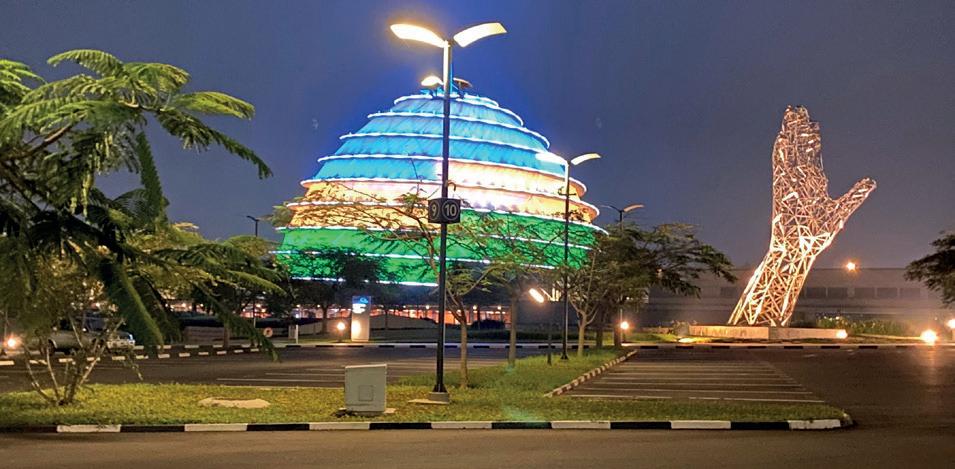
What happens when he is no longer there? I understand from insiders that he is training his daughter to follow exactly the same strategy. The population knows that! The question, of course, is whether that daughter will indeed get the required support from the electorate if Kagame says he’s done with it. The president has now won more than 20 awards for his achievements, from America, Britain, Qatar and from Africa itself. Crown Prince of Qatar Sheikh Tamim bin Hamad al-Thani has donated a huge artwork in the shape of an open iron hand, which is now on display in front of Kigali's national conference centre. The artwork is called the 'Hand of Direction' and was presented as an anti-corruption award. Meanwhile, the award for the cleanest country in the world was also awarded to Rwanda! When I was there, you had to do community service every third week of the month on Saturday mornings; either paint a community house or clean up the little litter with a toothpick. It's really bizarre, but in Rwanda, you can eat off the floor. Compare that to Nigeria, for example. I was in a lagoon there once, where you couldn't see any water because of the plastic floating on top. Here in the South African settlements, rubbish is set on fire by the roadside. It stinks terribly and all sorts of wrong substances get into the air. People here are not trained to pay attention to nature. Commercially, there is still plenty to do in Rwanda; there are no chains and shopping malls yet. It is easy to open a business online within four hours where you get four visas for employees for free. This applies on a 1:4 ratio. So 1 foreigner for 4 local employees. Furthermore, you have a bank account within a few hours and are allowed to import and dollars are sent to parent entities. There are also tax rebates in some industries because of the number of jobs the industry creates. Right now, you can already engage scooter deliverers, delivering ordered shoes. They are very impressed with that. With that, there are police on every corner, so such a delivery service is very safe. Police surveillance is focused on people's welfare, so officers watch to make sure no people are drunk behind the wheel and everyone is safe. It is not like in Mozambique some time ago, where it was teeming with policemen demanding money from you; and then no small money, but big money."
Q: Any more runners up?
GdV: "Botswana is a well-organised country, which has a hugely profitable mining and diamond industry and achieves high export figures. The government invests that money in its own people with low taxes on wages and property. There is a positive atmosphere, with a mix
VAN VERRE 295| 19
Kigali conference centre/artwork from Qatar.
Sahle-Work Zewde, president Ethiopia.
of nationalities, from Indian to South African, including Namibians and Zambians. However, it is not so easy with a small population, to run such a thriving economy. They really have to keep many balls in the air. Botswana needs to move quickly towards the 12 million mark, because the economic base is already there. There is a lot of buying power to grow the internal market hard. I also want to mention Ghana, although many things are driven from Nigeria. I would love to go there sometime to find a good distributor, because Ghanaians are not short-sighted. They want to invest in sustainable quality. That is quite unique for an African country. Usually it's all about price, price, and more price. There is a large group of women truck drivers in Ghana who buy our work shoes through an intermediary. It goes with jolts, three months you don't notice anything and then suddenly, boom, all these women have bought our top safety products. An order for those work shoes to Nigeria is just now out the door. I am curious to see what else comes out of that."
Question: closer to South Africa is neighbouring country Mozambique; there were quite a few difficulties there. How is the situation now?
GdV: "Mozambique is now starting to get back on track. Since IMF got involved in state finances, it has become easier to do business there. I also hear from holidaymakers that it has now become more attractive as a destination. The police there were terrible, like: you are parked here wrong, it will cost you a $300 fine. It was very grim for a time, with chances of having your wife taken away or forcing you to withdraw money from an ATM.If tourism does not take off now, then there are many layoffs in the police force. Mozambique was one of the few countries that cheated on the national accounts at the state level. IMF intervened and it did the country good. The sovereign debts that could not be repaid were fortunately taken over by the IMF. GDP is clearly on the rise and the economy is changing. This has happened in four to five years."
Q: Which African country are you reluctant to return to?
GdV: "During my first six months in Cape Town, I mainly looked at trade contacts we received and of those, Gmail is
a 90% scam and 10% success rate. There were quite a lot of requests to become a distributor or I got ten-ders that I could subscribe to via the internet where they then charge a 'fee.' I was positively surprised at the prior knowledge that importers and middlemen in Uganda had of our brand and range. They knew exactly who worked for Hi-Tec, how heatresistant our shoes were and they knew, for example, the leather thickness of our models down to the millimetre. I have not experienced before that money was not asked for tenders beforehand. I got messages, along the lines of, we already know so much about you and we would love to have you here. So I decided to fly in and I booked a local hotel in Kampala, so not an international chain. There I meet a woman; I immediately thought, where do I know you from? She turned out to have been on the due diligence team of the owner of FILA, an Indian club that would become the UK and European licensing partner of our US listed company. She turned out to be the owner of the hotel, built up by her father and she had come back to run it after his death.

She asked what I was doing in Uganda; to which she told me to be very careful, as the country was thoroughly corrupt. She told me that an American marketing agency had one and a half million dollars outstanding with the Ugandan government. However, Uganda's highcourt ruled that the invoice was illegal and no payment was made. Thereupon, the marketing agency had gone bankrupt. I got an interview with one of the 40 men who had carried out the military coup. That person was flown in by helicopter at a compound where a congress was being held. Earlier, I had seen a picture of a Defence Secretary and yes, it was the same person and he was one of the speakers. Afterwards, he took me aside. I thought for a moment 'this is the real deal.' He said there would be a second discussion. Then he made it clear that I had two options. Either I could put down an amount of $12,500 on the spot for 'direct' bid for the tender. That would win the tender immediately. Or no deposit and then the tender was put out and 'may-the-best-man-win.'
I opted for the open tender, but then the conversation turned unpleasant. I was told that I was now in his country and that he set the rules of the game here. If I could not put down the $12,500, I would not be able to leave the country. When I got back to the hotel, there were two soldiers waiting for me at the entrance. I quickly said I couldn't get anything out of my credit card at an ATM, but I would write an EFT (cheque). As a precaution, I had had a chequebook made by a shoe designer, which was indistinguishable from the real thing. I then told them that I had to catch the plane to Cape Town in a hurry because I had a lot of business to do. Thereby, cashing the EFT would definitely take more than four hours, as the Federal Reserve Bank of South Africa had to approve the transaction. At the airport itself, I was met by a soldier who addressed me by my name. I knew they were checking me out, but I was able to board the plane in the nick of time. Then I thought, I will never come back here again!" ♦
20 | VAN VERRE 295
Street vending in Algiers.
WHAT PRECEDED:
Working for a charismatic Nyenrodian!
Istarted as an accountant at Deloitte. There was a heavily competitive atmosphere, but there I was able to thrive due to a fast-growing addiction to a performance culture. On the other hand, your efforts were not always appreciated and clients saw you as an expense. For a large client, I had saved another budget during the audit by working efficiently and wrote a management letter during evening hours and weekends, thinking, this is really adding value for the client to make more profit and save costs. Half a years later, I happened to find the report in the CEO's wastebasket. It was clear that it had never been seen.
One day, I was tapping some files with a colleague when he received a phone call. I understood it was his wife, who said do you choose Deloitte now or your marriage? Then he said: Deloitte and his partner hung up. I found that very cold and hard. A few weeks later, he was divorced. For me, a button flipped then!
At one point I got another call from a headhunter. We met in the evening at a trendy brasserie and the man took me to task with all sorts of staccato questions. It was about a position as global controller. He asked a detailed question about a tax hot issue. Coincidentally, I had immersed myself in the subject matter, so I could tell him exactly where to find the requested regulations. According to the headhunter, my answer was incorrect. At home, I looked it up again and thought, you see, I was right, though.
A friend called to see if the call had yielded anything. I told him it probably wasn't going to be anything. I thought the interview was too aggressive. I wanted to work for a person I respected and not for an impersonal organisation.
Then I got a call from Ed van Wezel, the son of Chairman and founder of HI-TEC Frank van Wezel (19580108). He said they also knew that the headhunter could be quite staccato, but I had to come into the Hi-Tec office, because Ed (CEO) was sure I would fall in love with their plans, if they became operational. It came across as quite charismatic, because he said, “Gary, I've heard who you are and this is clearly a dream job for you!”
The next step was a meeting with Ed and the COO, in the office. That immediately
felt very good. Then Frank van Wezel walked in and asked which university I had studied at. I said 'Nyenrode Business University, Mr van Wezel'. Then Frank said: 'OK you are hired. Gentlemen will you complete the paperwork? I'll see you then next month!” Then I thought, wow, I really need to get to know this man. How can someone make such a judgement call within seconds?
I became Finance and Operations Head for Hi-Tec Benelux/Germany and group controller for the world. All CFOs and finance managers reported to me. I reviewed all audits, budget forecasting, finance reports, investment proposals and tax reports. I worked my ass off, so Frank soon informed me that I first had to approve and sign off on all expenditures before they landed on his desk.
Then I came across an invoice codenamed 'Project Irene.' Now it is good practice in high finance to give due diligence assignments the label of a woman's name. I stepped up to Frank. I said: are we buying an organisation or are we being sold? Then he said, how do you know? I told him I also could add up to one and two. I complained: that's nice, I just gave up my career at Deloitte and soon there will be an acquisition, where the financial man of the acquired party is dismissed. I know exactly how that works. Frank said it was about a large US listed party and that I was definitely going to enjoy the sales process. With the same capacity, sparring with the own management and late calls with Preparing America.
I was increasingly drawn into the process. I saw at the valuation that the Netherlands was performing quite poorly. Not surprisingly, four MDs had left within three years. The fifth was about to be fired. I started on that a bit passively like, watch this, this sells well and those stocks are too big. It was sparring from a financialeconomic point of view: where were the most yields being made, which markets or production lines were loss-making?
During a secret meeting between Frank and his loyal staff, ten Dutch employees said they no longer wanted to work for the current MD. Frank would appoint himself as Interim CEO. He asked me for an hour before the meeting, in which

he announced the decision: I will need some help for some reporting, is that a problem? My answer: if an operating company needs help, I jump in. Then came Frank quickly through with the comment: I am flying almost 9 months a year so if you need an approval for something, Gary is your man. With the fewest words ever, I was put forward as interim MD.
In six months, I've taken the blazon of Hi-Tec and managed to polish up. Thus, we brought the company to a nice valuation in Benelux/Germany. The documents for the acquisition were finalised. After that, I went to the US to supervise the listing. However, the lady on the US side, who was supposed to take care of the listing, suffered a mental breakdown at that very moment. Her work at the time I also took care of in a fortnight. I then got an offer to work in Los Angeles. After two days without sleep, I returned to Amsterdam and Frank walked into my office and said: do you want to work in Cape Town? I said yes! Without any hiccups. Yes to a charismatic leader, yes to a mentor who offered me every opportunity in my career within HI-TEC up to that point without an ounce of doubt. Frank had decided to retain Hi-Tec's African operations himself. On that, I was appointed CEO of Hi-Tec SA and moved in 2017 to Cape Town. In the meantime, we have seen the organisation grow three times. And bought other trademarks such as Duca Del Cosma, which now operates is in 46 countries. ♦
by Gary de Vogel
VAN VERRE 295| 21
Frank van Wezel and Gary de Vogel surprise NBU rector magnificus Dr Koen Becking with a rugby shirt from South Africa.
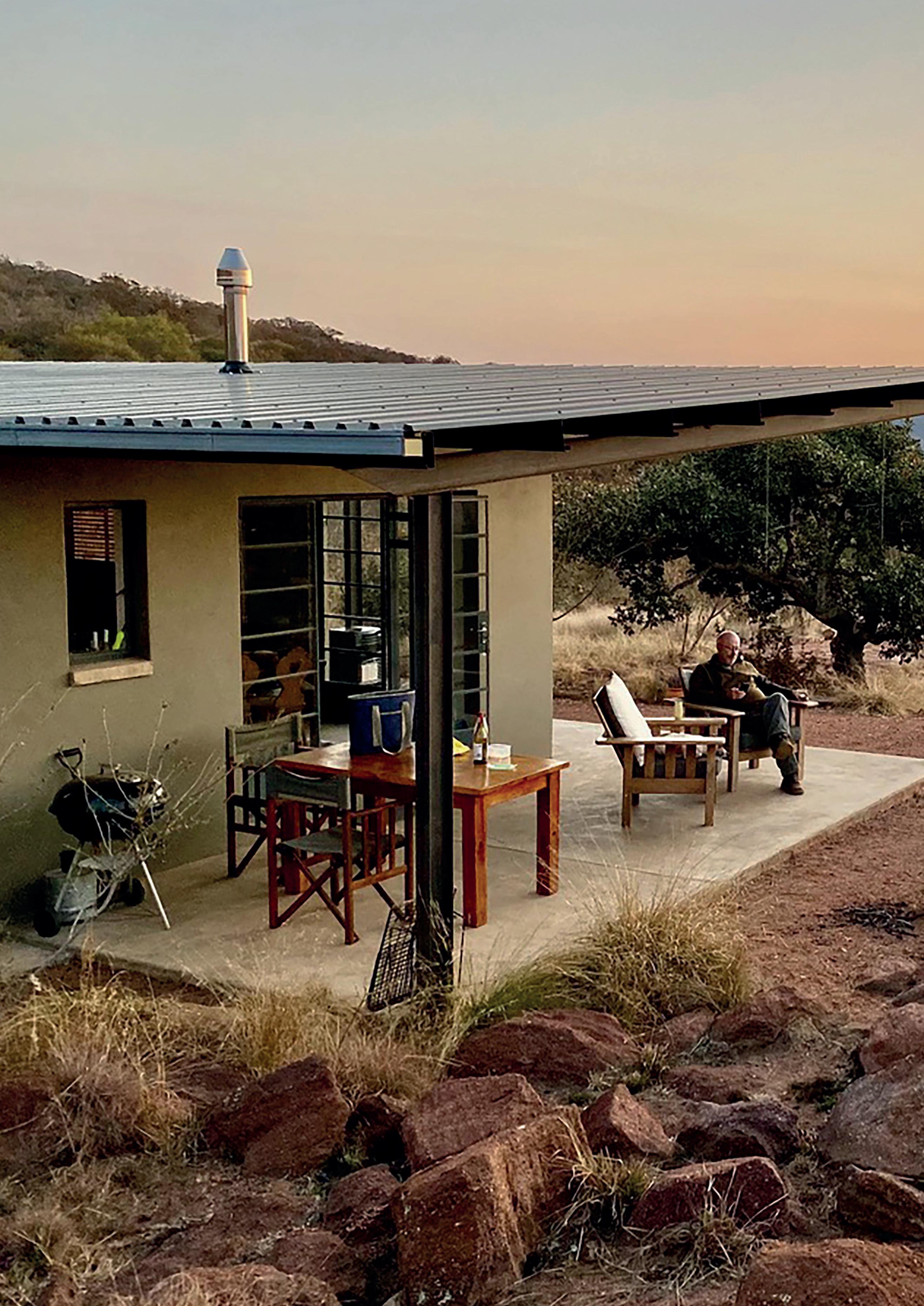
22 | VAN VERRE 295
Consultancy and banking seem to be the prelude to a luxurious life as a pensioner. Not so for Alex Soethoudt (19880175) who has made a unique choice. High above Pretoria, she and her South African husband sway over their own wildlife park, Syringa Sands. The reward of a successful career is now in contributing to wildlife conservation in Limpopo province. Waking up to giraffes and zebras in a sustainable house, while the occasional leopard comes along!
BY OELE STEENKS PHOTOS ALEX SOETHOUDT
"THIS WILDLIFE SITE IS AN OUT OF CONTROL HOBBY!"
Alex Soethoudt: "I went to South Africa in 1998 for the British managementconsultancy firm Proudfoot. That was for a three-year consultancy project.
I then transferred to Accenture, the privatised consulting arm of Arthur Andersen, in Johannesbrug. I then ended up in banking and was employed by the Standard Bank of South Africa. Currently, I am an executive coach, working with a team in Angola. For that, I travel once a month for a week or about 10 days to the Standard Bank branch in Luanda."
Q: Have you become a true South African by now?
AS: "My husband is a South African. We met later in life in Johannesburg, where he worked in radio and TV. I was working in retail banking at the time. I have since been fully assimilated into his family circle and by his friends and acquaintances. Since leaving the Netherlands, I have been 33 years on and I hope not to have to go back."
Q: Together with your husband, you are the proud owners of a 'gamefarm.' What is the story?
AS: "Fifteen years ago, we saw an advertisement in the newspaper where someone was offering a small game place of 250 hectares for sale in the Waterberg district, which is part of Limpopo province. We went to have a look and it seemed like a good deal. That's how we ended up in the Waterberg, a three-hour drive north of Johannesburg. We are 180 kilometres north of Pretoria. The nearest village is called Vaalwater. For the first 10 years, we were here on the weekend and we had our corporate life in Johannesburg. From there, it became a hobby which got a bit out of hand. Now we live
here permanently. When I go to Angola, I drive first by car to Johannesburg. After that, it's a three-hour flight to Luanda."
Q: What was the deciding factor in choosing to live in the bush?
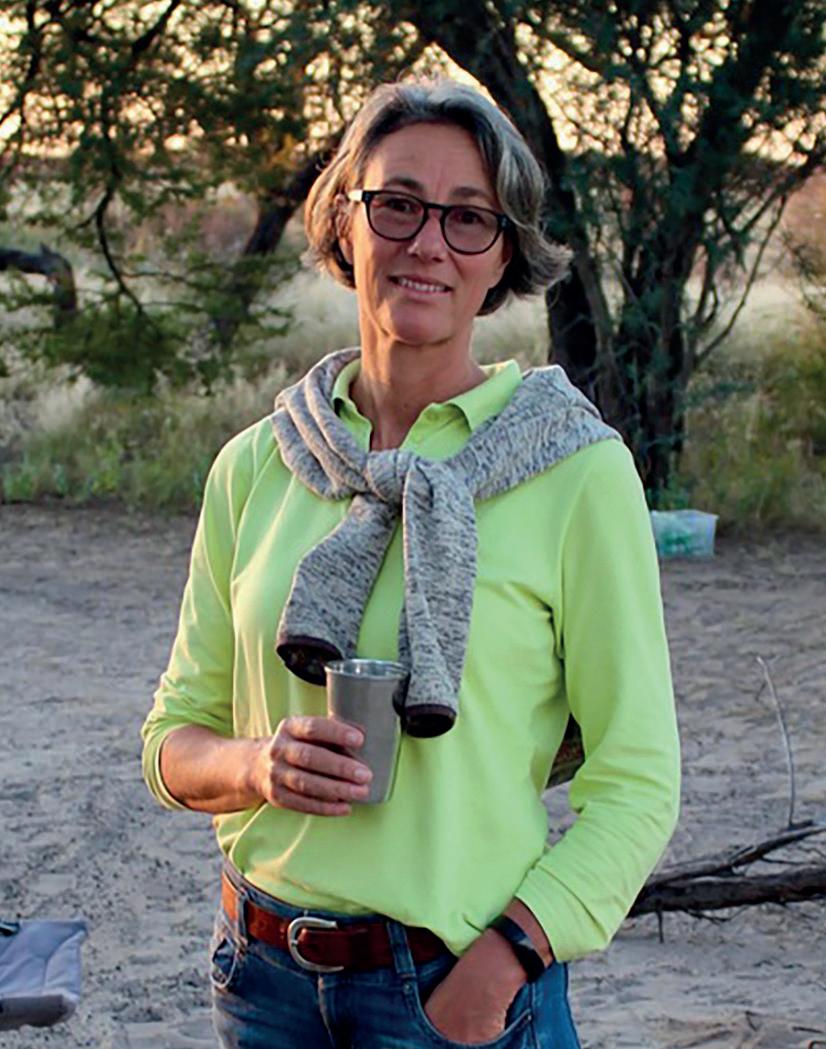
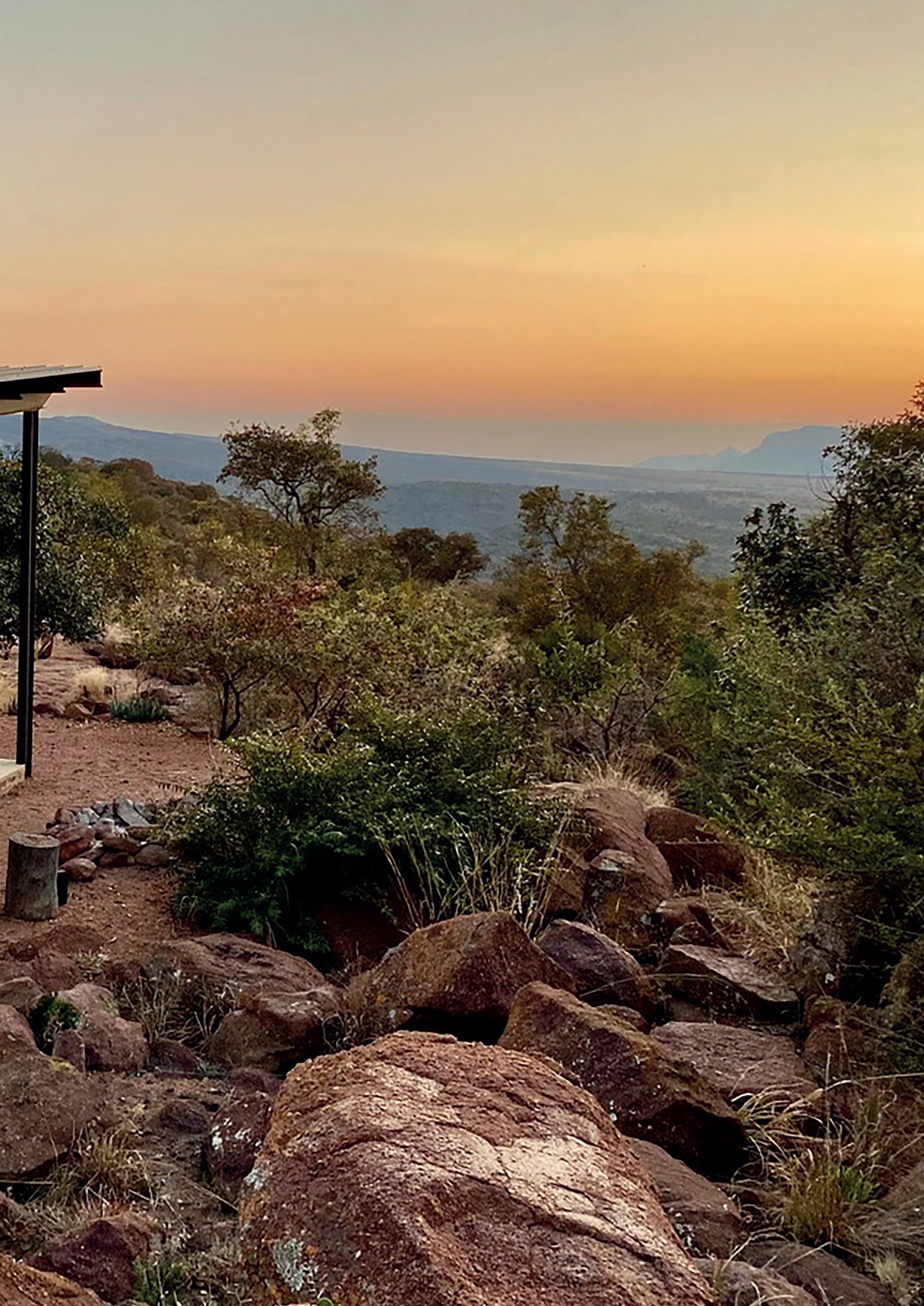
AS: "We went to Angola and Uganda together for a new work experience. When we were back at the game place here, we would unwind and blend in with the beautiful nature. We came from Uganda in 2015 to live here permanently. There had to be a commercial support to come in each case to bear the cost of this wildlife site. Then we started working on a commercial model. The game park is now called Syringa Sands Private Gamefarm. We live in a lodge and there are three cottages for rent on the site. All three are powered by solar energy. We recently bought additional land with another cottage on it.
That will be our project for 2023. If we get rid of the income and had to live off our game site, where we both became thin, skinny people. It has not been our objective to make the gamefarm heavily profitable. It is more of a passion of the two of us and a lifestyle choice. So far, fortunately, we are able to combine the gamefarm and our work well; my husband is in construction these days and does a big job from time to time and so I continue to work part-time as an executive coach."
What is the concept of Syringa Sands?
AS: "Our market is 80% South African. This is about selfcatering. There is some overcrowding in Johannesburg, so people like to get away on a long weekend. So for weekends, we have a good occupancy rate of 80%. For instance, we just finished the Christmas rush. We have
ALEX SOETHOUDT:
VAN VERRE 295| 23
a nice pitch with it, which is for Africans who drive with those tents on the roof of Jeeps and small camping trucks. In that category, we also have international guests travelling across Africa. Those are often on the way to Botswana or Zimbabwe. There are so-called bush camps for that, where you can camp, hike, spot animals or canoe on a river. So you end up with the kind of wildlife experience like we offer. We partner with several small game reserves in Waterberg to help people enjoy African wildlife in a sustainable way. We do this from a very personalised approach. We have a number of biking and walking trails, which allow you to get close to the animals. We don't have the Big Five on the game site ourselves, but they can be seen in the adjacent national parks, such as Marakela National Park. And when I say to guests we do have giraffes and zebras, they say, that's beautiful too."
Q: Is it possible to keep a Big Five animal on Syringa Sands?
AS: "There have been times when we have thought about bringing in some Big Five species. For instance, a neighbour had a surplus of buffalo, some of which we could take over. However, that would have changed the whole experience of our game place, because those beasts become dominant and combining buffalo with cycling and hiking routes is life-threatening and forbidden. Then you have to hire officially qualified guides to show your guests the buffalo. Another example is that we have a large pond at one of the cottages; every year I say to my husband, isn't it time for hippos, that seems like so much fun. And every year he reminds me then that guests and hippos are a difficult combination. So no, we resigned ourselves to the current set-up of the wildlife site. Although, the homerange of a leopard is 15,000 square metres. So once in a while we have a leopard on the game site, it will stay for a month or two and then leave for the neighbour's farm."
Q: Are the Big Five -elephant, lion, leopard, buffalo and rhino- becoming something for the happy few from abroad?
AS: "You can book into expensive lodges to see the Big Five, with everything arranged in a luxurious setting. The group being targeted is mostly Europeans in the 60-plus category. They want to be picked up from the airport, sleep in a luxury room, have steps to get on the Landrover, take big cameras with them and can have drinks as soon as they spot game. But if you have to spend five days in a luxury safari in a Landrover or a game viewer, it is also nice to take a walk among giraffes and zebras. In doing so, there are 21 National Parks, including the Kruger Park in South Africa. The total area of parkland is just over 4 million hectares, which is the same size as the Netherlands. These parks have a local South African rate and a foreign rate and it works very well, the so-called Sanparks are a hugely popular destination for many South Africans."
Q: Is it right that hype has been created around the Big Five, along the lines of: experience it now, because in the future these animals may be extinct?
AS: "Big Five is starting to become slightly less important as a conservation target. After all, the term comes from hunting in the last century. The lion, leopard, buffalo, rhino and elephant were the most dangerous to hunt on their own, so among hunters this gave them a special status. The animal most threatened with extinction now is the rhino, without a doubt. But immediately it goes through my head that the armadillo is also threatened with extinction. On the other hand, it is nice to mention, that in many reserves, the elephant is on the stimulating pill, because there are far too many of them and there are less and less suitable open nature and forest land available.
Q: Are you contributing to conservation from Syringa Sands?
AS: "We try to graze one or two larger species at the game site that are threatened in their survival. In the Waterberg district, we do participate in an initiative to protect wild dogs. It is one of few species that migrate in groups across the surrounding game farms. Every year they are stationary at a place where females give birth. Visitors and enthusiasts can get reasonably close to see the first months of the pups. Farms losing livestock to wild dogs will be compensated. With this initiative, the number of dogs in the 'packs' of wild dogs doubled in three years. That is really a great result."
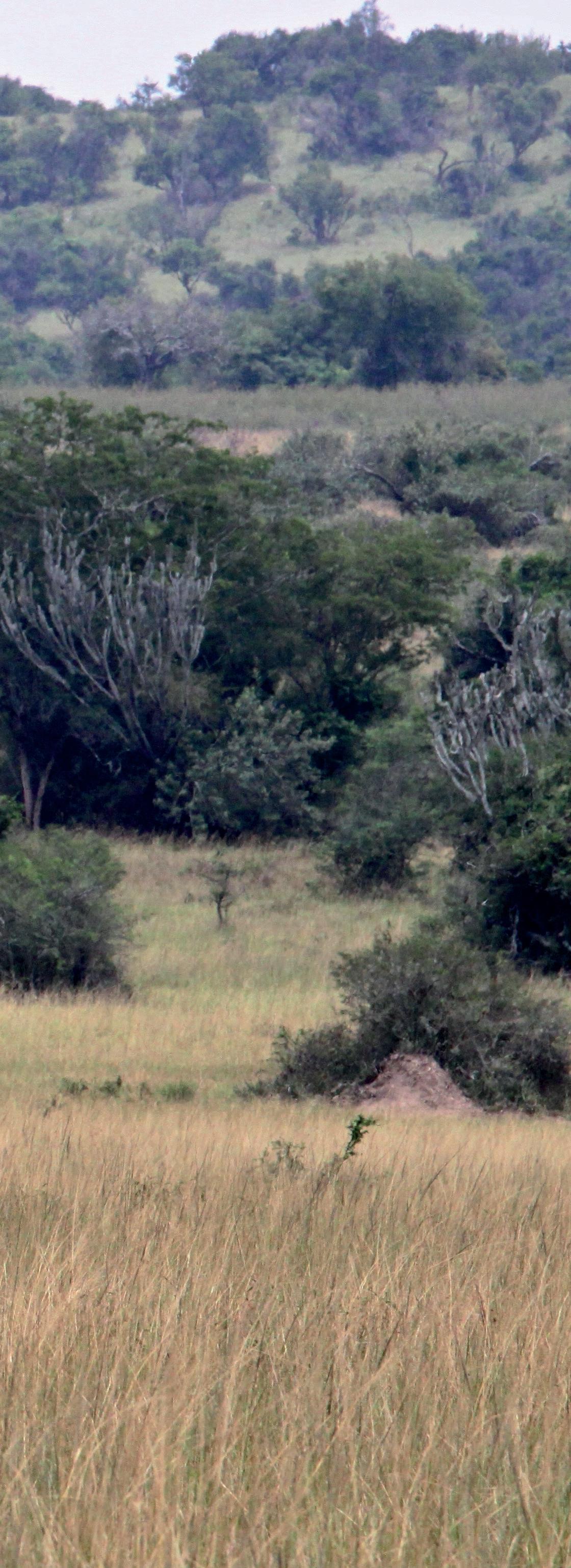
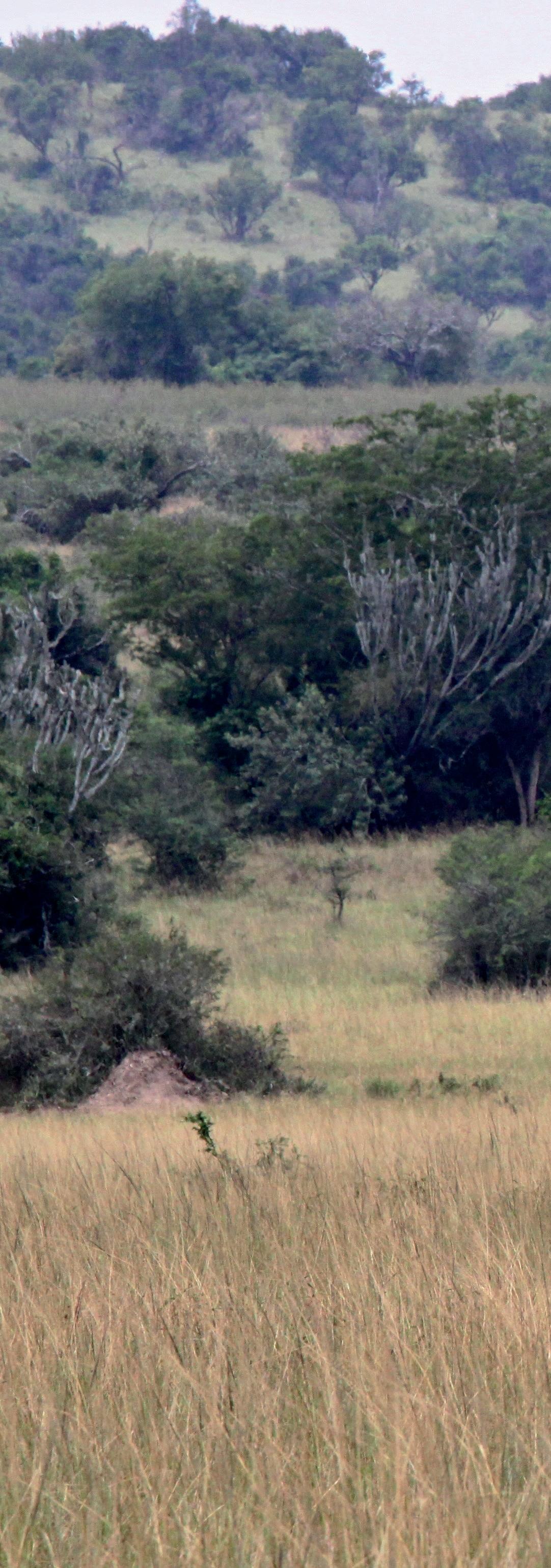
Q: Are South Africa's famous national parks still popular with its own people?
AS: South Africa's middle class enjoys the National Parks, such as the Kruger Park in Limpopo, the Kgalagadi in the Northern Cape, Addo Elephant Reserve in the Eastern Cape, and Hluhluwe Imfolozi in KwaZulu Natal. However, there are estimated to be about 20 million South Africans living below the poverty line. At best, a National Park contributes to tourism and employment opportunity. Unfortunately, poverty and overcrowding near national parks also lead to poaching, occupation of park land for housing and firewood gathering. Furthermore, it is a question of: can the average South African still afford it? The average income is 25,000 Rand per month. A private lodge in a national park, reserve or concession costs 18,000 Rand a night these days."
Q: Is climate change affecting wildlife in Syringa Sands?
AS: "I have been keeping rain statistics since 2003 with its own rain gauge. I see no substantial change in total rainfall, so that's at least a good sign. We do see that the rainfall has become more extreme. It rains more and more fiercely in smaller and smaller areas. We also see for a long time that when El Nino occurs in South America, the climate in central and southern Africa is a lot drier, but I wouldn't underestimate climate change. And by the way, let's not forget that Europe as a whole fits into South Africa. I am not so aware of the exact climate change in, say, Cape Town, because that is 1350 kilometres away. That's the same as asking in Amsterdam if there was sunshine today in Southern France or snow in Switzerland?” ♦
24 | VAN VERRE 295
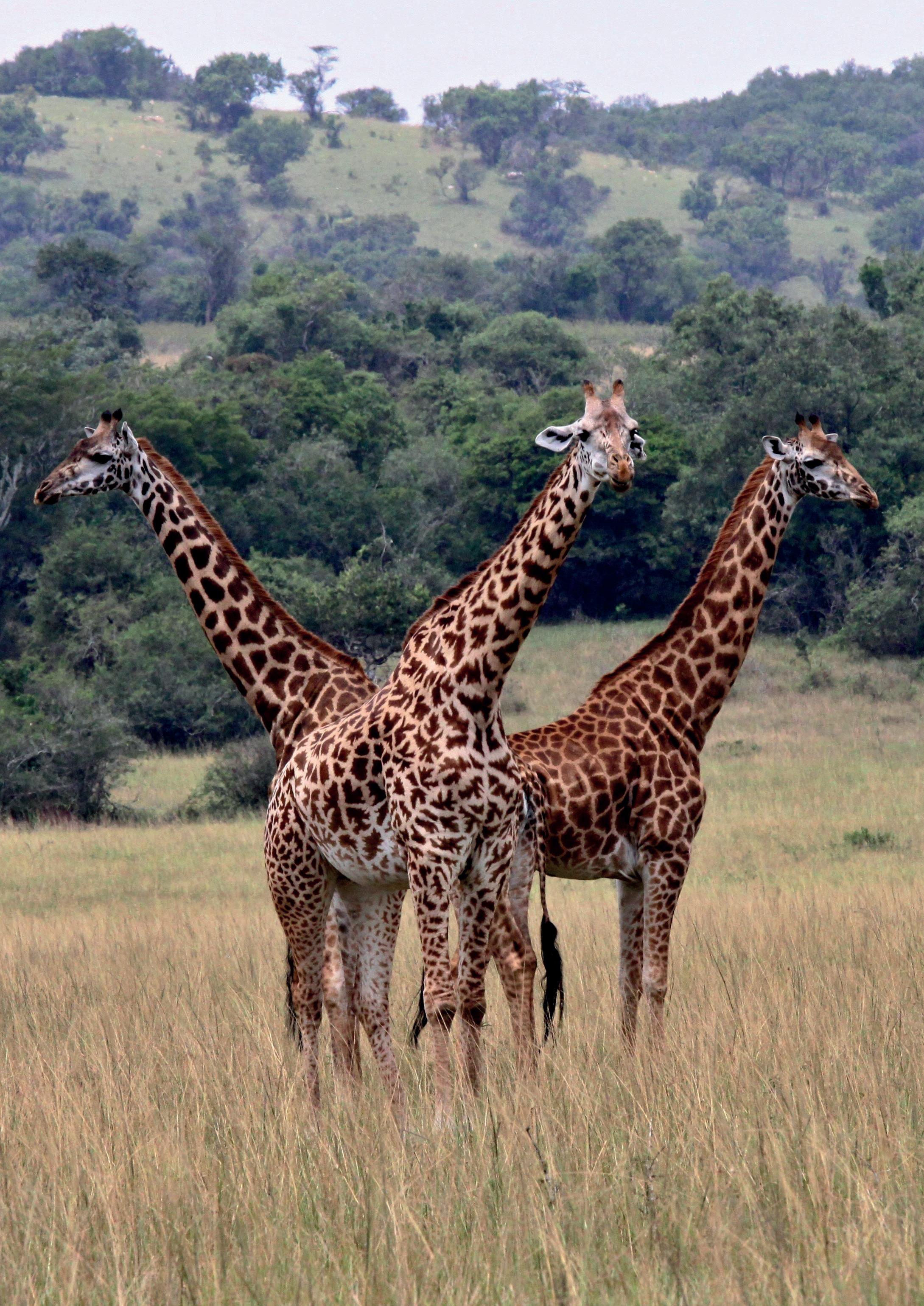
VAN VERRE 295| 25
want to do business with the Ghanaian government anymore!”
He studied mathematics and has brilliant qualities, which were also evident during his NIMBA studies at Nyenrode. Carl Makaful Acolatse (20120401) made a promising start with a waste incineration project, returning energy to Ghana’s electricity utility. The project was a contribution to solving serious environmental pollution. After national elections in 2016, the project was dropped from one And cancelled the other day. Unfortunately, that is how things can go in Ghana.
BY OELE STEENKS PHOTOS CARL MAKAFUI ACOLATSE
Question: Can you give a brief introduction of yourself?
CMA: "I studied mathematics at the University of Ghana. After that, I worked for several years for the Danish container shipping company MAERSK as a management trainee. I was able to gain experience in Europe and held a position for several years in the US, but I already had the intention to get an MBA, for which I have the needed work experience. My GMAT score was quite impressive. I met Charles Odoom (20100425) who had already done NIMBA studies at Nyenrode. He pointed me to the Dutch university. In the end, I had to choose between Warwick University in the UK and Nyenrode. I could get full scholarships from both universities.
The decisive factor was the fact that I visited Nyenrode for the first time during Queen's Day. I did not know what I saw. It told me a lot about the positive and safe culture in the Netherlands. I want to emphasise that the NIMBA programme was very innovative and inspiring. Special were the study tours and the meetings with managers and directors of international companies. At Nyenrode, I chose the entrepreneurship track, because during my time at MAERSK I already had the ideal to start a business myself."
Q: Could you immediately do something with that ambition?
CMA: "During the research process at Nyenrode, we had to develop a business concept and get the necessary funding to do so. I set this up with a Japanese student; the project was an E-commerce business in Ghana. We managed to receive $100,000 from an international investor. We went to Ghana and set up the webshop; it was quite successful in terms of brand awareness and customisation in the market. However, the sales figures were disappointing, so investors did not want to embark on a second round. That's when we stopped this startup."
Q: How did you proceed?
CMA: "We then set up a marketing strategy and project development consultancy for foreign investors who wanted to become active in Ghana. In addition, I started looking into renewable energy. There were especially opportunities in the area of waste to energy, i.e. using energy that can be extracted from waste disposal. For this, I got funding from the investment company set up by J. B. Nolst Trénité (19760059) in Ghana. My feasibility study was also received positively in a circle of US private equity investors. The project also received a grant from the Rijksdienst voor Ondernemend Nederland (RVO) in The Hague. We designed a
power plant that ran on municipal solid waste. As a location, we chose for a landfill on the outskirts of Accra. The waste incineration would release steam, which would then be converted into electricity. It was part of solving the environmental pollution that occurs in Ghana due to inadequate waste collection and disposal facilities. A huge amount of greenhouse gas emissions are released in the air and pollution of soil and water takes place on a large scale. Dutch project funding was granted on condition that it would be a publicprivate venture. The Ghanaian government therefore had to be a shareholder and partner in the project. That happened and I entered on as project manager. There was a change of government in 2016. We have a twoparty system here and it is a winnertakes-all system. It is a disruptive process, with many administrators and officials being replaced overnight. It is also a matter of corruption, by which I mean the destruction of many businesses and projects that could continue to function well under normal political circumstances. For example, our energy project was suddenly put on hold - ostensibly because it no longer fit into the national energy policy. Usually, government officials wait for an initiative from our side to come up with bribes to make things continue. However, there we are not kicked in. Unfortunately, the project lies silent to this day."
Q: What can you say about Ghana, and Accra in particular, as a field of work for a young entrepreneur with a Nyenrode MBA?
CMA: "Ghana has a population of 30 million; Accra has about five million. The centre of Accra is like any metropolis. There are offices, shops and nightlife. We also have a stock exchange
“I don’t
CARL MAKAFUI ACOLATSE:
26 | VAN VERRE 295
and our own currency, the Ghanaian CEDI. Unfortunately, we have had a bad year financially, with the CEDI devalued. There is a well-functioning central bank and we have some commercial banks for the emerging middle class and we also have investment banks specialising in certain sectors. In this respect, Accra is a fine commercial city. The country is otherwise relatively well developed. Across Africa, the average electricity grid coverage is only 46%, here. In Ghana, it is 85%. That is very high by African standards. We have an international airport and good roads. The country is blessed with a lot of wildlife and minerals; in certain years we have the second largest production of gold in Africa. We are the largest exporter of cocoa, we export timber, there is oil and gas that we exploit commercially.”
Q: What choices did you make after the debacle with the waste treatment and energy project?
CMA: “Since 2016, I have been active as a consultant and entrepreneur, mainly in project development and solar energy. If there is one thing I have learnt, it is to never work with the government again. There are great projects, with government participation, in wind and solar energy. One step down the market, you have renewable energy projects for commercial buildings, such as shops and offices. It is an interesting market because companies and entrepreneurs do not have to arrange for connection to the government grid under time pressure, which involves a lot of paperwork and paying bribes to officials and local administrators. And even then, they have to make sure that the government company fulfils its contract agreements, because in Ghana, nothing is guaranteed when it comes to contracts with the government. In terms of project development, I usually plan commercial solar projects for industrial estates, commercial buildings, factories and offices. It is a matter of taking initiative and finding financiers, contractors and buyers. I can now collaborate with A group of trusted private investors from Germany, Norway, Denmark, and South Africa. We have filled an order book of 18 to 20 projects so far. The process includes making a proposal, contracting, financing, recruiting investment partners and implementers, delivery and payment. I work with foreign investors and should ideally have an average turnaround time per
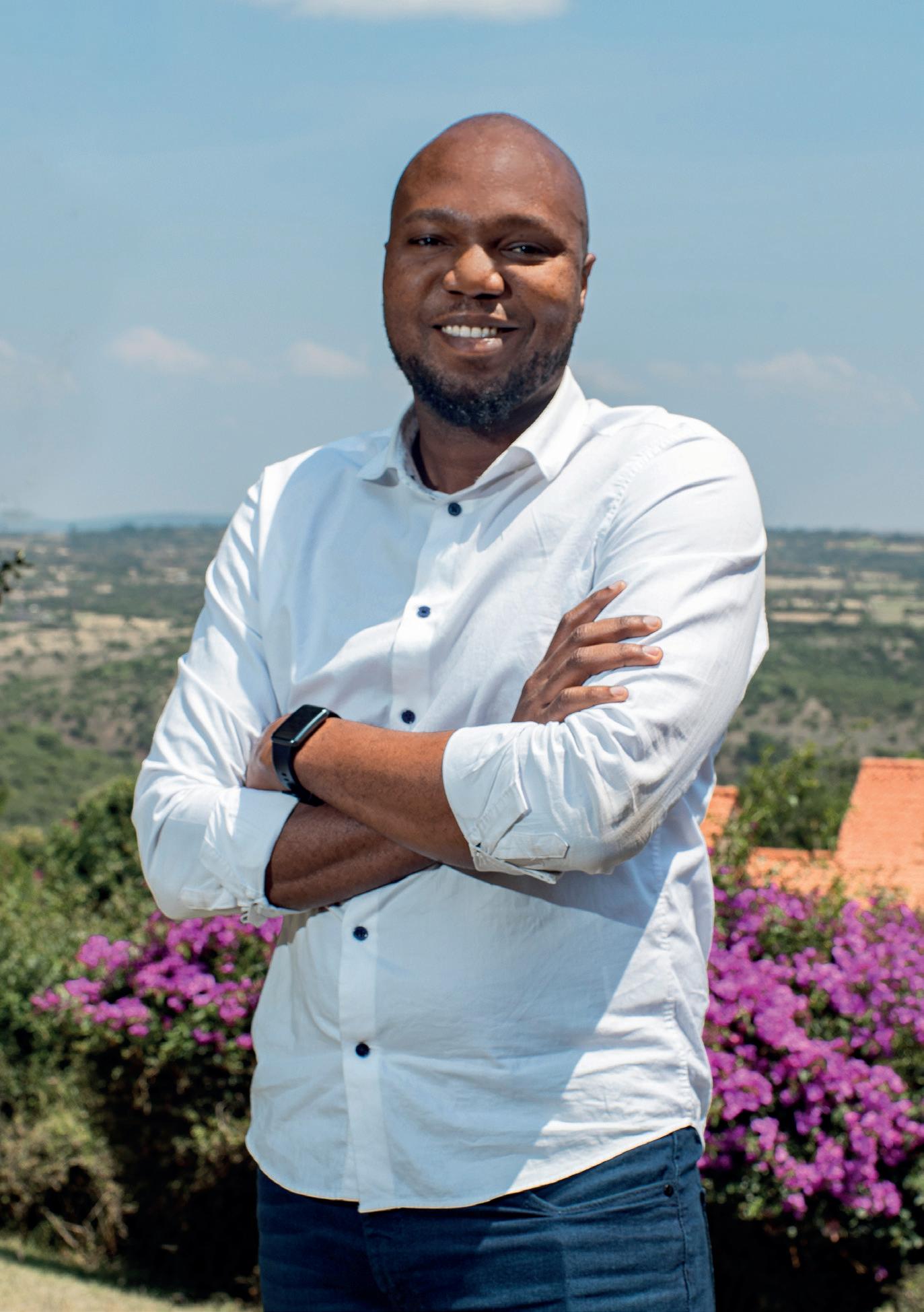
project of three to six months. But here in Ghana there may just be an unexpected delay, so projects can sometimes take one-and-a-half to two years. Then it is very difficult to make returns attractive for foreign investors."
Question: you mentioned the high level of electrification in Ghana; can you elaborate on that?
CMA: "Africa has a good mix of renewable energy sources, if we include hydropower. Across the continent, 40 per cent of electricity generation is linked to hydropower. That is higher than in any industrialised country. This means hydropower also supplies 40% of the electricity grid. The largest dam is about eighty kilometres from Accra. The electricity is distributed all over the country. This makes our power supply much better
than in other African countries, such as South Africa."
Q: Can you give examples of recycling by Ghanaian companies?
CMA: "In the palm oil industry, mills today use processing waste as fuel for their own energy needs. So that is an attractive market. There are dozens of
VAN VERRE 295| 27
Carl Makafui Acolatse deserves up to solar energy.
palm oil mills , and they all recycle palm waste and have their own power plants. In the cocoa sector too, there is great potential for recycling and renewable energy from cocoa husk waste. However, the cocoa market is controlled by the government. Revenues are attractive nationwide, so there is no real incentive to engage in renewable energy."
Cocoa offensive from Ghana and Ivory Coast!
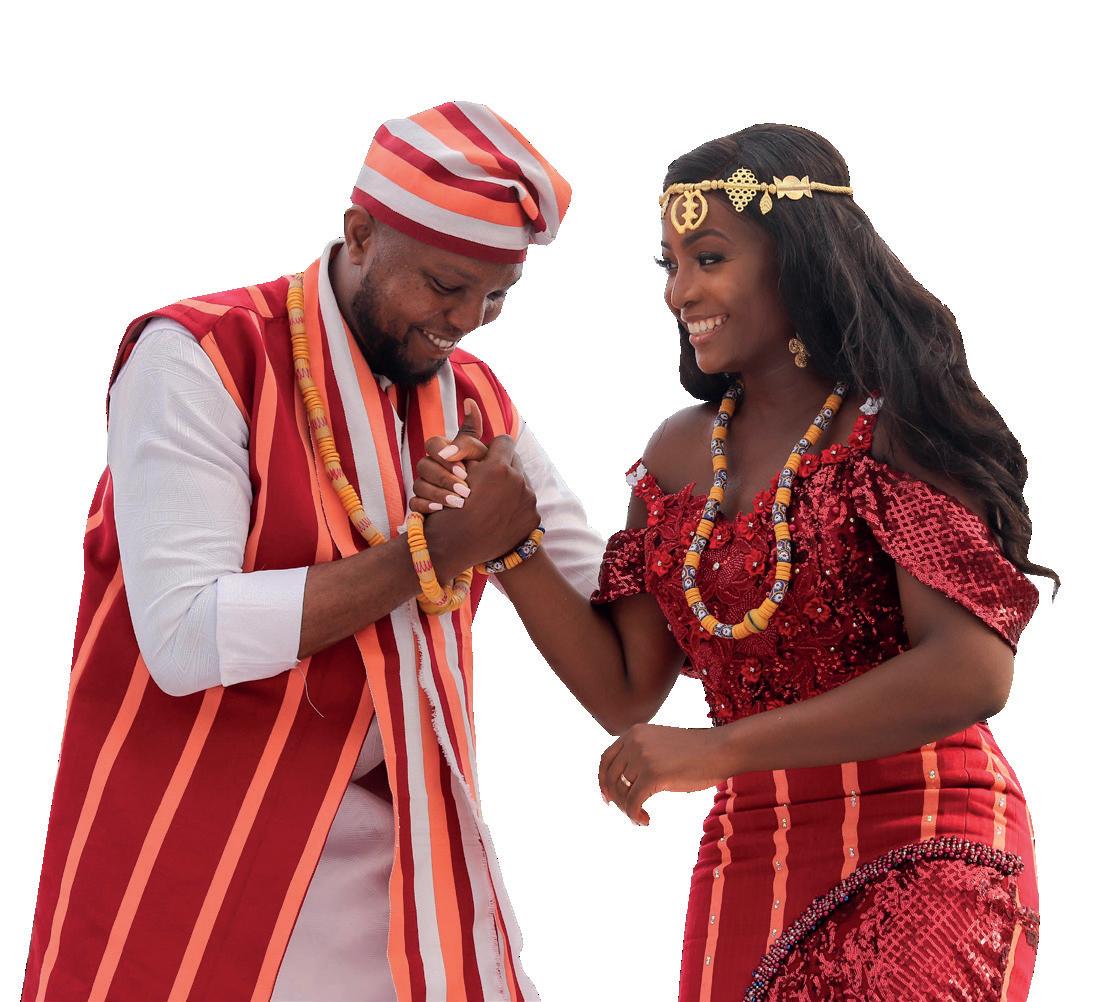
Some time ago, a world cocoa conference took place in Berlin, where Ghana and Côte d'Ivoire - the two largest cocoa producers in the world with a 60 per cent market shareput great pressure on cocoa buyers Mars, Mondeléz, Nestlé and Tony's Chocolonely to pay a higher price because cocoa farmers in Ghana and Côte d'Ivoire live below the poverty line. In Ghana, the Cacoa Board centrally buys the national cocoa crop and in Côte d'Ivoire it is the Ivorian Coffee and Cocoa Council. Both bodies have been fighting each other for a long time, but are now joining forces because the goal of cocoa farmers getting a fair price for their products is far from being achieved. The two countries have agreed on a so-called Living Income Differential of 360 euros per thousand kilos of cocoa and are imposing it on the cocoa industry. That 360 euros is meant as a floor guarantee on top of the international market price. To the horror of all kinds of NGOs that have set up sustainable projects in both countries as a guarantee for the sustainability claim that the world players of chocolate stick to their products.
Q: Are these NGOs rightly concerned? CMA: “The problem with realising renewable energy projects with SOEs is the lack of technological knowledge and project development capacity among administrators and government managers. That is why, unfortunately, I see many projects stalled quite soon after start-up and then nobody knows how to proceed. For instance, there is a wind power project as a pilot that has been in the pipeline for almost 20 years. Investors and implementers keep putting money into it. Nationwide, solar power is still in its infancy. However, the state-owned companies that control hydropower have started setting up combi-nations with solar power. For the first time, we now have a floating solar field in a reservoir. That is a first for West Africa."
Q: The United States in particular is very concerned about China's economic footprint on the African continent. Is this true?
CMA: "Personally, I am not so negative about Chinese investment in Africa and certainly not in Ghana. If you add up the European and US investments in this country, it is many times more than the Chinese share. The fear of Chinese control over African resources and infrastructure lies more in the fact that many Chinese investments are directly under-supported by the government in Beijing. We cannot ignore the fact that China has gained a larger footprint around the world. For example, 80% of the solar panels I use come from China. Although our waste-to-energy project was funded by European investors, most of the equipment came from China. The leaders of the People's Republic are very hungry to bring crucial resources, infrastructure and food to China, as they need to feed 1.4 billion mouths."
Q: Following the outbreak of the Ukraine war, oil and gas prestocks on Africa's west coast are in a more positive light. To what extent is Ghana benefiting from this?
CMA: "We have a decent supply of gas in Ghana (and Africa), but we don't really use it
ourselves. The vast majority is exported to the EU, especially after the outbreak of the war in Ukraine. The problem is that gas extraction is financed by US and European oil companies, which do not really have the incentive to boost domestic gas use. That could change if African countries start seeing natural gas as a less environmentally damaging fuel, in the transition to a fossil-free economy. From my perspective, the potential that Africa can have in global solar energy production, which is 40% compared to a current share of less than 2%, is much more interesting. "
Q: What is the greenest country in Africa?
CMA: "Statistically, that would be Ethiopia running 100% on hydropower. However, the DR Congo has the greatest potential, with powerful rivers flowing from the African interior to the Atlantic Ocean, potentially providing more power than China's largest hydroelectric plant."
Q: What is your social life like?
CMA: "In 2020, just before the outbreak of the covid pandemic, I married a girl from Ghana, who also happens to speak Dutch. She grew up in Belgium. Her father was a professor at the University of Leuven. She studied business administration at the Vlerick Business School in Ghent. She works as a project manager for a Dutch company in Ghana. We have a flat in Antwerp and often travel back and forth, so we enjoy the best of both worlds. I also maintain regular contact with the Netherlands, as I am in the Ghana-Netherlands Business Chamber. I also work with a group of Dutch investors." ♦
28 | VAN VERRE 295
Carl and his corporate bride.
"My wife said, please travel again!"
Once alumni choose to pursue entrepreneurship on other continents and in different cultures, it proves difficult to remain grounded in the Netherlands. Jeroen Tollenaar (20125501) is an inspiring example of this. He set up fish processing plants in Dubai and Nigeria, then ended up in Kenya to start a coffee roasting plant twice. He is now a gentleman farmer in Masai land and purifies sewage water in Kenya. He flies home to Zeeuws-

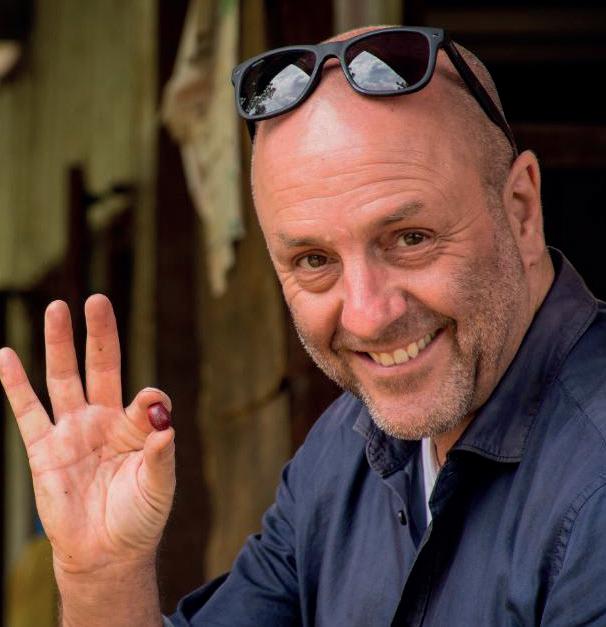
Q: What is the previous history?
JT: "I started with positions in the life resources industry in the Netherlands. From that circuit, I was asked to start a fish processing company in Dubai as a director, first a trading company, but soon also a production unit. From a cost point of view, as water is expensive, I got there and built my own water treatment plant. For this, I had to import Belgian sand into the desert state which raised many questions. In 2012, I registered www.cleanwateragency.org there and started specialising in biological treatment and membrane filtration. After 10 years, we left Dubai and returned to the Netherlands. I tried to hold on, but
JT: "I got a call from a recruitment agency looking for a manager for a potato processing fries factory in Kenya. All the loose parts for the factory had arrived, but the whole thing had to be built, connected to the electricity grid, staff had to be recruited and buyers found. I completed that job in just over six months. I then stepped up with a bonus and was soon called by another recruitment agency to reorganise a coffee roasting company, for which again the basic materials were present. The client was a large retailer from Scandinavia. At the main office, the Swedes had a ideal of having their own quality coffee brand, which was produced with a fair share for the coffee farmers, but they had little insight into the practice in Africa. You
VAN VERRE 295| 29
ENTREPRENEUR AND GENTLEMAN FARMER JEROEN TOLLENAAR:
approached to start another coffee roasting plant, but I immediately became a shareholder in that. In 2020, I started the new factory which was a lot more compact than the Scandinavian factory. It employs only 12 people with the same annual capacity. I have automated the processes in the factory as much as possible. In the coffee trade, supply chains are fragmented and therefore quite expensive. I managed to negotiate
spread out financially over a year and the cash flow is not in 6 months' supply of green beans. In addition, the moisture content contained in the coffee berries remains stable for longer, ensuring optimum quality of the roasted beans."

Q: What are Kenya's assets in terms of exports to western countries and the Arab world?
JT: "The factory is in a freetrade zone on the outskirts of Nairobi, along the highway to Mombassa. It means that you pay no import duties for beans from surrounding countries and profit tax for 7 years; when selling locally, you do have to pay tax in Kenya. The purpose of this 'export processing zone' is export of a Kenyan product and payment to promote stable western currencies. Incidentally, Kenyan partners get paid in Kenyan shillings, but this currency is pegged to the US dollar, which is obviously an advantage. If you want to source additional coffee from Rwanda, Uganda, DR Congo or Tanzania, a separate currency will be agreed, but it could be the US dollar initially. The main export markets for the new coffee roastery are Europe, United States, Russia, and some Gulf states."

Question: Kenya made until 1964 part of the UK, what do you notice still from this British period?
contracts with farmer cooperatives, where the number of steps in the supply chain could be shortened from nine to five and farmers receive a fair share price and were paid within 14 days instead of 9 to 12 months, which is very common in the coffee world. Those coffee farmers in Kenya are very good at their craft, but getting the production to market is not exactly cut-and-dried for them in general, let alone a profitable business. Burning locally is the solution here! You should know that Kenya counts two wet seasons after which the coffee berries can be picked. In consultation with the links in the supply chain, we have set up that the coffee beans remain in their natural shell (the parchment) for as long as possible. This allows them to be stored longer and takes the peak load out of the chain. This makes the production chain a process that can be
JT: "One of the first things I do is immerse myself in the history and culture of the country in which I will be working and doing business. Officially, Kenya has been an independent state since 1964, but it is an open secret that a call to London is still made for all important decisions. The legacy of the UK is still evident and goes beyond membership of the Commonwealth. In the 1950s and 1960s, Kenya was ravaged by the Mau Mau rebellion, in which a number of tribes resisted British rule, which had major interests in the agricultural sector. In those days, these tribes had almost no access to agricultural land. The British army used brute force to put down the rebellion, but at the beginning of the 1960s came Jomo Kenyatta, who had been captured earlier, who emerged as leader of the indigenous people. He managed to strike a deal with the British government, after
30 | VAN VERRE 295
Jeroen Tollenaar with crew from coffee roastery No 2
which the transition to an independent state proceeded without further bloodshed. This ensured that a constructive, pro-British atmosphere remained."
Q: Jomo Kenyatta and Arap Moi were legendary presidents in the last century who were internationally accused of corruption. Has corruption become a tradition in Kenya?
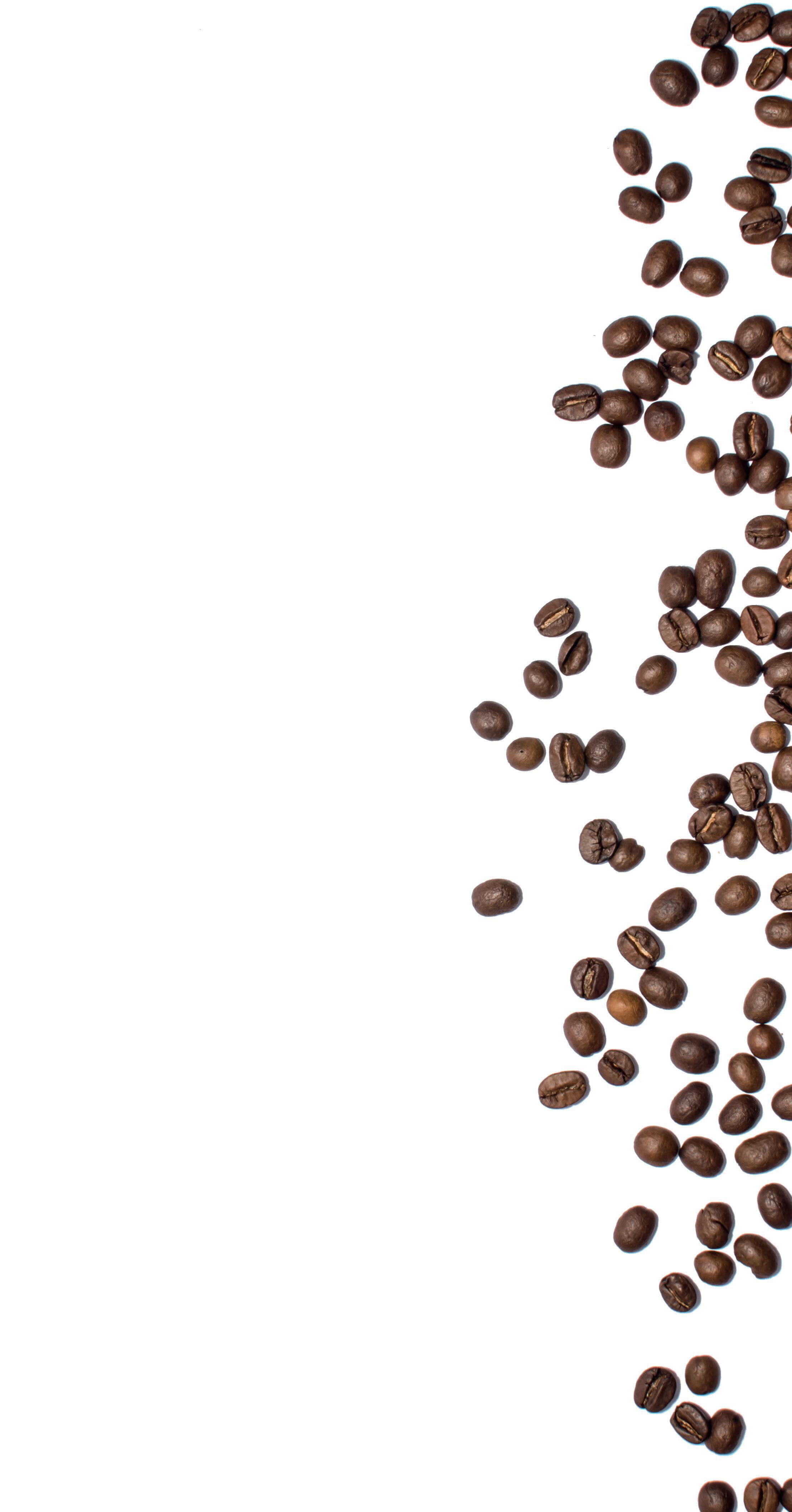
JT: "As far as I am concerned, corruption exists everywhere. This is certainly true in Africa. Here in Kenya, the government has identified the existence of corruption as a problem and people are being punished left and right, but Kenyans are very clever at covering bribes. Here, corruption is not seen as a mortal sin. Everyone knows that police officers, with the exception of a few, are corrupt. In any case, I do not participate in it and I would advise anyone who is going to invest in Kenya not to accept corruption proposals from the start. It is how you deal with it whether that set-up harms you or does not harm you. I had to deal with cops who said to me, why don't you give me a cup of Chai (tea). That is slang for offering bribes. I replied that I dealt exclusively in coffee and not chai tea. Of course, they didn't care, but when I then gave them a real cup of coffee with a big smile, they knew immediately that I was not going along with their real intention. Those officers assumed that I would come over with 'protection money.' They accepted it and never asked me anything else. Humour plays an important role in this society and they could see the joke there. Fortunately, they are like that. On the other hand, I missed out on several government projects as a result. So be it."
Q: You recently witnessed the installation of William Ruto (Sept 13, 2022) as Kenya's president. He is a self-made man who has made it from chicken salesman to millionaire in real estate, insurance and hotels. Is he the Donald Trump of Kenya?
JT: "I certainly believe that comparison is partly true. In any case, he is a man with balls, if I may express it flatly. He will go in with a straight leg if he thinks it is in the national interest. At least he managed to reach out to the class of
VAN VERRE 295| 31
almost 50 universities. What prospects do these well-educated young people have in Kenya?
JT: "I myself am not so convinced about the quality of education; it is still very much geared to the British tradition. It comes down to memorising as much learning as possible and if you can spoon-feed that during an exam. you get a diploma. The youth here should actually do more for themselves by learning to think and act. Happy there are now a number of good universities that have adapted their teaching methods accordingly. It is also suggested that education is virtually free in Kenya, but this is not the case in practice. Half of the universities are private institutions, which are hardly accessible to rural youth. Good education is relatively expensive in Kenya and even then quality is not always delivered. I have marketed the necessary vacancies and in doing so, as a Dutchman, you have expectations of the level people have with a certain degree. That was often a cold shower. On top of that, many diplomas can simply be bought here. You also come across that kind of corruption in road traffic, people have a driving licence, but that still doesn’t mean that they can drive a car. Meanwhile, I sold most of my shares in the coffee roastery in 2021 and by the end of 2022, I wasdoing my second and final instalment by hand. By the way, I am by no means bored. Clean Water Agency Ltd, my company in water treatment is doing very well. The drought makes conversion from sewage to clean water and even to drinking water and gets a lot of attention. In the context of capacity building, I am working on that together with local governments and a number of universities that have physics and chemistry laboratories. It is quite a challenge to secure the right academic partnerships for this in Kenya, but when it succeeds then the satis-
Q: Internationally, there are complaints about the footprint of

32 | VAN VERRE 295
the People's Republic of China on the African continent. Is this justified?
JT: "There is no doubt that the Chinese in Kenya have the infrastructure of roads, rail links and commercial property in hand. That cannot be reversed. In return, Kenya imports huge amounts of cheap consumer goods from China. The average Kenyan looks at only one thing; that is the lowest price. It creates a culture of cheap but substandard quality. This makes it harder for Dutch investors, as they have to defend the extra quality and Dutch cost structure. Increasingly, Kenyans are coming to realise that cheap is often expensive. This offers great opportunities for Dutch companies that want to enter Kenya and recognise it as an international hub. Good export facilities, Jomo Kenyata International Airport with direct flights to all major cities and Mombasa as an international port make the country a stable partner for international business. The government in Nairobi who goes along with this is clearly indispensable in this."
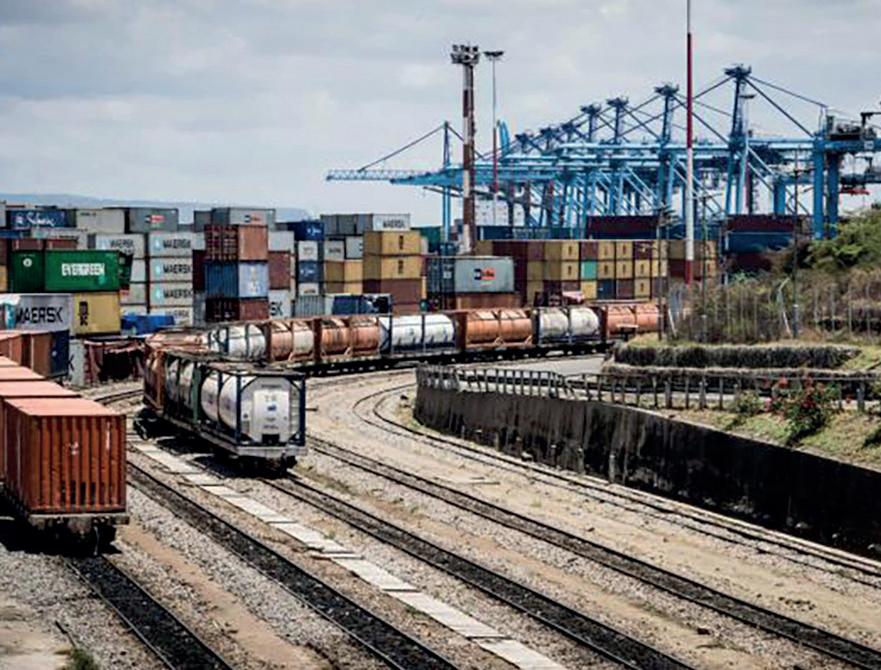
Question: A huge investment plan for Africa was recently agreed in Brussels during a consultation between the EU and the AU (African Union). Do you think this money will reach the farmers around you?
JT: "I am not entirely convinced of that yet. They are billions that often go to international companies operating in Africa; they can be either African companies or multinationals from other continents. A lot of EU money continues to go to African state-owned companies that have the will again invest in contracts with multinationals. If Dutch investors want to support coffee farmers, fruit and vegetable growers and flower growers, they do it best with direct facilities, without too much syrupy interference from governments. Setting up public-private partnerships, in which the government becomes responsible for pushing through grant and investment capital is usually expensive and is slowing down!"
Q: Until recently, the trio of South Africa, Kenya and Morocco were labelled Africa's economic leaders. Is this image still true today, as far as you are concerned?
JT: "The comparison with these two countries is not so relevant at the moment. Increasingly in central-east Africa, economic competition is playing out between Kenya and Rwanda. That country has been led since 2000 by Paul Kagama, a rock-solid head of state who rules with a firm hand. International NGOs have made huge investments, which is partly why it is such a stable country. A thriving tech industry has been built up there. I notice now in setting up my water purification company, that many companies in the biotech and pharmaceutical industries preferred Rwanda until recently. I myself still give Kenya the best chances, as it is located on the Indian Ocean. A key role is played by the port of Mombasa. That lies on an inlet that is too shallow for modern large container ships. A deeper channel needs to be dug there soon; this is a priority to be financed with international funds, preferably from the EU and the US. In addition, the country has wonderful opportunities for companies that can take the agricultural sector to the next level and create added value. And let us not forget the Covid Lockdown has hit home in Kenya, but not so much by the number of indigenous victims. Tourism is part ofthe top national revenue for Kenya and that has been completely stalled for over two years."
Q: There are as many as a dozen African countries that can boast wildlife parks, some of which are still truly pristine. Is the wildlife park sector in Kenya in need of modernisation?
JT: "We may lack big-name offerings in this area, but Kenya has a competitive advantage and that is the annual migration of the wildebeest. In the months of July to September, millions of animals may decide to cross the Mara
River, Talek River and Sand River from Tanzania. They then enter Masai Mara from the Serengeti savannah in search of fresh grass. When that spectacle erupts, thousands of tourists pay big bucks to watch the trek from jeeps, planes and helicopters. The luxury hotels at Kenya's southern border, towards the Serengeti, are then completely booked up."
What does your social life look like?
JT: I fly home four times a year in Zeeland Flanders where my family lives. We have two daughters. The eldest has since graduated and is out of the house. My youngest is studying nursing. She recently went along to Kenya for an internship and noticed that she could get excited about life there. I hope my wife will also get excited about life in Kenya's outback savannah or perhaps in another (inhabited) area. Although the traffic here is problematic!" ♦
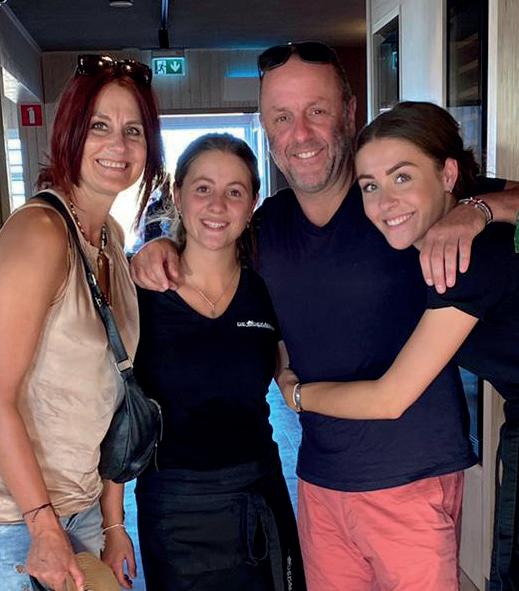
VAN VERRE 295| 33
Port of Mombasa. At home in Zeeuws-Vlaansderen.
Published once every three years, the African Transformation Report is used by most African governments to analyse the transition of the national economy. Producer is the African Centre for Economic Transformation (ACET). It is a think tank that takes action itself. Charles Odoom (20100425) was recruited as a management consultant, to drive the private sector of countries.
BY OELE STEENKS PHOTO CHARLES ODOOM
CHARLES ODOOM:

"Private sector crucial for future of young Africans!"
ACET supports Africa's long-term growth through economic transformation. The institute produces research, offers policy advice and connects key stakeholders so that African economies are better positioned for smart, inclusive and sustainable development. Growth in itself is no guarantee of a better society, African states are also beginning to recognise, according to Charles Odoom's commentary. ACET's long-term goal is to transform national economies within a generation in a way that improves the lives of the average African. Public health is paramount. "Our growth framework ensures that, in addition to GDP growth, African economies diversify, produce goods that are export-competitive, increase their productivity, integrate the latest technology and increase efficiency. Ultimately, everything is aimed at better health."
The ACET institute was founded in 2008 by Dr K. Y. Amoako, a Ghanaian-born former undersecretary-general of the United Nations responsible for the United Nations Economic Commission for Africa. ACET's flagship series of reports, The African Transformation Reports (ATRs), explores the key levers of economic transformation and analyses constraints. Each report outlines transformation themes and challenges and provides policy recommendations. ATRs are based on original analyses and draw on best practices from across Africa. The first of the series, published in 2014 and titled "Growth with DEPTH," built the framework that defines and explains economic transformation for Africa, drawing lessons from international case studies, especially in Asia. The five key concepts are diversification, exports, productivity, technology and health.
The African Transformation Index (ATI) was also developed along the lines of the Growth with DEPTH elements. Resulting weighted scores measure economic transition across the continent and provide a transformation score for each African country. Countries can compare their progress against the continental result and with other African states. Scores are also offered on specific elements, again using the premise DEPTH. Three years ago, Charles Odoom was brought in by ACET as head of the new private sector development unit. He was given the task of setting up a practical programme. Therebefore, Charles was director-owner of a management consulting firm called Carl Moodo Advisory. He also co-founded FMS Ghana, a management services and consulting firm primarily serving clients in the oil and gas industry. Previously, he was a strategy and operations consultant at PricewaterhouseCoopers, PwC.
"Impact through policy support and advocacy with governments usually takes time and sometimes barely sees the light of day. ACET realised that to drive an inclusive and holistic transformation agenda, stakeholders and private sector actors needed to be involved in the field. The DEPTH framework calls for ensuring active participation at the micro level. I was brought in to deliver this agenda," says Charles Odoom. To enable transformation, African governments need to start seeing the private sector as an engine of the economy, but that requires a clear framework to be defined and embraced by those governments. There are a series of pre-conditions that precede encouraging smaller and medium-sized businesses to succeed. "First of all, there must be a stable political environment where the rule of law is paramount and guarded by strong institutions. This is to support a favourable business environment.
34 | VAN VERRE 295
Next, there must be an economy focused on developing a domestic market environment that supports value creation through production and industrialisation. The structure of most African economies, designed to feed Western and Asian industries with raw materials, remains the biggest development challenge. Africa's economy is based on commodity exports to Europe and other parts of the world, and that needs to change in part," Charles Odoom said.
He works with private sector players in several African countries to find out how to strengthen their capacities. With those findings, he steps up to the relevant governments to lay the groundwork for a national industrialisation policy and building up the private sector. His programme focuses on the development of SMEs, particularly medium-sized to large companies producing goods and services that have the potential to integrate into global value chains. The programme applies an accelerator/incubator model that is sector-agnostic. Ultimately, it seeks to to effectively help several carefully selected SMEs move forward. Odoom organises technical support, mentoring, coaching, financial support and transaction advisory services. The aim is to make selected companies investment-ready and support them in integrating into African and global value chains. The access to venture capital and the cost of financing remain major hurdles for growing SMEs in Africa. Mediation from ACET makes it easier to connect industrial growth companies to suitable financing. "Local loans from banking institutions or finance companies are very expensive, due to high interest rates. However, it is quite possible to offer promising African companies access to external capital providers, in order to get cheaper financing of their growth agenda. Local financial institutions can be intermediaries in this process. They help provide the guarantees needed to enable international financing.
Transaction advisory support provided to SMEs includes negotiations with financing partners. It helps to balance the power dynamics usually seen in favour of the big investors. We are working to develop private companies in African countries that can become direct partners for investors looking at the African market, through FDIs, JVs and other arrangements. These are becoming increasingly important to implement national programmes for economic development and transformation on this continent." ACET conducts multi-country studies that provide insights to convene consultants, policy actors and development partners to discuss and adopt recommendations for reforming policies focusing on economic transformation. ACET also develops specific implementation programmes for SMEs in selected countries. Ghana, Rwanda, and Liberia have such programmes. ACET is also a core partner for Compact with Africa (CwA), a G20 initiative. Under this pact, ACET supports countries under the CwA in furthering the programme's goal. ACET's private sector development programme is one of the initiatives being implemented to promote the CwA agenda. Like other Africa experts in this edition, Charles Odoom is enthusiastic about the business climate in the relatively small country of Rwanda. "The country is democratic and has experienced inclusive and prosperous development since 2000 under the rule of President Paul Kagame. Rwanda is very progressive and the emancipation of women has gained prominence. The parliament has the highest percentage of female parliamentarians in the world.
Although the economy is relatively small, the business environment has made great strides, technological innovation has been harnessed and the country is very favourable to investors. There is a one-stop shop for business registration, licensing and permits. A company can be registered within two hours. The government's attitude towards business is very efficient and friendly. Rwanda also has special economic zones that offer tax incentives for both local and foreign investors. Rwanda provides free business land and infrastructure for any factory or manufacturing entity that employs at least a thousand workers....
Charles Odoom notes that there are larger countries in Africa with huge resources, yet which face many problems that limit growth and transformation. The DR Congo is one such huge country with great potential to transform and create jobs for its people. However, decades of political conflict and lack of infrastructure such as road network, power and connectivity are causing economic stagnation. Based on ACET's transformation index, Charles Odoom is not enthusiastic about the country. "Congo has always been there and we have known for decades that the country

VAN VERRE 295| 35
has huge reserves of diamonds, gold, cobalt, nickel, and other raw materials. Despite positive GDP growth in recent years, mainly driven by mining, the statistical evidence for transformation is lacking. Corruption continues to rage through Africa and Congo is not exempt," said Charles Odoom. On the other hand, he is quite enthusiastic about Nigeria. The country is not only an economic giant because of its oil and gas reserves, but increasingly it is seizing regional control in Africa. Its economy is the largest in Africa, 31st largest in the world by GDP. The World Bank considers Nigeria an emerging market.
Nigeria is touted as the giant of Africa because of its large population of about 220 million. Nigeria has enjoyed a stable democratic system in recent decades after years of military dictatorships. Nigeria is a founding member of the African Union and a member of many international organisations, including the United Nations, the Commonwealth of Nations, NAM, the Economic Community of West African States, the Organisation of Islamic Cooperation and OPEC. It is also a member of the informal MINT group of countries and is one of the Next Eleven economies. However, the country scores low in the Human Development Index and remains one of the most corrupt countries in the world. Concerns about corruption are reflected in other interviews in this Africa edition. Charles Odoom is also positive about the continent of Africa. "From Kenya in East Africa down south to South Africa, political conditions are stable right now. That is an advantage we have not really seen in the last century. It creates the opportunity for the middle class of citizens to grow rapidly. Countries on the northern side, such as Morocco and Egypt, have already become advanced economies. Unfortunately, this cannot be said of all states in West Africa, such as Guinea, Mali and Burkina Faso, where there have been uprisings with cases of looting and human rights violations in recent years. I would not call them protracted wars, rather they are disruptions to democracy.
The lack of jobs for Africa's huge youthful population remains a major risk that could escalate into security tensions. It is a race against time to create enough jobs to quickly dismantle this ticking time bomb. The African Continental Free Trade Area is a common market that allows all African countries to thrive together. Although some countries do not trust it, ACET projections show that all countries will eventually benefit from liberalisation on this continent. Depending on the economic climate, countries may experience both gains and losses. However, all countries should be keen to realise gains and minimise the impact of losses. We cannot leave anything to chance." Charles concludes by saying that African countries' policies to encourage entrepreneurship and support the private sector will pay much-needed dividends to create jobs for African youth. ♦

36 | VAN VERRE 293
For about 10 years, alumnus Bas de Lange (20000407) worked as an engineer and manager within Chevron in the African continent's major oil well and gas bubble. He saw how contracts were not fulfilled and was shocked by the huge remittances to governments and state oil companies of Nigeria and Angola. The tapped billions of dollars from the past, have hardly benefited the millions of ordinary Africans, De Lange argues.

"Oil production in Angola and Nigeria was hardly profitable."
BY OELE STEENKS PHOTO BAS DE LANGE

The war in Ukraine and the cutting off of Europe from Russian gas, the demand for LNG has grown tremendously, resulting in corresponding prices and thus mega-profits for many oil & gas companies; but also the current profits seem to benefit only a small group in West Africa. This interview contains no (official) Chevron views but is solely Bas de Lange's personal view after a decade of working and living in West Africa.
Nigeria and Angola - with Algeriaare the African countries with the highest production of oil and, increasingly, natural gas. Since the Ukraine war, the area is back in the spotlight. On Bonny Island, located in the Niger Delta, Nigerians have enabled a huge production capacity for converting natural gas into LNG. Along with Qatar, it is one
of the breeding grounds where natural gas shortages in Europe, are being replenished. Before President Putin stopped supplying natural gas to Germany in particular, Nigeria and Angola had been making a lot of money by the rulers of both countries since the 1960s. We talk about this with Nyenrodian Bas de Lange, who was a manager at Chevron Nigeria and is now stationed in Luanda, Angola's capital.
"The big oil companies like Shell, BP, Exxon, Total, and Chevron have invested in exploiting oil fields along the coast of both countries for decades. Each time, new contracts had to be drawn up with the state oil companies. Different ownership constructions have been used, but army chiefs, presidents, ministers have all made sure that they benefited handsomely. The problem is that the regimes of Nigeria and Angola often prove unable to financially sustain a true joint venture. For example, the moment
an oil company had invested a billion in a new platform, Nigeria often proved unable to raise its share of the investment; its share of oil revenues had already flowed away to other destinations. As a solution, we had to fall back on deals that required external financing by (international) banks, or agreements were drawn up whereby the oil company was allowed to recoup the investment in a field or platform, after which Nigeria and/or Angola would tax our local profits or receive income from royalties. The latter is a way of not being at risk and still hitching a ride on the production of western oil companies. The oil & gas industry is a capitalintensive industry, where the huge investment has to be made upfront, after which the returns often spread out over 20+ years. Billions of investments have been played. Changing the rules of the game sometimes during the competition; it happens quite often that once a western society has committed,
LANGE:
BAS DE
VAN VERRE 295| 37
legislation changes, procurement contracts are adjusted, etc. In particular after local or national elections, there may be additional demands, because there is almost always a new army chief or politician who then wants to share in the oil revenues. The thinking then is: now it's my turn; I'll take my share immediately, because tomorrow it might not be there. And with that course of action, it will indeed not be there tomorrow; a self-fulfilling prophecy that keeps repeating itself! Thus, several executives of African oilproducing countries have tied up a lot of money in real estate in London, Dubai, etc. The population has hardly seen a return on this cash cow, even though they are indirectly subsidised by low petrol prices; a litre of diesel costs about 25 eurocents in Angola, petrol about 30 eurocents," said Bas de Lange.
EXTREME TAX LEVIES
In 2022, the EU agreed a €150bn investment programme with the African Union. An important condition from the African side was that their governments be allowed to keep the reins of this huge distribution of funds. The trend was that in the past, European and also US companies had already benefited so much from lowpriced raw materials from Africa. That conclusion, according to Bas, is often not justified. "What the outside
world barely realises is that we are exposed to very high tax levies in Nigeria and Angola once the offshore production platforms are up and running. This tax regime is really a key factor; there have been times when -even at quite high oil priceswe could not get new investments off the ground because of extreme tax levies and regulations. It is therefore not surprising that many Western companies are shifting their sights to countries where geopolitical uncertainty is lower."
Bas de Lange also points to "vandalism" to which oil companies are exposed in the Niger Delta and so-called shallow waters.
"Here we can witness pipelines and installations being sabotaged close to the coast. Crude oil is simply tapped and sold or refined locally "in pots and pans". If there is environmental pollution in the process, it is usually the oil company that is blamed for it and can pick up the cost. It also happens that pipelines are blown up by locals to hit the president's cash flow; a means of exerting pressure in negotiations. It is really mafia-like practices. Exxon Mobil was so troubled by it that they sold much of their
operation in this region to an indigenous company."
Global demand for natural gas, which is now considered a clean or energy-neutral fuel by the EU, has played into the hands of Chevron and other companies.
"For a long time, we had to see natural gas in this area as a by-product of oil extraction, from which there was nothing to earn. Indeed, sometimes we would stumble upon a gas field and decide to divest the well immediately, as operation without the presence of gas infrastructure could not be made profitable. In today's market and with new technology, we can operate with natural gas, which is largely released in oil extraction, make money, making up for past losses. We also use the facilities at Bonny Island (Nigeria) and Soyo (Angola) to liquefy the natural gas and have the transport ready for the international tanker fleet. Our good fortune is that we had relatively few LNG contracts, as Qatar, for example, has done with China and Japan. Much of it we could offer on the LNG spot market and thus we were able to take advantage of the increased energy prices in the last year. Of course, the current high revenues have to be set against the high risks we face in countries like Nigeria and Angola. Some projects have been disappointing and energy companies do not get government support like, say, Dutch banks. If we fall over
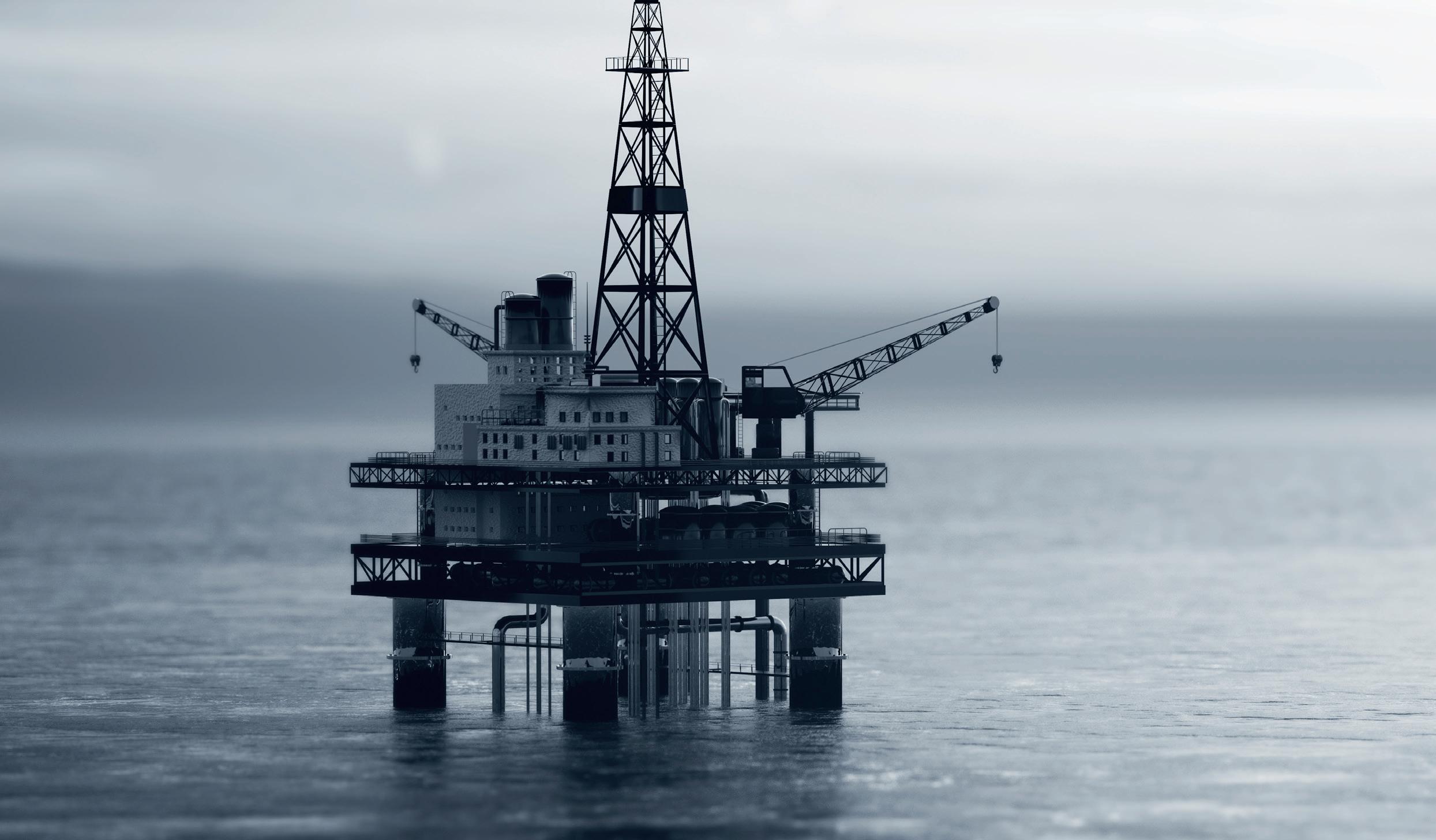
38 | VAN VERRE 295
somewhere, it is really over. By the way, even in the Netherlands there is a separate tax for oil companies -on top of the normal corporate tax- if the profits are considered (too) high. Now we are experiencing a period of high profits, but fortunately, in a free market, everyone can benefit from them as a shareholder."
PERSONAL DANGER
Incidentally, working for an international oil company is certainly not without personal danger. "I lived in Lagos, Nigeria, for five years before this position. After seven at night, I was not allowed to leave the camp without security. There was a certain radius within which I could move freely during the day, but for business meetings outside, separate security always had to be arranged. Living here in Luanda is quite pleasant, but even here, as a foreigner, you are a potential target for robbery or kidnapping . Fortunately for Angola, after a period of military dictatorship, tourism is cautiously beginning to take off. There is still clearly a Portuguese stamp on the country and this city, which makes it quite attractive as a travel destination. The Netherlands also ruled Angola for a few years and there are still traces of it."
ENVIRONMENT

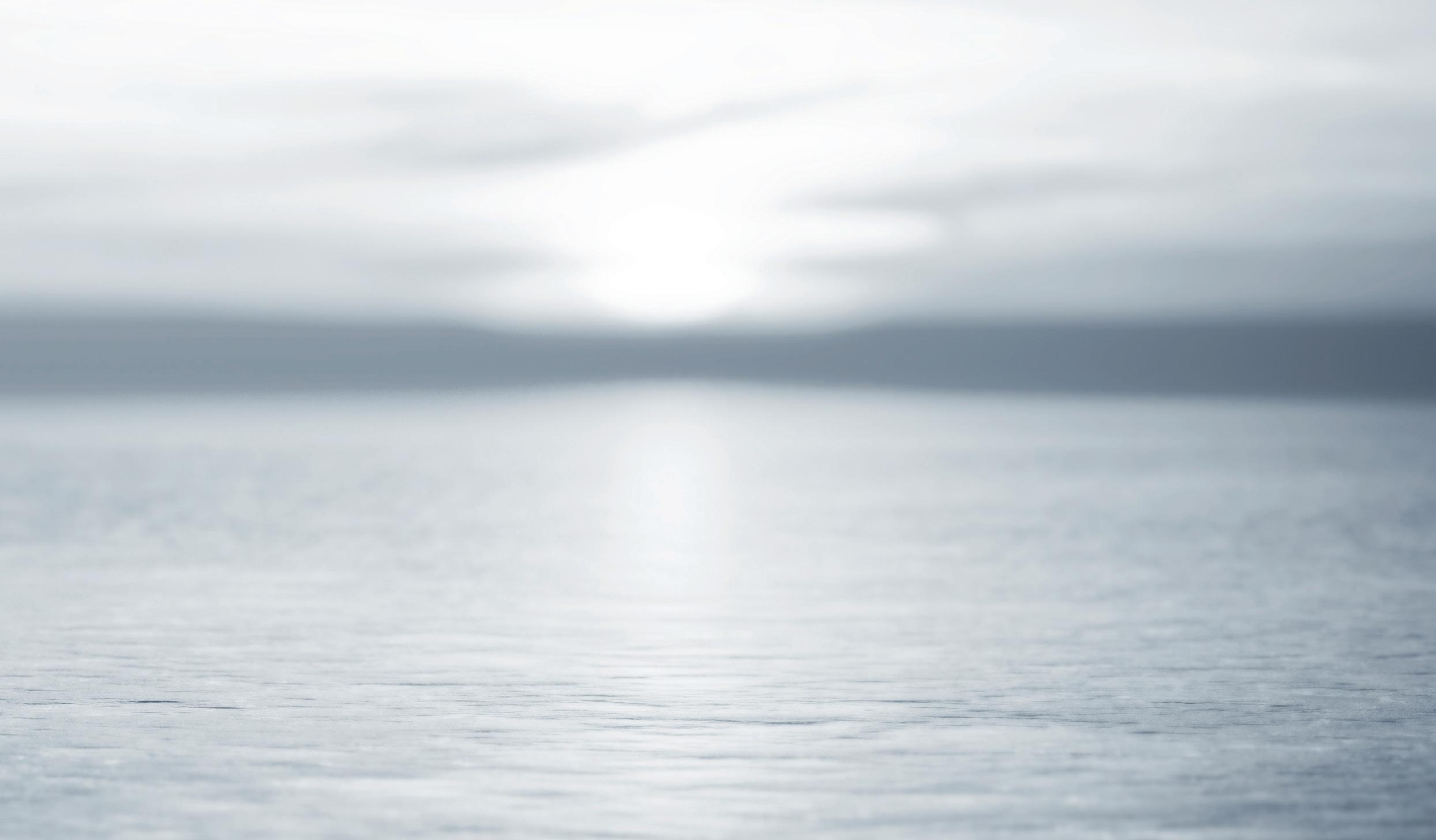
Shell and BP face strong pressure in UK to hand in extra profits and invest more heavily in the energy transition.
As an employee of US-based Chevron holds Bas de Lange is not concerned with market opportunities for wind power in the waters of Angola or Nigeria. "A rapid transition to solar or wind power for own use is not obvious in West Africa; it requires large investments and that money is not there, and there is relatively plenty of oil and gas in stock. This year there are elections in Nigeria, involving three major parties with their presidential candidates. In such a final year of a four-year reign of President Muhammadu Buhari, you see little government money available and decisions are postponed. Government revenues are now being spent on election campaigns, among other things, and no doubt the necessary money is being siphoned off while the incumbent party can still access the coffers. Expensive investments in the environment are certainly not a priority then.
We ourselves at Chevron ensure that our oil and gas production is performing as cleanly as possible. The CO2 emissions per barrel of crude oil and per cubic metre of gas produced, or the total emissions of harmful gases per production site, are tracked, and we are seeing those figures continue to fall. Especially with the emergence of the LNG market, we have become a lot cleaner at sea because released gas in oil extraction no longer is flared or no longer needs to be injected. Furthermore,
there are several environmental requirements of applications in West Africa that are also valid in the western world.
Oil and gas are rather always Chevron's main business. We take the view that shareholders' money is used most responsibly, on projects where our technical expertise is decisive. Incidentally, I can get annoyed by the attitude of Dutch activists who point to oil companies as the big polluter. The Dutch government has been taxing fuels about 60% for decades, in the form of excise duty and VAT; are those many tens of billions of euros put in a piggy bank for energy transition and environment? The answer, unfortunately, is no."
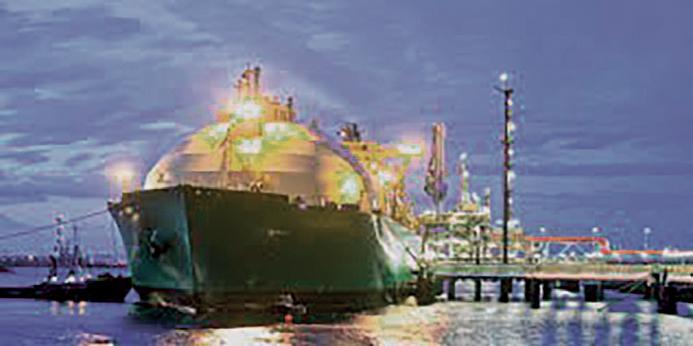
VAN VERRE 295| 39
♦
EU & Angola work together.
LNG tanker for Bonny Island, Nigeria.
MARCEL NKONGO KWEDI:


As a child, Marcel Nkongo Kwedi (20080415) was picked out at school to prepare him for a successful career. He became a computer programmer and got an MBA at Nyenrode. He got a job at Dutch company RAET, but the call to work as a social entrepreneur in his home country of Cameroon was too strong. He is working hard to realise his ideas for a successful local SME. Young people in Cameroon need to realise that they should start at the bottom of the ladder.
BY OELE STEENKS PHOTO MARCEL NKONGO KWEDI
"I wanted to do work with impact in Cameroon."
Q: Can you briefly introduce yourself?
MNK: “I come from a family of 16 children of two women. Five siblings live in Cameroon, but the others live in Europe, Canada, and the US. I am the youngest of the bunch. Every year, the Cameroon government selects 100 children with the highest IQ for higher education. I was chosen to study at the National Polytechnic Institute. At the age of 22, I graduated as a software programmer. I immediately started my own business, but after three years I had financial problems. That was in 2007. I wondered what I had done wrong. I did a lot of self-study by reading management books in the British Embassy library. Then I took the GMAT test and scored enough points to go to a European university. My first contact was the University of Mannheim, but there I did not qualify for a full scholarship. That was the case at Nyenrode, where I was admitted to the NIMBA programme. I spent 13 months at Nyenrode; in a way, it felt like staying in heaven. There was a mix of nationalities, political systems, religions, cultures, colours, gender and sexual orientation that I had not experienced before. I even had a Chinese and a Taiwanese roommate and there were many international classmates working together in group projects and it went well together! After getting my MBA, I applied for a job in the Netherlands. I was already successful with my first job application. The company was RAET BV, the developer of HR software, and I was put in charge of designing new software products. I worked there for two and a half years, then I got bored with the job. I wanted to do work with more impact. For me, this meant returning to Cameroon."
Q: What was it like being back in your home country? MNK: "To be back in Cameroon, after five years in the Netherlands, I found it a shock. Nothing had actually changed. The same busyness, chaos, dust and slums. At the same time, I realised I had to be there to really make a difference. The first thing I did was go into education. I set up a cooperative for teachers who could offer a modern curriculum. We were not so much aiming at young people who were already in school, but at entrepreneurs who were mostly uneducated and to whom we offered the essentials of business, marketing and finance. There were students who could not read French, for instance, but had a good trading spirit. We taught them the essentials of efficiency, accounting, logistics and marketing. I also wrote a book on social entrepreneurship that serves as a guide for small businesses in Cameroon. It is about pragmatic entrepreneurship in an extreme environment. The book was offered free to students. I trained 200 students in three years.
Unfortunately, we did suffer from the expectations some students had, that after completion of the course would receive free money from a foreign development fund. That was never the intention. In 2018, I quit the programme."
Q: We assume you are there in Cameroon could not live on?
MNK: "I earn money to make a living as a consultant in marketing strategy and project development. One of the bigger assignments I received was from the government of Chad, the country located on Cameroon's north-eastern border. They wanted to know what the opportunities were for a so-called dry port in Douala, Cameroon's main port
40 | VAN VERRE 295
city on the Atlantic Ocean. This mainly involved handling import and export goods for Chad through a duty-free zone in Douala. I recently received an assignment from Canada, from the University of Regina, Saskatchewan, which wants to establish an institute for African studies. The Canadians wanted a business plan to develop an attractive selfsustaining African Institute for the growing City of Regina."
Q: What is your motivation?
MNK: "I prefer to think of myself as a social entrepreneur. By social projects, I do not mean a form of charity, because giving away money in Cameroon is completely pointless. Social projects are attempts to get into meet the basic needs of this society. The internationalisation of companies and their products and the rise of social media have made people in Cameroon feel that they do not have to start at the bottom of the ladder. They immediately want to live like Europeans and Americans do. We have had a stock exchange in Douala since 2001, but for the people it is totally meaningless. Entrepreneurs in Cameroon need to learn that you cannot skip steps in building a healthy econmy."
Q: What do you mean by that?
MNK: "The first step in the Maslow need pyramid is food, by which I mean healthy food. People in Africa eat a lot, but it's all food with too many calories. They hardly get protein and vitamins. That's why I started the Nutrimax project in 2015. I started growing Moringa trees' in plastic greenhouses. The leaves of this plant are extremely nutritious and can be used to make yoghurt rich in proteins and vitamins. The intention is to supply the yoghurt to primary schools. It is a pioneering project, as teachers must first see for themselves the need for healthy food. In the poorest parts of Cameroon, there is a scarcity of water. By using plastic greenhouses, the heat provides high humidity that is ideal for the Moringa trees. Currently, the project is at a standstill because the manager who was supposed to run it suddenly quit. However, I am determined to restart it. For that, I need to find a reliable man with agricultural training. I can forget about local subsidies because the government down to every municipality is corrupt. For instance, the government has ensured that local NGOs cannot independently bring in money from abroad."

Q: How important is local agriculture?
MNK: "Sixty per cent of the population in Cameroon are small farmers. They don't really know how to market their produce in a larger market, other than to road vendors in the local town. A huge amount of food is thus wasted in Cameroon. So I set up an internet platform to bring supply and demand together. The remarkable thing is that the government
of Nigeria does see the usefulness of such an auction platform and they supported me financially with a grant. The system works like a futures trade, allowing farmers to sell their harvest ahead, refining their production and buying the right amount of packing material. The platform is on hold after six months because of a distrust of prepayment by customers. A solution to this is yet to be found."
Q: It seems that initiatives seem logical at first, yet get bogged down. Have you had to stop social entrepreneurship in the meantime?
MNK: "In any case, I have come to the conclusion that change in Cameroon is very slow. The only way to uplift the country is to create a middle class. I have now set up a new platform, Africa Development Network. It is aimed at the funding of small entrepreneurs who deal in popular products and services, such as sellers of motorbikes or donut shops. The target group consists of people who have a good education but have no chance on a job and have no money to start a business. Politicians often have no intention of taking those people to the next level, as it may mean competition for themselves. Local political leaders pulling the strings are just lining their pockets."
Q: Will Cameroon be helped by a good monetary policy?

MNK: "A big problem is Cameroon's currency, which is is the Central African Franc, a French currency supported by central banks in six African countries, namely Cameroon, Central Africa, Chad, Republic of Congo (Congo Brazzaville), Equatorial Guinea, and Gabon. The exchange rate is pegged to the euro, making the value too high for our underlying economy. Every year, a sum of Central African francs is printed without any connection to the economic and financial realities of the member states! It is mainly the African elite that benefits from this, as they can buy expensive foreign products at bargain prices."
Q: How important is the preservation of ecosystems for Cameroon?
MNK: "Environmental issues are glossed over by the fact that Cameroon is a large country and sparsely populated. Environmental pollution in urban areas is severe. Again, the local rulers do little about it; there is no clear plan to protect our ecosystem. The government, on the other hand, contributes to the destruction of nature in Cameroon, through huge plots of land jungle that they sell to Chinese companies. They know exactly what they are holding in Africa. These are natural resources, mainly gold. Central Africa is blessed with huge gold reserves, but locals don't see any of it."
♦ VAN VERRE 295| 41
"When I get on the plane to Cape Town, I go home."
Johannesburg is a dangerous city. That is an internationally known reality. Yet you can build an excellent career there as a Nyenrodian. Indeed, you can fall in love with the country there. Egon Theunissen (20050343) led Danone's South African organisation for six years and experienced both. Now he lives in Paarl in the Western Cape, probably one of the best regions in the world for a terminal.
BY OELE STEENKS PHOTOS EGON THEUNISSEN
Q: What was your first experience of South Africa?

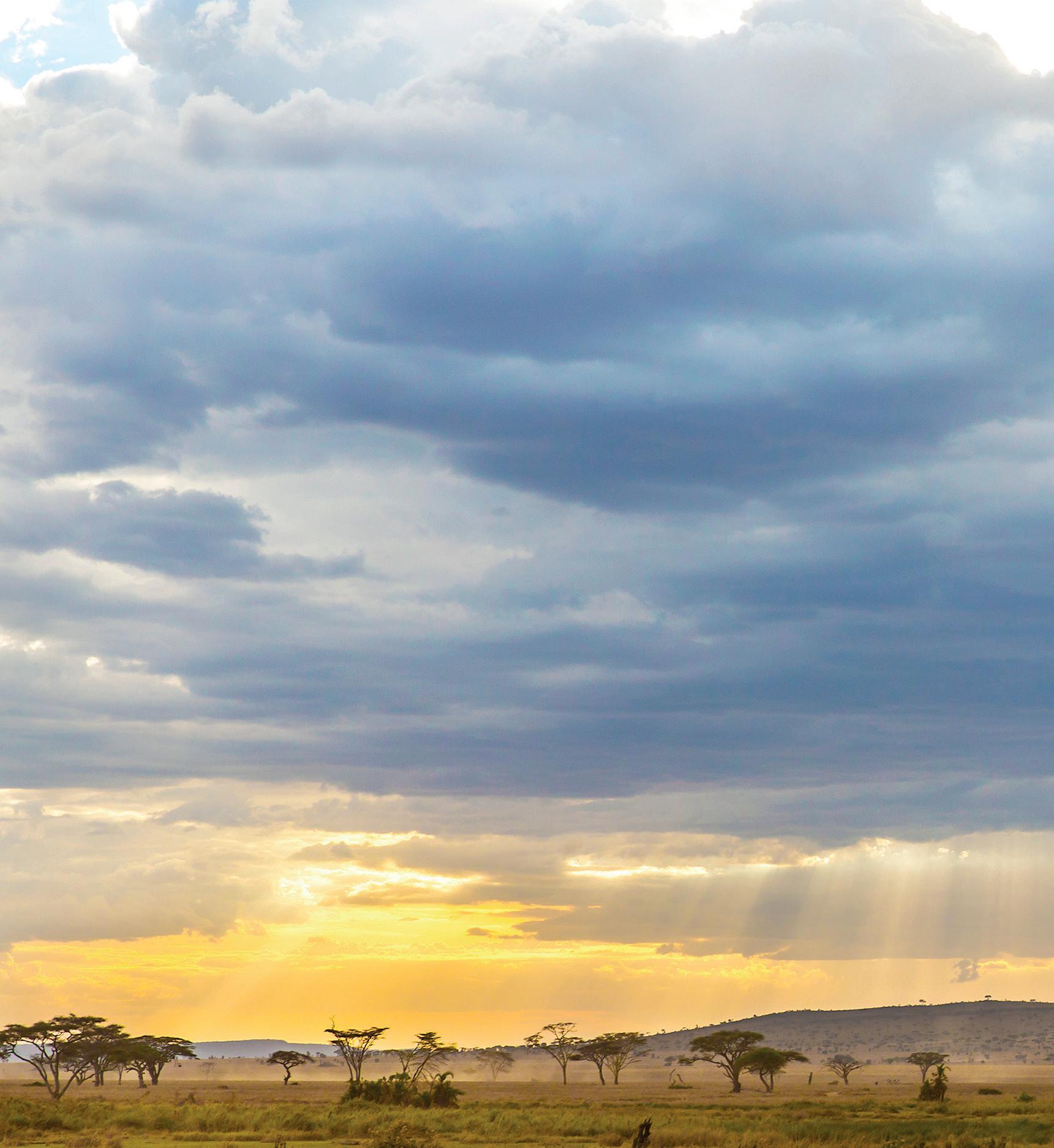
ET: "I worked for Heinz for six years, then I visited South Africa for the first time in 2013, without too many expectations. Heinz had a joint venture with Pioneer Foods, one of the biggest local food brands. The combination had an office in Paarl, North-east of Cape Town."
Q: What was it like working for a legendary brand like Heinz?
ET: "South Africa was a small market for Heinz. It is one of the few countries where Heinz Ketchup is not the market leader. That year, Berkshire Hathaway, Warren Buffett's conglomerate, acquired Heinz, only to merge it with Kraft Foods in 2015. Prior to that, it was decided to franchise Heinz's operations in South Africa to Pioneer Foods. With that, my job for Heinz changed. Meanwhile, a lot had happened in a short time. I spent time in various places around the world, but nowhere did I feel at home as quickly as in South Africa. Before I knew it, I had a circle of colleagues and acquaintances willing to take me in tow. In no time, I had a busier social life than I had in the
Netherlands. It also had to do with the fact that there is so much to see in Paarl, from the Atlantic Ocean, game reserves, vineyards to Cape Town itself. Especially at the time, there was a relaxed attitude towards the work-to-leisure ratio. Within six months, I then got a very good impression of the country."
Q: Why did you want to stay in South Africa when Heinz had other plans for you?
ET: "I fell in love not only with the country, but also with a South African, a Zulu woman to be precise. Meanwhile, Heinz wanted me at their sites in China and Japan, where I had to do integration jobs for procurement in those countries. I completed those jobs satisfactorily, after which I was able to make a big break at Heinz's headquarters in Pittsburgh as procurement director for North America, the largest region for Heinz. I had a top job, but I was working also at a club that had become quite 'cut-throat.' Working days of 15+ hours were the norm and the pressure to meet your targets was immense.Meanwhile, I tried to make something of my relationship by regularly going to Cape Town, flying first from China and Japan.
Then from Pittsburgh, to Washington and then via Dakar to Cape Town. In terms of tax, of course, that was a drama. Then I got a tip from a former colleague at Heinz, who told me there was a job opening at Danone in South Africa. Maybe I should have a chat. On the other hand, the variable pay in America was very high, especially compared to the job in South Africa. But after long consideration, however, I chose my relationship and that job at Danone."
Q: Did this solve the relationship problem?
ET: "My beloved then worked for Brandhouse, a joint venture between Heineken, Diageo, and Namibian Breweries, in Cape Town and I ended up working for Danone in the office in Johannesburg. I went from travelling 24 minutes to travelling two hours in South Africa, but it felt like it was around the corner. At one point, its office was moved from Cape Town to Johannesburg. It couldn't have been nicer and we were finally able to live together. We've been happy together for nine years now. It is one of the better life decisions I have made. She has a son from a previous marriage aged 23 who has just graduated
42 | VAN VERRE 295
EGON THEUNISSEN:
from the University of Pretoria. I consider myself his second father from some distance."
Q: What does the South African market look like for Danone?
ET: "In South Africa, Danone is 95% in dairy, it has grown that way historically. We are mainly talking about yoghurt products. For that, we have mainly local brands. We do have top brands like Activia and Danino, but that is a small segment. The water market is tricky. It is perhaps a legacy of the Dutch that drinking water is of high quality. You can drink water from the tap almost everywhere, so the market for mineral water is not that interesting, although recently there has been room for mineral waters. Moreover, it is a very competitive market and the margins are not attractive enough for Danone. We have here some Evian products through a distributor, but it is not very sustainable to lug water to Africa from the French Alps. We also have a line of baby food, but for that the market is given to Nestlé and local brands. There is a strict ban on advertising in that market and the basic principle is always that breastfeeding is preferred. Baby formula is a good alternative, especially if there are medical reasons for it. In South Africa, however, convincing young mothers of this is a tall order. It's about gaining trust and that is a long haul."
Q: What part of the consumer market can Danone reach in South Africa?
ET: "The bottom end of the market is minus or more unattainable for Danone. This is about 40 per cent of the population served by a highly competitive market. That group of people simply does not have enough resources to spend on relatively expensive yoghurt. For them, rice porridge, for instance, comes first. In addition, Danone is a multinational with certain quality requirements for its products, which makes our products relatively more expensive and so, unfortunately, you miss the connection with the unemployed part of the population. As an example, Danone now requires a cold chain, so the products must be able to be chilled
in the shops and then chilled again at home. That comes with a certain price tag. This is not to say that it is so easy to have a profitable yoghurt market for the middle class. A six-pack of Danone 'tubs' costs about one euro in South Africa, while in Europe it costs four times as much. So we had to work extremely hard to achieve sufficient sales at low margins. Bear in mind that 70% of supermarket spending is driven by price promotion. People start spending money the moment monthly salaries, pensions and benefits are deposited, but then they also buy for a whole month. So at that point, as a brand, you need to make your move through targeted advertising."
Q: And what about the premium market?
ET: "Fascinatingly, Woolworths is the supermarket with the best reach among the upper class, yet this most premium shop in South Africa uses private labels for most products. In doing so, they deliver an excellent marketing performance by being innovative and offering quality products. For instance, they now have a Vegan line and provide flavours that are trendy. Woolworths therefore says to established brands, no thanks! So they have a strong foothold in the market section where margins are attractive. Currently, supermarkets like Spar and Checkers are competing with Woolworths. In South Africa, Spar is a franchise model mostly run by local entrepreneurs. This gives them high coverage in rural areas. Checkers is closer to our Albert Heijn. Whereas on the consumer side we really have retail that can keep up with the world's best, on the supplier side it feels like we are 10 to 15 years behind Europe. It's an aggressive business where buyers put heavy pressure on suppliers until they give the right price. It is very difficult to have a strategic discussion without price."
Q: Danone claims to be tightly focused on Sustainable Development goals; what does that look like in South Africa?

ET: "Danone has long had a corporate culture where, besides producing dairy products, there is a focus on community
projects. We are a company that very much wants to be socially engaged in a natural way. We don't pretend to be the company that can make the biggest difference in South Africa, but we do try to set the tone. First of all, we do the obvious things like waste reduction, solar energy and our own groundwater facilities. But we also have an education plan, through which we educate in schools about vitamins, minerals and healthy eating.
We also collect plastic packaging from yoghurt, which we convert into desks for children at school. We also received a packaging award for that."
Q: What is the financial position of the average South African?
ET: "We have had between five to 10 per cent inflation here for decades. However, we are used to it. Inflation is traditionally high, but it is also stable. I would not be surprised if 2022 becomes the year when the Netherlands has higher inflation than South Africa. The conflict in Ukraine has had much less impact on energy prices here. The cost of borrowing money is exorbitant. We moved from Johannesburg to Paarl, where we built our own house, for which I had taken out a small mortgage. I can tell you, I was quite motivated to pay it off quickly. Mortgage rates between eight and 10 per cent are quite common here. They work with variable interest rates here, you cannot lock in an interest rate for a longer period unless you are willing to pay a huge premium. The Rand is not a fantastic currency, although there are worse currencies in Africa. On the other hand, returns on investing are a lot higher. It is quite normal here to get returns of 10 per cent or higher, you can only dream of that in Europe. This is a country where you can make a decent capital as an entrepreneur, if you are willing to take the risk."
Q: What is Danone's commitment as a multinational on the African continent?
ET: "Africa is the continent that most fits with Danone's mission to bring healthy food to as many people as possible. The group is all over Africa, but success varies by country. At headquarters, they may have hoped
VAN VERRE 295| 43
that the market in Africa would develop faster, as it did in Asia. However, that has been quite disappointing. Africa is not for sissies we always say here with a wink, you need a long breath. On the African continent, however, there is always something going on, a crisis, a revolt, or an import ban. Nigeria and Angola were hugely profitable countries for a while, because of oil exports those economies were working overtime, but that has stalled for almost a decade. The reality is that no African country is growing as Danone had hoped, including South Africa. But I have no reason to assume, Danone will not continue to invest in Africa. The continent emphatically fits the multinational's mission: bringing health through food to as many people as possible."
Q: You have moved from Johannesburg, back to Paarl. Is Johannesburg really such a dangerous city?
ET: "High crime is unfortunately the reality. If you ever get experience of assault, rape, carjacking or robbery, the love for this country fades fast. You can't just walk the streets at night. I was lucky that during my six-year stay in Johannesburg, I never experienced anything nasty. The reality, though, is that you live in a high-security compound there. You have to be able to give something like that a place of its own. If you find that very restrictive, then South Africa, and Johannesburg in particular, is not a good place. If you can stand it, then this is a fantastic country with unprecedented energy, diversity, beauty, and space."
Q: How serious are the problems with the power grid?
ET: "In South Africa, you are dealing with a developing market anyway. Any moment something unexpected can happen, especially now that we are dealing with-the problem of loadshedding, which causes the flow on certain hours to be doled out by the state energy company Eskom. Today we had more hours without power than we did! Sometimes it drives me nuts, but at the same time it is satisfying because there is so much to improve here, where I can actually contribute. That is something that gives me enormous energy. You can work here with residents of South Africa who come from different races and tribes. In terms of history, I should be closer to Africans, but it's actually great to have friends from all kinds of ethnic backgrounds, a true enrichment. This is what makes South Africa so special and why it has been home for almost a decade now. "
Q: You still talk enthusiastically about Danone, but meanwhile you are not employed there. What about this?
ET: "I took a break last summer, after 17 years of hard work. I wanted some time to myself to think about the next phase in my (corporate) life. A few things came together that made me look in a good and friendly way at how I could get out at Danone. But now, after a few months' rest and a lot of sport, I am thinking of returning to business, because that is where my experience lies. It will not be a copy of my job at Danone, I would like to build on what I have done, but at the same time also add a new dimension. For example, think about a different industry, smaller size of the company, different type of ownership... and maybe even a different country. It should be a position with a different
dynamic, but challenging enough to use my international management experience."
Q: Have you become a true South African?
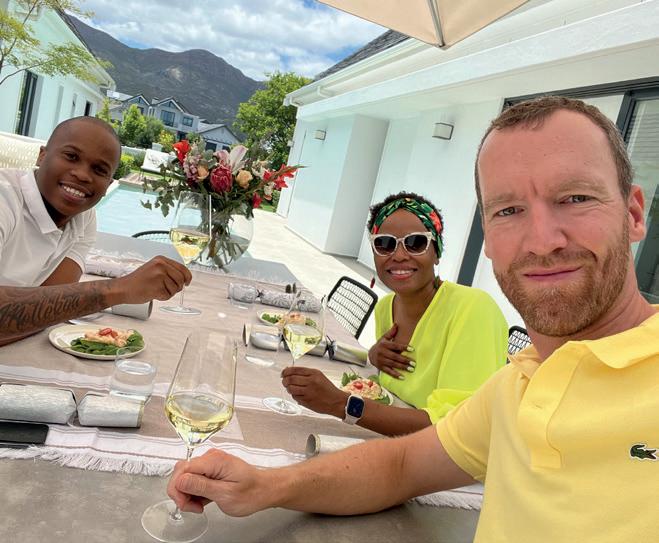
ET: "I am of course a Dutchman and have my immediate family in the Netherlands. But when I get on the plane at Schiphol Airport to go to South Africa, these days I say, I'm going home. It's incredibly beautiful here and you can live a good life here. I don't feel that I finish assignments in other parts of the world, but home is here in Paarl in the Western Cape. I am convinced it is my final destination." ♦
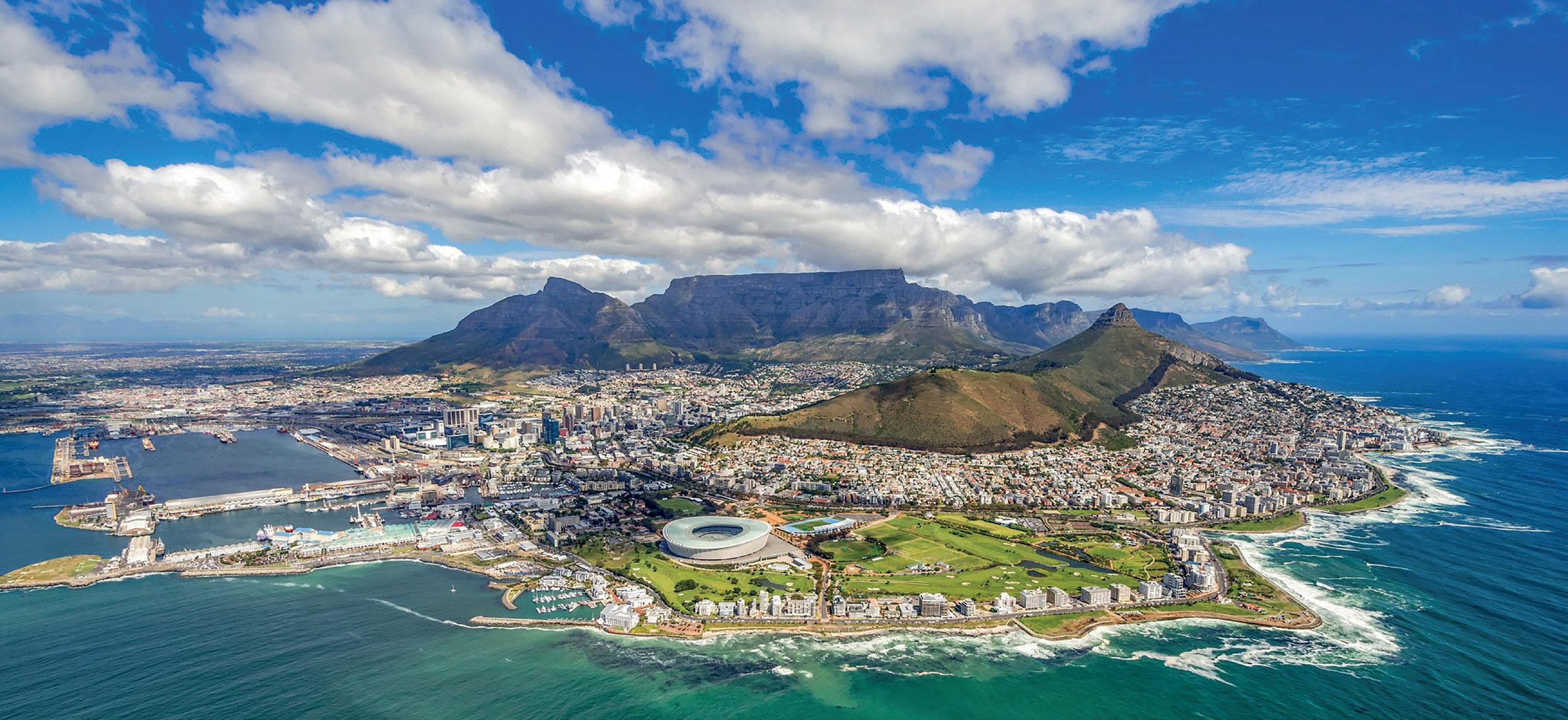
44 | VAN VERRE 295
Egon Theunissen with South African girlfriend and 'bonus son.'
SHAYNE VERVOORT:

"ANC is a big church with currents from capitalism to communism!"
The ruling ANC (African National Congress) political party gripped South Africa for some 30 years. President Mandela is still seen as the liberator of Apartheid and the ANC as the church where the turnaround began. Meanwhile, the blazon of the ANC has become tainted by a series of corruption scandals. President Jakob Zuma in particular has lined his pockets with 'state capture.'
Alumnus Shayne Vervoort (20100425) provides insight into the issues of a potential global player.
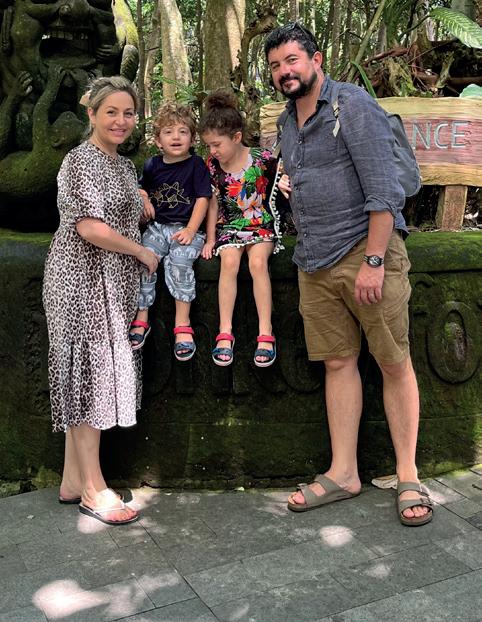 BY OELE STEENKS PHOTOS SHAYNE VERVOORT
BY OELE STEENKS PHOTOS SHAYNE VERVOORT
South African Shayne Vervoort studied at Stellenbosch University, after which he did an MSc at Nyenrode. He then went back to his homeland to become marketing manager of Hi-Tec, the sports footwear company of billionaire Frank van Wezel (19580108) who has a special connection with Africa. Shayne moved on to McKinsey in Johannesburg. There, he became acquainted at some distance with the culture of corruption that South Africa holds in its grip.
Q: What exactly was going on?
SV: "McKinsey has done many assignments for the South African government and for state-owned enterprises. The way in which the agency used subcontractors was debatable. I believe good work was done, but it was not always implemented. After working in McKinsey's South African office for a year and a half, I took assignments abroad to gain international experience. This also allowed me to avoid working for South African state-owned companies. That way, I was in the United States, Britain, the Netherlands, Ethiopia,
Nigeria, and Australia. I was employed by McKinsey for over four years. After that, I started as an entrepreneur."
Q: Under what circumstances could it have come to this?
SV: "Several leading agencies and organisations were involved in the so-called 'state capture.' It wasn't just McKinsey, consulting firm Bain & Co, KPMG and a number of Swiss and French service providers were also involved in one way or another. The point is that in a developing democracy, the private sector plays a role in facilitating state corruption. Government and private sector are then intertwined."
Q: The world looked up to Nelson Mandela. Did he also embark on corruption afterwards?
SV: "Definitely not! Mandela had incredibly high ethical standards and led South Africa through a challenging transformation. He was the only person capable of leading the country out of apartheid into a democracy. His successor, President Mbeki, provided a period of economic growth. Then the decade of Jakob Zuma arrived. A vice-president and ANC party leader, he already had a bad reputation before he was elected president in 2009. For instance, he had played large construction contracts into the hands of a rogue businessman, Schabir Shaik, who received a 15-year prison sentence for doing so. Zuma, however, remained unscathed. As president, he was deeply involved in corruption scandals. He was responsible for selling off state-owned companies to personally benefit from, for which he had a legal system in operation that allowed him to do this. In South Africa, they called it ‘state capture.’
Q: Since 2017, President Cyril Ramaphosa (ANC) has been in power; has he been able to change course?
SV: “Over the past five years, the South African government
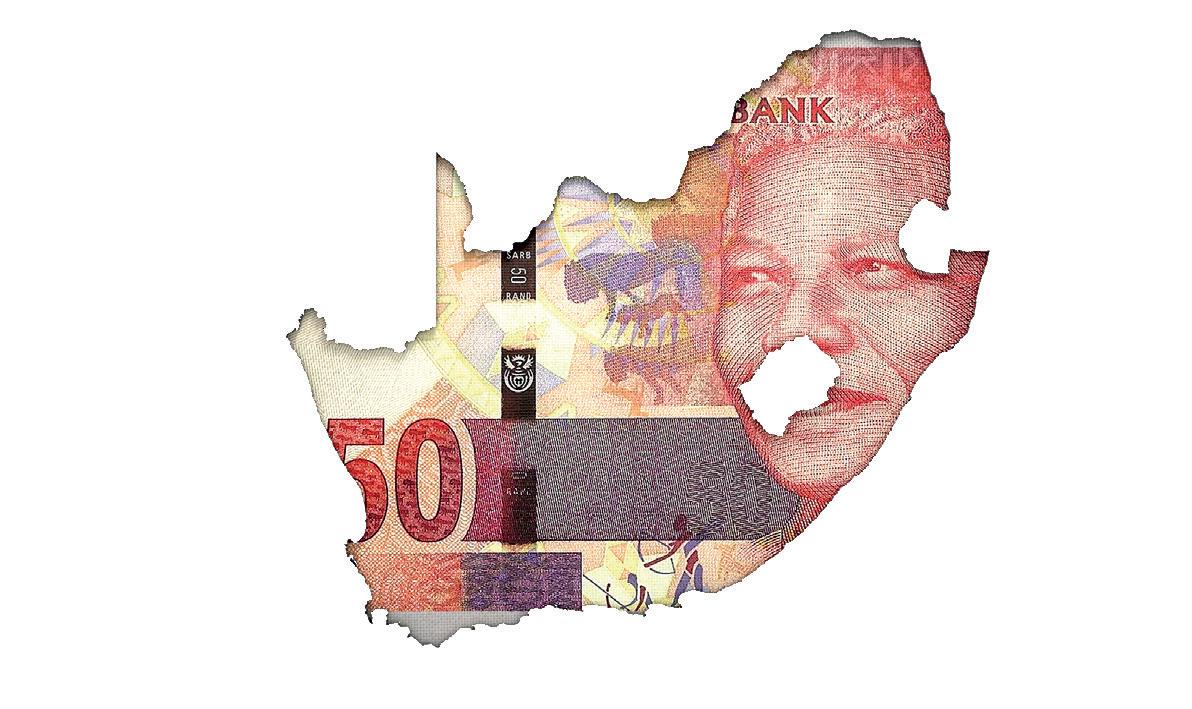
VAN VERRE 295| 45
Father and son Vervoort, teamwork!
Top job in Singapore for Mrs Vervoort
President Jakob Zuma made South
has had to cleanse itself. Ramaphosa had to start to restore the legal system in South Africa. When you have undermined the state system for 10 years, it takes time to restore the rule of law. The judiciary seems now to be purged of corrupt people. Lawsuits are pending against officials and politicians who were involved in corruption scandals. The tax authorities, which for a time were part of the corruption system, are pretty much in order at the moment. Recently, a growing number of firms have been held accountable for their involvement in 'state capture'. McKinsey voluntarily decided to pay back a billion Rand to the state as an apology for its practice during the Zuma era. A lawsuit against McKInsey did not materialise. Other private firms have been fined by the government."
Q: Meanwhile, South Africa is world news due to the problems with the state-owned electricity supply. It is well known that the ANC is strongly affiliated with the country's coal-fired power plants. Is this also a matter of corruption?
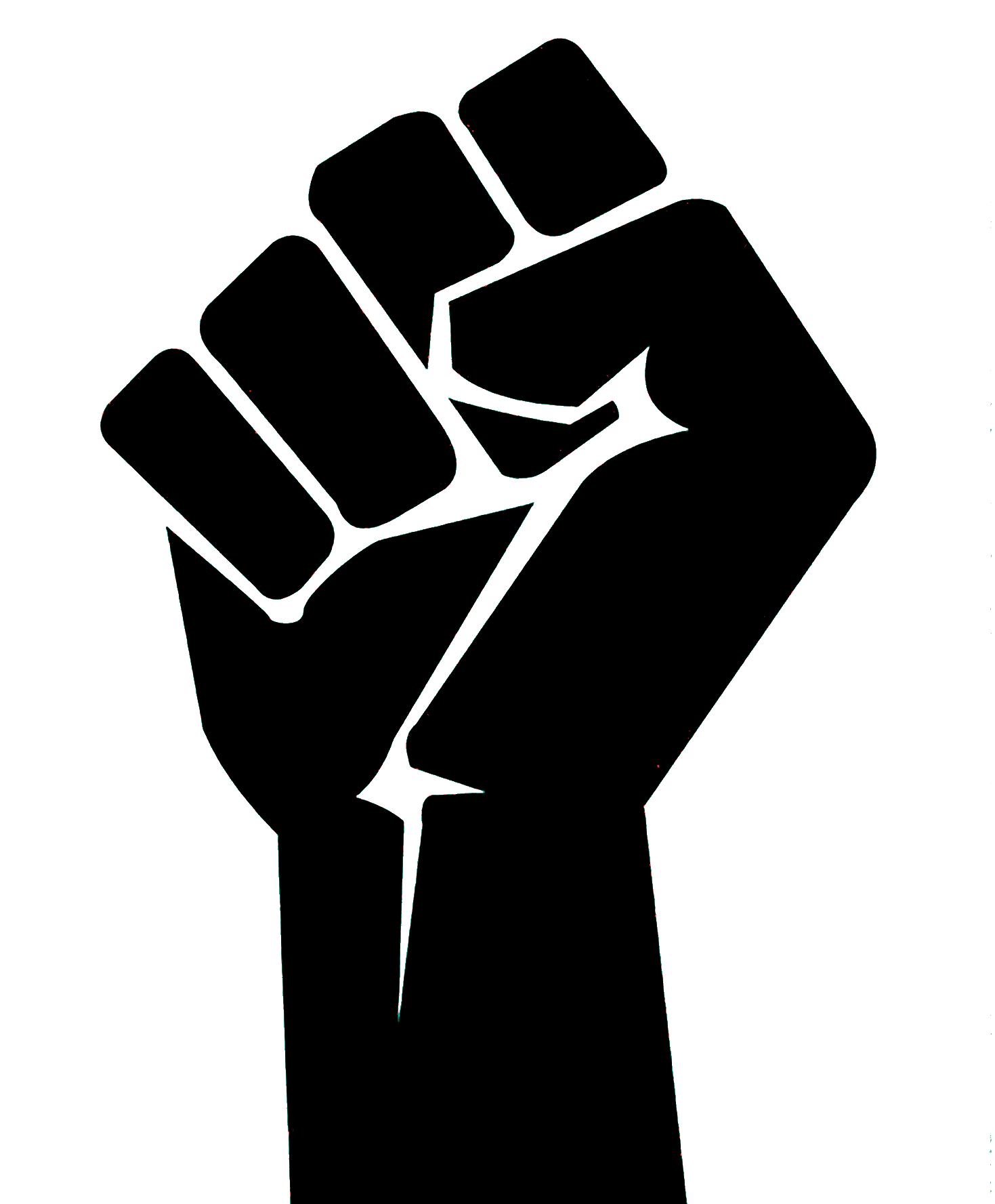
SV: "Absolutely! Nyenrode alumnus Andre de Ruyter (19970413) tried to make Eskom, the state-owned energy company, more efficient. For instance, he allegedly wanted to push for the company to be split into separate entities for generation, transmission, and distribution of electricity. This was a step too far and was perceived within the ANC as a threat to power and the potential loss of revenue for the party leadership. De Ruyter offered his resignation because he felt he did not have enough support in his reform plans. This led to internal anger. In November 2022, there was even an attempt to poison De Ruyter, probably with cyanide. I am over-convinced that the difficulties will be resolved. The moment we start combining the socialist principles of the ANC government with the efficiency of the private sector, we can achieve very good results in South Africa. For this year, President Cyril Ramaphosa has already received a much more business-like mandate from the ANC, which is a sign that the party leaders do not want to drive him back into a quagmire of corruption. In any case, the president himself is going to head the 'war room' at Eskom to ensure that the national electricity supply problem is resolved. The country is too developed not to be able to solve the issue. And the world doesn't want South Africa to succeed again, because its economic potential and geopolitical position are too important to fail here."
Q: Are there any examples of state-owned enterprises that have been a success?

SV: "National telecom provider Telkom is a huge success story. The telecom provider was founded in 1999 as an extension of the South African telephone service, with the national government as the majority shareholder (40%), and the sovereign wealth fund Public Investment Corporation as the second major shareholder. However, the remaining 35% was financed through international investment funds. Telkom is now the largest internet and telephone provider in Africa and operates in 32 countries. By the way, it is very important to attract the best top executives, such as Andre de Ruyter, for such big corporate changes and make them also support publicly. So if there is a proper transition from SOEs to semistate enterprises with a competent layer of governance drawn from multi-nationals as private partners, the South African economy could just take off, because the good news is that South Africa's underlying infrastructure is still intact, despite all the corruption scandals."
Q: Will the ANC remain as popular as ever?
SV: "There will be new elections in 2024 and for the first time there is a chance the ANC will not get a majority. It means South Africa would have a coalition government for the first time. In itself, that could create new difficulties, but on the other hand, voters could show that a government that is incompetent will be voted out. The next five years could be a period of economic growth and greater prosperity for South Africa. The mandates of state-owned and semi-state enterprises are still based on a politics of socialism. This is not necessarily wrong in a country like South Africa, where economic and social inequalities are still very high. A pact between corporate life, politics and population is needed. Precisely in areas such as energy, electricity, and the internet, however, will require good public-private ventures, co-financed by international investment funds from the US and Europe. That is the basis for wholly private companies in South Africa to run a healthy business."
Q: How tough is it to be in South Africa and become a successful entrepreneur?
SV: "The conditions for making a business a success are tough. Firstly, the problem of load-shedding prevails for the time being throughout South Africa. In addition, there are socialist rules that make business per se difficult. A company must comply with regulations on hiring minorities. The quality of education is good, but unfortunately young people are increasingly choosing to work abroad. This can cause problems in finding the right staff. Municipalities, districts
46 | VAN VERRE 295 For more information
use the QR code
South Africans suffer from corruption!
and provinces often do not provide the services they should. The government is very bureaucratic, so there is a lot of red tape. Private entrepreneurs who can beat all this are really good entrepreneurs. Once you know how to deal with South African society, you have a golden future here."
Q: Is the Rand exchange rate working against it?
SV: "The Rand has lost value due to recent social unrest, which arose from imprisonment of Jakob Zuma, which in itself was a positive development. Meanwhile, order has been restored and confidence in the currency appears to be improving. We are used to a system with three to six per cent annual inflation. Now that we are also dealing with international inflation caused by problems in the logistics chains, we are tapping around 7%. By the way, our Federal Reserve Bank is very good and always manages to keep inflation stable. Mortgage rates and consumer loan rates are high in this country. In conclusion, we are used to a higher inflation rate. Contrast this with the near absence of inflation like Europeans until the Ukraine war knew. My wife, from Britain, bought a flat in England at a 10-year fixed rate before the Ukraine crisis. There is simply no such thing in South Africa."
Question: Should farmers be concerned about possible expropriation?
SV: "The agricultural sector is important in South Africa as the country is self-sufficient in its food demand. In 2013, however, a new communist party called Economic Freedom Fighters emerged, seeking to follow the example of Cuba, Venezuela or Zimbabwe. It was clear that EFF was out to expropriate farmers without the necessary compensation. Fortunately, their influence has stabilised and gets about 8 per cent of the vote in national elections. Within the ANC, there are currents which range from capitalism to communism. It is a large church with different denominations. At one point, a movement to redistribute farmland arose there too. Yet the current national view is that under no circumstances should we go after the example of Zimbabwe. That is seen across a broad front as an absolute disaster. Meanwhile, the government has been working on better land rights legislation."
Question: What role does the emerging middle class have in South Africa?
SV: "I foresee the middle class growing rapidly; more and more citizens have good jobs, own cars, live in new-build houses and send their children to good schools. Those people just want to live a pleasant life. Those are really not going to take stupid actions. For now, the ANC will remain the largest party, because they are the liberators in the population's perception. In urban areas, however, people are starting to vote for opposition parties or they don't vote, which is basically a disguised protest against ANC. The party lost in four metropolitan areas (Johannesburg, Cape Town, Pretoria, and Durban) significantly in the last elections."
Q: Meanwhile, you moved to Singapore, can you explain?
SV: "My wife works for South African insurance company Discovery. It is a fine company that is in the process of rolling out its business model internationally. Discovery has entered into a joint venture in this regard with AIA to develop a new health tech venture called Amplify Heathcare, which is based in Singapore. My wife was able to secure a top position there. I was eager to support her in her career and decided to go with her and the two children. From Singapore I now direct Co.mpanion Vet Practices, an investment and management partner for veterinarians. Once every six weeks, I fly to Johannesburg to personally manage this business."
Q: What makes Co.mpanion special?
SV: "We believe in the power of a local and independent vet in South Africa. We offer a partnership model, where Co.mpanion takes care of the business/administration part and the vet can focus entirely on the medical aspect. You have to think of it as a partnership; we provide investment and financial participation, which means that starting vets have less financial stress and older vets can phase out their practice step by step. On top of that, the majority of entering vets are women, who also work for caring for the children. These professionals want to share in the economic benefits of owning a practice, but cannot commit to the number of hours that previous generations of vets ran.
Co.mpanion also provides investment in modern equipment, property acquisition and proper administration. Currently, 14 veterinary practices are affiliated. Recently, Co.mpanion also launched in the Netherlands. The model has huge potential in Australia, England, and Canada, as many South African vets have gone there. If it works in South Africa, then it can work anywhere!" ♦
VAN VERRE 295| 47
"IT IS THE WOMEN WHO
LIES OUDEMANS WAS AN INTERN IN THE DEMOCRATIC REPUBLIC OF CONGO
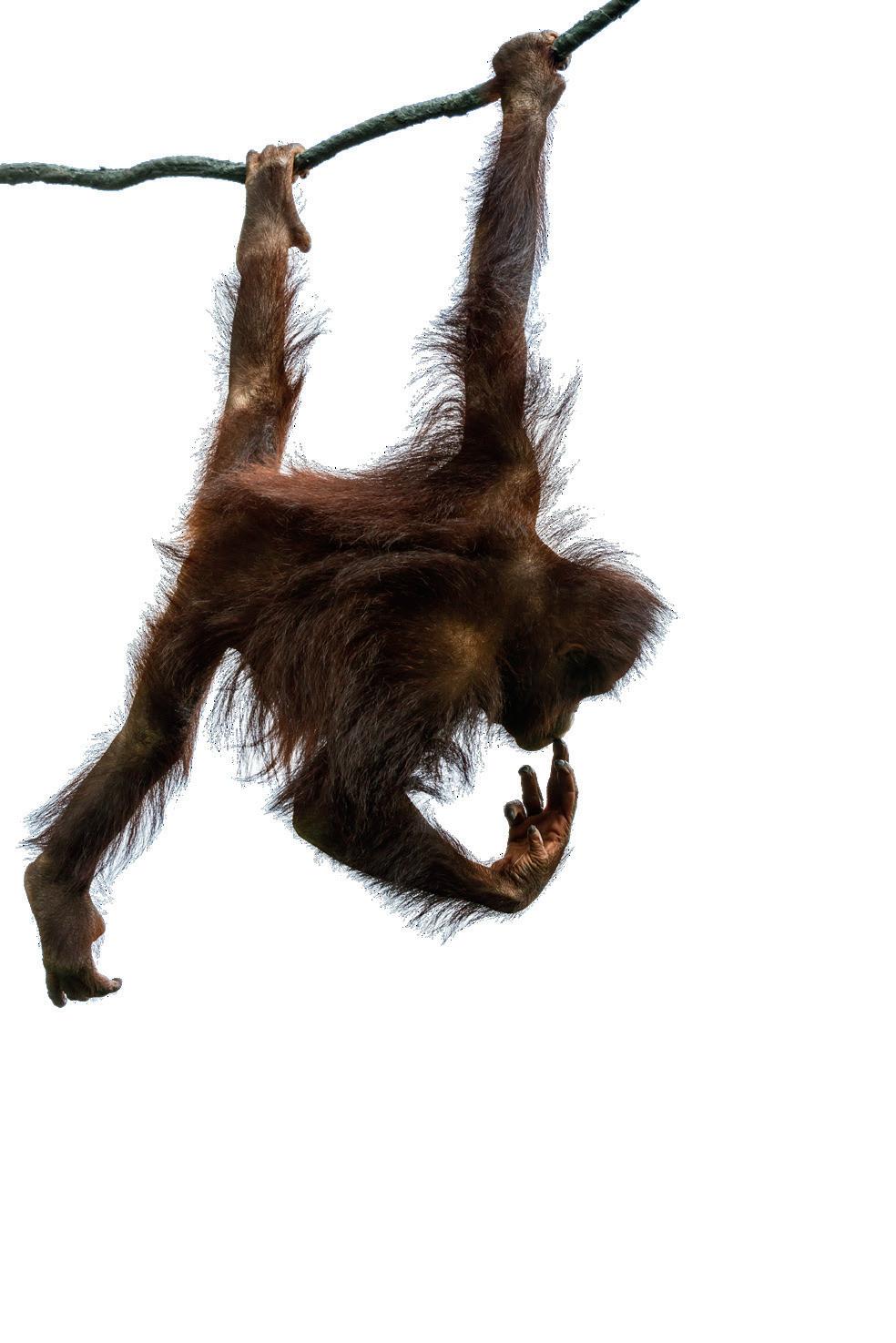
Lies Oudemans (20140063) now works in the Netherlands for Van Eck, an asset manager that builds investment products that are tradable on the stock exchange. She began her career in 2016 as an intern at Heineken in Kinshasa, capital of the Democratic Republic of Congo. In this immense country of 100 million people, she was introduced to the real Africa. It was not boring, as she was involved in the local Heineken promotion of a James Bond film and she organised a football tournament to introduce Primus, the biggest Congolese beer brand. Meanwhile, she was picked up by a company Jeep and taken back home to a highsecurity house for interns. And oh yes, she was not allowed to see the mountain gorillas!
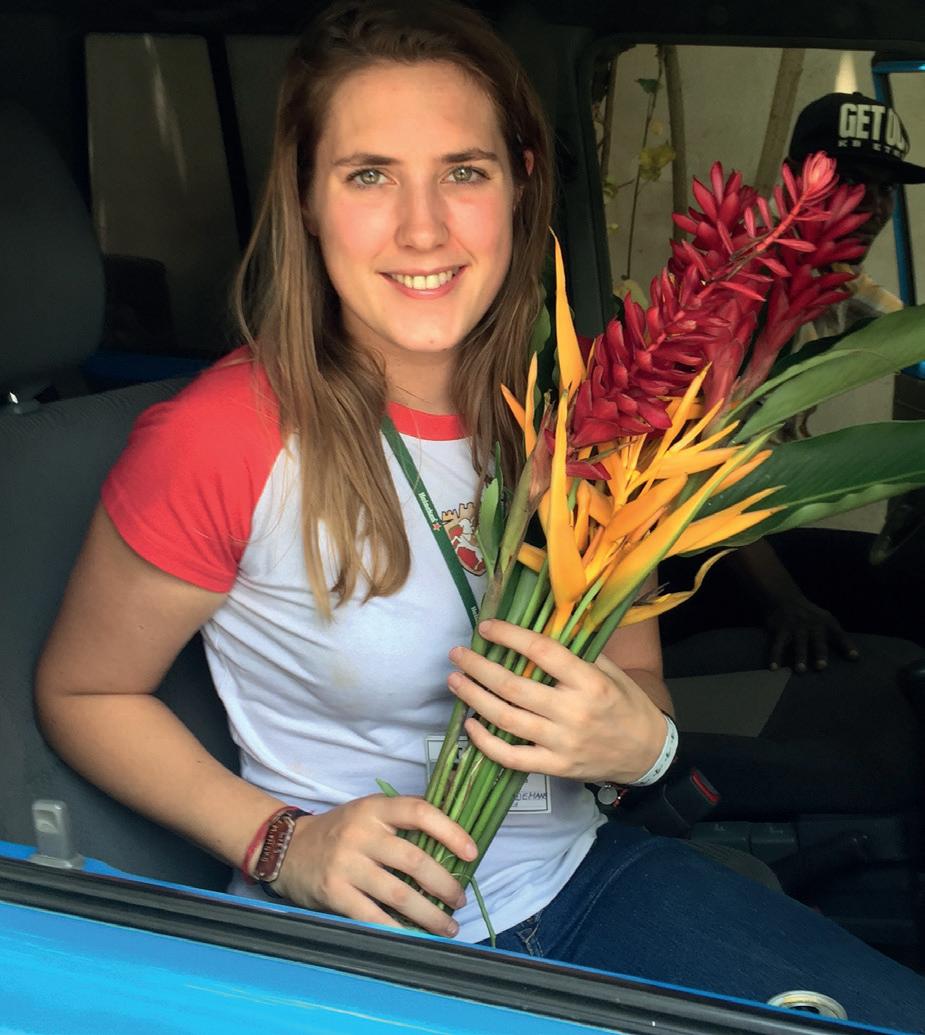 BY OELE STEENKS PHOTOS LIES OUDEMANS
BY OELE STEENKS PHOTOS LIES OUDEMANS
Q: How did you get that internship?
LO: "I had done a finance track at Nyenrode, but I really liked the combination of marketing and Africa. One of Heineken's conditions was that you had to be fluent in French. The job interview was also partly in French. I had lived in Paris for six months, so that was the basis of my command of French. I was given a six-month assignment from Heineken International's marketing department. I had to work under other consumer research in Congo."
Q: How did Heineken function in this former Belgian republic?
LO: "Heineken has six breweries standing in Congo, which fall under the banner of local brewery Bralima, which stands for Brasseries Limonaderies et Malterie Africaines. It was an existing organisation that was taken over by Heineken in 1986. Local beers are still brewed, while the real Heineken beer is imported. This is in Congo, the premium brand that has a considerably higher price as the same beer in the Netherlands."
Q: What does the beer market look like in Congo?
LO: "In Kinshasa, there were some big catering tents who were supplied directly. Those also got a branding package with it, with chairs, tables and that kind of thing.
The main bulk, however, was put away with gigantic trucks on which crates of beer and lemonades were stacked. Those trucks have a set route through the centre of Kinshasa towards the outskirts of the city. They stop at roadside stalls, mainly run by women. These then buy one or two crates, which they sell along with meals they have cooked. It was fascinating to see that mostly women provide income for families. They also just paid cash to the truck driver, either in Congolese francs or US dollars. (Currently the exchange rate is 200 CF against roughly a US dollar, editors). In any case they’re paid with big piles of paper money."
Q: What impression did Kinshasa make on you?
LO: "I had read the book "Congo, a history" by David van Reybrouck as preparation. Many of the facts of the colonial past have now sunk in with the locals, I got the impression. Not much can be seen in the streets anymore. What I do think clearly comes through is the Democratic Republic of Congo's declaration of independence in 1960 and dictator and president Mobutu's seizure of power in 1964. Belgian politicians had wanted to settle the handover of the country in a diplomatic manner, but the Congolese had no patience. A freedom struggle broke out from there, which I don't think has ever quite come to a halt. I was in the exact period when President Joseph Kabila's term was due to expire. Elections were scheduled for the end of 2016, but already
48 | VAN VERRE 295
WHO PROVIDE STABLE INCOME!"
from the beginning of that year tensions began to rise. At one point, a protest strike had been organised against Kabila. However, the interns were simply picked up by Jeep and taken to the office. On the way, we were frightened by Congolese who gave a sign that we were going to be given a heads-up. Then I was reminded of Van Reybrouck's book, which tells us that the Belgians who had stayed behind in Kinshasa in 1960 were killed without mercy. At such a moment, you realise that Congo's independence had not taken place so long ago. As a white person, you stand out on the streets and if there are disturbances, you are soon an easy target. Such a situation is usually not about political persuasion; there are many young people living in the city who are looking for riots. We stayed with eight trainees in the guest house of Bralima. There we were trained how to respond to riots and threats. A safe room had been set up in the villa, in case there was a robbery and we had to hide ourselves. We were also trained in a possible escape across the Congo River, to Brazzaville, which is the capital of Congo-Brazzaville is and has a French colonial past."
Q: Wasn't life very oppressive in that Bralima house?
LO: "We were not in a compound like most expats in Congo. Our house was in a suburb a five minute drive from the brewery. It was not really a villa, but it was a fine house in itself with a swimming pool attached. But it did have a substantial wall around it and two guards permanently present. On the wall were the familiar rolls of barbed wire, because on the other side there was talk of the beginnings of a ghetto neighbourhood. So we were not allowed to walk the streets alone, especially as women. On some days, however, we were allowed to walk in a group to the brewery. However, I never really felt unsafe. Indeed, I mostly have very fond memories of my time there. The Congolese may live by the day, but they have a warm and welcoming culture. Everyone takes care of each other and with Congolese colleagues we were also always welcome to sit down for Pondu or Fufu, the local dishes."
Q: You spoke of internal strife in Congo, what did you get out of that?

LO: "We were kept informed when rebels were in unsafe villages in the interior. I wanted to travel to eastern Congo to see the mountain gorillas, but that was not allowed. It was forbidden to travel there under contract to Heineken. Incidentally, we had a local beer that was popular among the rebels. On posters we had used silhouettes of rebel fighters with guns. This caused quite a stir in the Dutch press at the time, as it was unthinkable that Heinkelen was indirectly supporting the rebels. However, you have to remember that the marketers who capitalised on the local situation were also Congolese.”
Q: Kinshasa is a metropolis of 17 million people; what is foreign business like in that metropolis?
LO: “I hardly saw any American or European businessmen
in Kinshasa. I don’t know exactly how the situation is now, but in 2016 you met mainly Asian businessmen, including people from Russia. In addition, Kinshasa has hardly any Western-oriented cultural life. Museums, theatres, and chic brands like Chanel and Dior, you just don't come across there."
Q: Africa has a reputation for being heavily corrupt; what have you noticed about that?
LO: "I have read the book Heineken in Africa by Olivier van Beemen. It describes Heineken's practices in all African countries where the brewery operates. There, the word corruption appears in many chapters. I myself have had no direct experience of people trying to bribe me, but I was aware that it could happen. Most Congolese do not have bank accounts and trade is done with cash. Then corruption is always around the corner. Furthermore, a lot is paid with call minutes from telecom providers, which is hardly verifiable."
Q: How does a country that has so many unverifiable cash transactions work?
LO: "As an exchange traded funds (ETFs) investor, I am concerned with the long term; you look for companies and markets that will have become much more valuable in 20 to 30 years' time. This is only possible with monetary certainty; the currencies in which contracts are concluded and business is conducted will still be there with a high degree of certainty by then. Monetary stability is one of the core prerequisites for economic growth. President Mobuto renamed Congo Zaire and plundered the country. When the regime changed and Zaire became the Democratic Republic of Congo again, a 'currency-change' took place. Congolese were given one day to exchange their money for new Congolese francs. They had to do so at bureaux de change. There was then a terrible run of everyone wanting to secure their money. People were also really only given a day. A high percentage of the population arrived late and lost all their accumulated savings in the process. The Congolese have not really been able to overcome that trauma, I have experienced here and there.
VAN VERRE 295| 49
Lies Oudemans and Heineken interns entertain local youth in Kinshasa.
Bad luck in Congo: "Skyfall with Chinese subtitles"
This has created a kind of carpe diem culture. If a Congolese has earned five dollars one day, it is quite normal for the amount to be spent that same evening on food and drink. Hardly any savings are made, there is no pension accrual and people work until they die. The safe feeling of ‘we are all going to build a secure future’ does not exist in the Democratic Republic of Congo, because that future could be taken away from you tomorrow. Incidentally, it is the women of Congo that provide a steady income, while the men spend the daily wage mostly at the pub."
Q: What special things did you experience as an intern?
LO: "I was there during the period when there was a collaboration with the James Bond film Skyfall, with Daniel Craig in the lead role. Worldwide, local Heineken offices were able to promote with the film premiere. It remained quiet for some time, then I just asked at the office how we were going to do that in Kinshasa. Then it turned out that no cinema could be found in the city. So we hired a large hall with a big screen and a projector. Then I asked where is the film, which it turned out a Congolese employee came up with a pirated film with Chinese subtitles, which he put on a USB stick. Then I went to my manager's manager and said, guys this is not going well at all. Then the premiere was two days cancelled in advance and only a few weeks later, the spectacle took place. That is the Congolese way of doing things, you have to be resilient and resilient to really do business in the long term in DRC. I think the best part of my six-month internship was the marketing campaign around the biggest Congolese beer brand called Primus. Before that was Kinshasa's football stadium, Le Stade des Martyrs, hired by Bralima (Heineken) and the city's three biggest professional clubs played for the Primus Cup. You have to remember that even something like this is mostly wood, string. At one point, the power was out and you could not comment on the match. Even the music did not work at an important moment. This is then dismissed by Congolese colleagues as superstition, it is the fault of higher powers or the competitor that there are problems."
Q: Congo is one of the most Catholic countries in the world though, right?
LO: "The Roman Catholic Church does indeed play an important role. I once went along to a church service on Sunday morning. From a distance, I got the impression, that it was mostly about the idea of community, to have a break with each other in a room with good air conditioning. I saw the service more as a weekly ritual, rather than being about a strict religious community. I also once attended the funeral of the father of a Congolese colleague. As many as 800 people attended that. It was really huge. Nobody is really rich there, but at a time like this everyone shows up and there is food for everyone. I was the only white woman present. At such a moment, you attract attention even though you wouldn't really want to. It was exactly like what you see in films about American faith communities of dark-skinned people; lots of singing and dancing!"
Q: How was cooperation with Congolese colleagues?
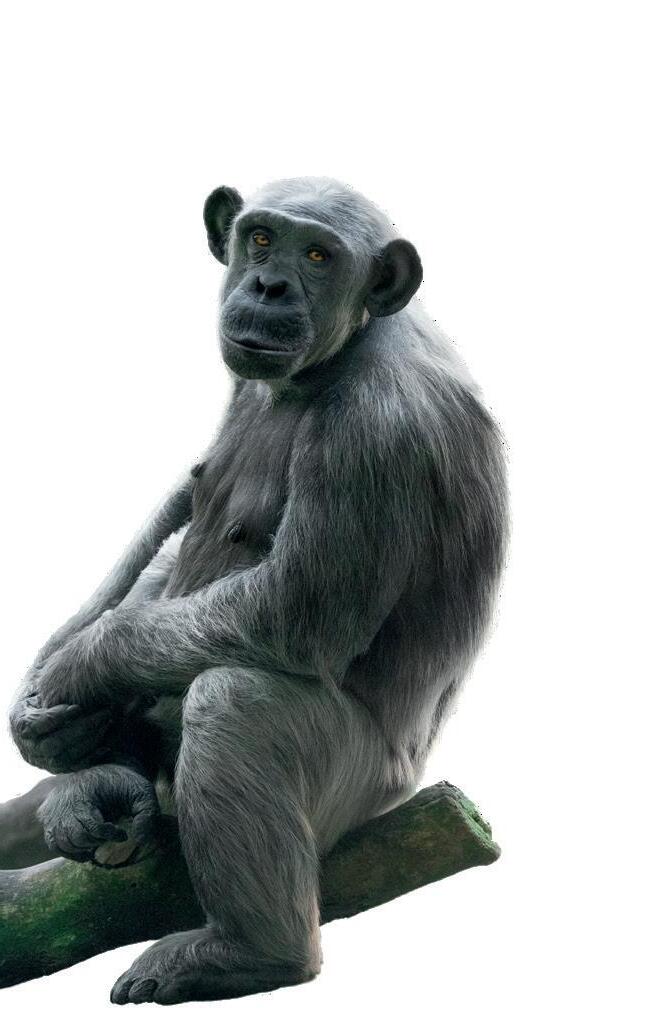
LO: "I was really young, ambitious, and pushy. Like 'I'm doing a six-month internship and want to get my goals done.' Whereas the Congolese colleagues were like, what do you care; we are here for another 30 years so take it easy. It is difficult to have real friendly ties with Congolese colleagues. At first, it seems that you form a bond, but they always evntually ask for money or certain favours. There is always a brother or sister who is seriously ill or a grandfather dying and there is no money for a funeral."
Q: Were you done with the beer business after that?
LO: "I did apply to Heineken but unfortunately was not selected for the traineeship. I have since decided to change tack and joined ABN AMRO. I did that for five years. My offices included Amsterdam and The Hague. And now at Van Eck as Product Owner Where we are building something really cool...!" ♦

50 | VAN VERRE 295
Have fun despite security.
BEQUEATHING TO YOUR ALMA MATER
Legacies have long since ceased to be the preserve of family and traditional charities. More and more people are leaving part of their assets to universities after life, contributing to the future. This is how you provide opportunities for a new generation. At Nyenrode, too, we are increasingly asked whether it is possible to donate through a will.
We are not yet as far as in the United States, where it is very common to include an educational institution in your will, but it is happening more and more. After all, education is the greatest gift you can leave to future generations.
OBJECTIVES
Donors sometimes choose to support an objective with which they feel connected. These are often in line with renovating monuments on the estate, promoting research or enabling scholarships.
Studying at Nyenrode is not for everyone. Since the banking crisis in 2007, loans are really not easy to come by, so many potential students cannot afford to study at Nyenrode. The Nyenrode Fund Foundation offers scholarships for these talented students. Scholarships that are mostly made available by alumni, during their lifetime and after their death.
As a private university, Nyenrode is not eligible for any subsidy from the state when it comes to conducting research. Therefore, it is of great importance that donations come in for that purpose as well. This enables us to fund PhD students and chairs, further strengthening Nyenrode's academic foundation and thus realising social impact. To tackle the social challenges we face in the Netherlands, research is essential.
Heritage is the third pillar at stake in fundraising from the Nyenrode Fund Foundation. The estate with its twenty-seven monuments requires constant maintenance and renovation. We all cherish our memories of the Castle, the Coach House and the Rose Garden. Memories that we are able to maintain, partly through donations from our alumni.
Any contribution, big or small, is very welcome.
TAX-FREE
The Nyenrode Fund Foundation is recognised by the tax authorities as an Institution for General Benefit (ANBI). This means that no inheritance tax or gift tax has to be paid on inheritances and gifts received by the Nyenrode Fund Foundation. These are therefore entirely allocated to the work of the Nyenrode Fund Foundation.
Want to know more about bequeathing to Nyenrode Fund Foundation?

Request the brochure from Heleen van Hall
(20070509)
on 0346 291 432 or H.vHall@nyenrode.nl
or download the brochure at www.nyenrode.nl/stichting-nyenrode-fonds/nalaten

ADVERTISEMENT VAN VERRE 295| 51
After 15 years working in international business, in commercial positions and as a director, Linda Hummel (19820163) decided to devote herself to socially relevant work. She took the funding of Amref Flying Doctors to the next level. As CEO of Until No Leprosy Remains, she found her ideal place, partly because she wanted to give something back to her brother with a disability. Her goal is to eliminate leprosy from the world.
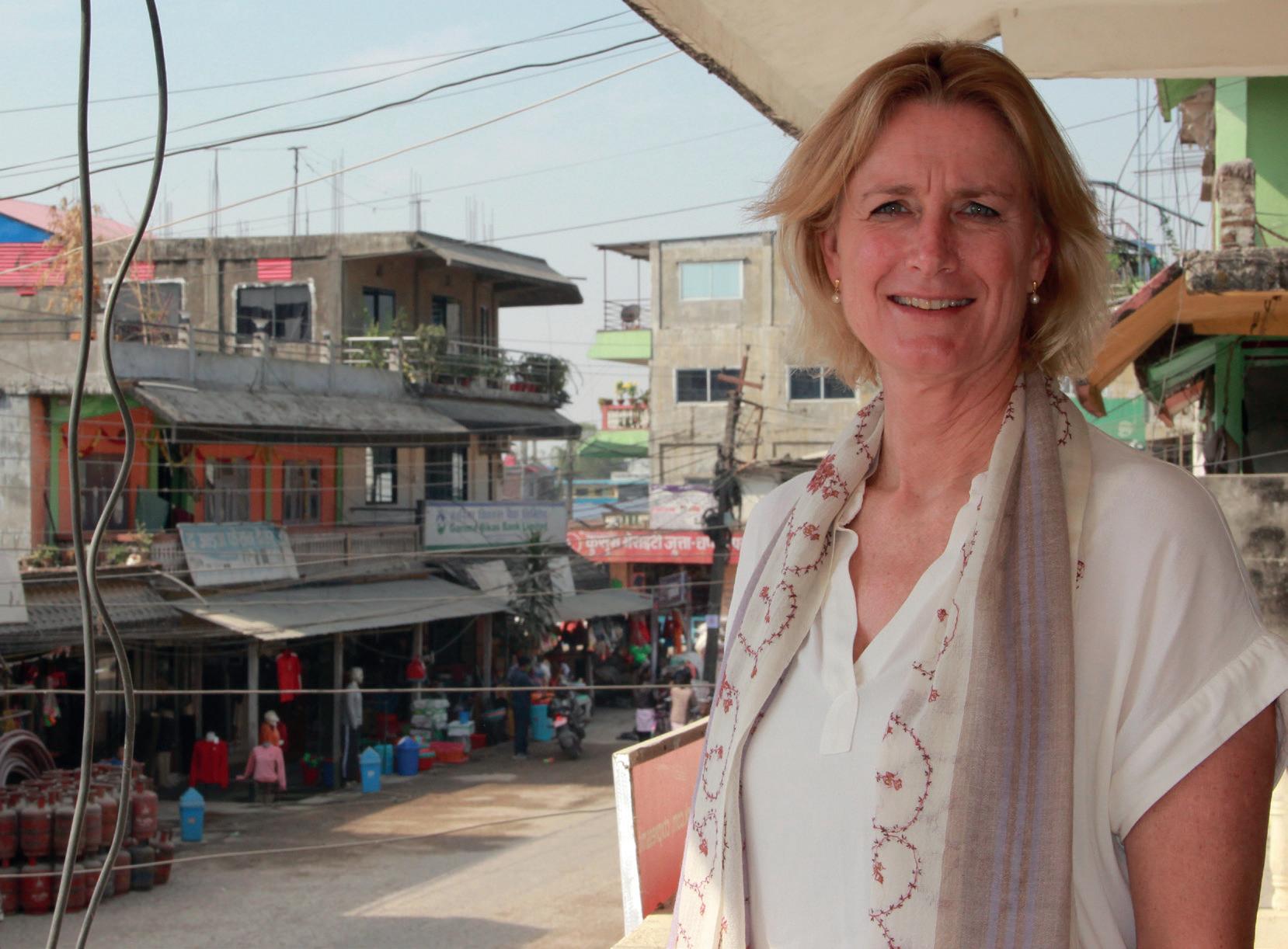 BY OELE STEENKS PHOTOS DOOR LINDA HUMMEL
BY OELE STEENKS PHOTOS DOOR LINDA HUMMEL
Q:What is your background?
LH: "I spent a year at Nyenrode and so I am not a full alumnus. I had a super fun time, but indulged a little too much in sociability. I then went on to study European
studies in Amsterdam. My father Ben (19540031) had done the two-year NOIB course and then immediately left for South Africa, where he went to work for the Netherlands Bank for South Africa (NEDBANK). My mother followed him by ship a year later. My younger brother and I were born in South Africa. He was found to have a mental disability, which prompted the family to move back to the Netherlands. At the time, there was no proper care for people with disabilities in South Africa. He now works at a care farm in Baarn, where he ended up in a good place. I think his story has been a motivation for me to work for people with poor health in countries where there is no adequate medical help available."
Q: Did that personal experience lead you directly to the social sector?
LINDA HUMMEL
TOP WOMAN:
"I still see people, even children, with leprosy. While that is unnecessary now!"
LINDA HUMMEL CEO UNTIL NO LEPROSY REMAINS / DIRECTOR LEPROSY FOUNDATION:
52 | VAN VERRE 295
On a working visit to Nepal.
LH: "I first worked in business for 15 years with tremendous pleasure. I started in marketing at TIME Magazine and my first role as director was at International Masters Publishers, a Swedish publisher that I set up in the Netherlands. Then I worked for AOL/ CompuServe as director of marketing and communications and at Veronica Magazine I was commercial director readers' market. I then consciously sought a position in the social sector. I was keen to use my further energy and working hours for a cause that can bring about positive change in the world. That's how Amref Flying Doctors came my way. The first click I had with AMREF was Africa, I still had a good feeling about that. I wanted to do something for people who needed support and the direct contact with people in different continents was important to me."
Q: The work for AMREF continued to have a commercial interpretation, or is that incorrect?
LH: “I was initially primarily responsible for fundraising and partnerships. Financial sustainability is now also important for social progress. My experience as CEO of an international publishing company coincided perfectly with the business support of a development organisation like AMREF. I did make sure I was constantly in touch with the grassroots, The work ‘in the field.' I have travelled a lot for AMREF: visited health projects and had meetings. It is very important to experience how things really go in African countries and which people do the fieldwork. You have to have the right picture of changes actually taking place from the grassroots of the organisation."
Q: Why was the Leprosy Foundation the right match?
LH: "I was made aware of the vacancy of director at the Leprosy Foundation. There, health, development cooperation and leadership came together, which I consider an ideal match. Leprosy is a disease that can be brought to an end. There is a concrete objective that is present and that appealed to me a lot. All the ingredients are available to ensure that there are no new leprosy patients by 2040. A derived personal objective is emancipation. Young women who work for us on location find it incredibly nice to have a woman leading the organisation. In that role, it is nice to have people to encourage
and contribute to personal growth. Incidentally, I have had the opportunity to participate for the past two years as a CEO from the not-for-profit sector, to Nyenrode's New Board Programme. There, I benefited a lot, especially at Leprosy Foundation's organisational change."

Q: The Leprosy Foundation is an organisation with clear roots in Dutch society. In the present day, do you experience this as an advantage or a challenge?
LH: "The Dutch Leprosy Foundation was founded in 1967 after Ciska AntenMengelers started an aid campaign to finance a hospital in Tanzania for leprosy patients, where her son Hans was a tropical doctor. The action raised an enormous amount of 200,000 guilders for those days. That was the start of the foundation, which was further supported by Dr Dick Leicker, leprosy expert at the Tropical Institute. The Leprosy Foundation is indeed well rooted in Dutch society with many donors, but we are in the midst of transitioning to a different organisational form. From a legal entity with a head office in Amsterdam and five country offices in India, Nepal, Brazil, Indonesia and Mozambique, we find it more appropriate at this time to have an independent local foundation with a local board in the respective countries. We are working towards an alliance of foundations in the six countries, including the Dutch one, under the name until No Leprosy Remains (NLR) This process of internationalisation was an important reason for me to aspire to this job. I find it very progressive of a development organisation to want to organise your own future like this. India and Brazil are the biggest countries in terms of leprosy spread, followed by Indonesia. So it is important that we are well embedded in society especially in these three countries.
Of course, this also applies to Nepal, which needs to be supported because of the high level of poverty there, and to Mozambique in East Africa, which is where my experience with AMREF as an African organisation headquartered in Nairobi comes in handy.”
Q: What cooperation is there with the World Health Organisation (WHO)?
LH: “WHO has defined leprosy as one of international diseases that can be brought to an end. To this end,
WHO has issued a strategy, collaborating with NLR and with leprosy foundations in other countries.Other countries such as Germany, Belgium, and the United States. WHO's direction is important to ensure that the governments of affected countries where leprosy (still) is, to motivate to the right action. We all need to get working in the right direction."
Q: There are 200,000 new cases a year of leprosy in the world. Isn't it a drop in a glowing plate?
LH: "Leprosy is an infectious disease that we have fought very effectively in recent decades. On the total world map, we see a nice downward trend. However, leprosy has a long incubation period, so in the foci that remain, leprosy can continue to simmer for a long time. In India and Brazil the disease occurs in the most remote areas; in doing so, there is a huge gap between rich and poor, leaving the most vulnerable people who are ill-informed and who are at a great distance from the local health care system.
In general, you can say, if the national public health advances greatly, leprosy will disappear by itself because the immune system of healthy people will stop getting sick by leprosy bacteria. Furthermore, there is a direct correlation between wealth and health. If we Westerners go to leprosy areas, we will not contract the disease because our resistance level is too high."
Q: Now socialist Lula da Silva has been elected president of Brazil, Is that going to make any difference to leprosy control?
LH: Absolutely! Our people immediately set to work asking the Ministry of Health for additional attention to leprosy. We can provide preventive medication, in
VAN VERRE 295| 53
Consultations in Chandauli, India.
the form of an antibiotic pill, then that spread of leprosy is greatly reduced. The risk of infection is reduced by 60 per cent. We are conducting a study in which a series of three pills probably reduces the risk of infection by as much as ninety per cent. And if infected, an antibiotic will prevent mutilations of feet, hands, and face, provided timely intervention is taken. In leprosy control, fortunately, pioneering medical developments are still taking place. But in the northern Brazilian regions where the problem is, there was little interest in it under President Bolsonaro."
Q: The Postcode Lottery plays a big role in funding. How do you experience working with a club that has such Nyenrode DNA?
LH: "They give large sums of money without earmarking those, which is rare and valuable. The Postcode Lottery trusts us as an organisation and says, you guys know how to fight leprosy. It is an inspiring party that encourages thinking outside the boundaries of the traditional framework: dare to propose something that also involves risks. That is very special, because funding providers are generally reluctant to do something like that. We received 10 million euros five years ago for research into better preventive antibiotic treatment, for which research is now under way in four countries. Due to corona, the project has been delayed, but we are encouraged by the Postcode Lottery to push ahead."
Q: Leprosy is reflected in the Dutch language with terms like klaploper, verklikker and klikspaan: Is an important part of your work
fighting the idea that Leprosy is a thing of the past?

LH: "Leprosy is indeed an ancient disease, with leprosy patients in the Middle Ages being segregated, having to rattle wooden clappers to warn passers-by. Every day I meet people who are amazed that leprosy still exists. The great thing is that at NLR, we know that the disease will be under control in 20 years and that there will be no new infections. However, the stigma is persistent in countries where leprosy is still prevalent, where there is still too little knowledge about the disease among the population. Fortunately, these days we can use social media. For example, a campaign has been launched in Indonesia to inform people that leprosy is a curable disease. It further tells what people who come into contact with leprosy should and should not do. It is recognisable, preventable, and curable.
Meanwhile, WHO is working to introduce an international app to detect tropical diseases and related advice for patients on how to act. On that app, leprosy will have a prominent place. The Leprosy Foundation has been working on the first version of the app! It is great to see modern communication tools being used to bring an age-old disease to a halt. We see that there are fewer and fewer children with leprosy, so we know that the pockets of infection are shrinking. Photos of children with hard spots or bumps on their face, we fortunately see less and less. But each patient remains distressing, especially when you consider that it is so unnecessary."
LINDA
TOP WOMAN:
HUMMEL
◆
54 | VAN VERRE 295
Updates in Nepal.
COLUMN
KAPÉ BREUKELAAR (19860015)
BBA Nyenrode, is a partner of investment firm Amlon Capital. He previously wrote for eighteen years for The Telegraph and was a regular contributor From the television programme Kassa.
TUITION FEES
Even while studying at Nyenrode, I started investing. My parents had built up a small investment account for each of their children in the then-popular Amro All In Fund. That was a somewhat dull mix fund with shares, bonds and real estate. At eighteen, I got access to that myself and my interest in investing was born. Making money without working was an appealing prospect to me. For that, I first had to learn the trade.
So after Nyenrode, I started as a trainee at the then Bank Mees & Hope. At the time, that was a chic securities bank on the Herengracht in Amsterdam. So posh that nowadays the Waldorf Astoria hotel is located at my former workplace. After my year of training, I got to work as an investment advisor. One of the courses I had successfully completed was for options trading. I knew all about straddles, strangles and the impact of volatility, dividends and interest rates on option pricing. I not only advised my clients on options but also started trading options with my own money. And not without success, soon I had earned a nice holiday. Thingscrescendoed after that too, on paper I was making thousands of guilders in profit. The party was brutally disrupted when things really went wrong in the stock market. All my profits disappeared like snow in the sun. On balance, even a small loss remained.
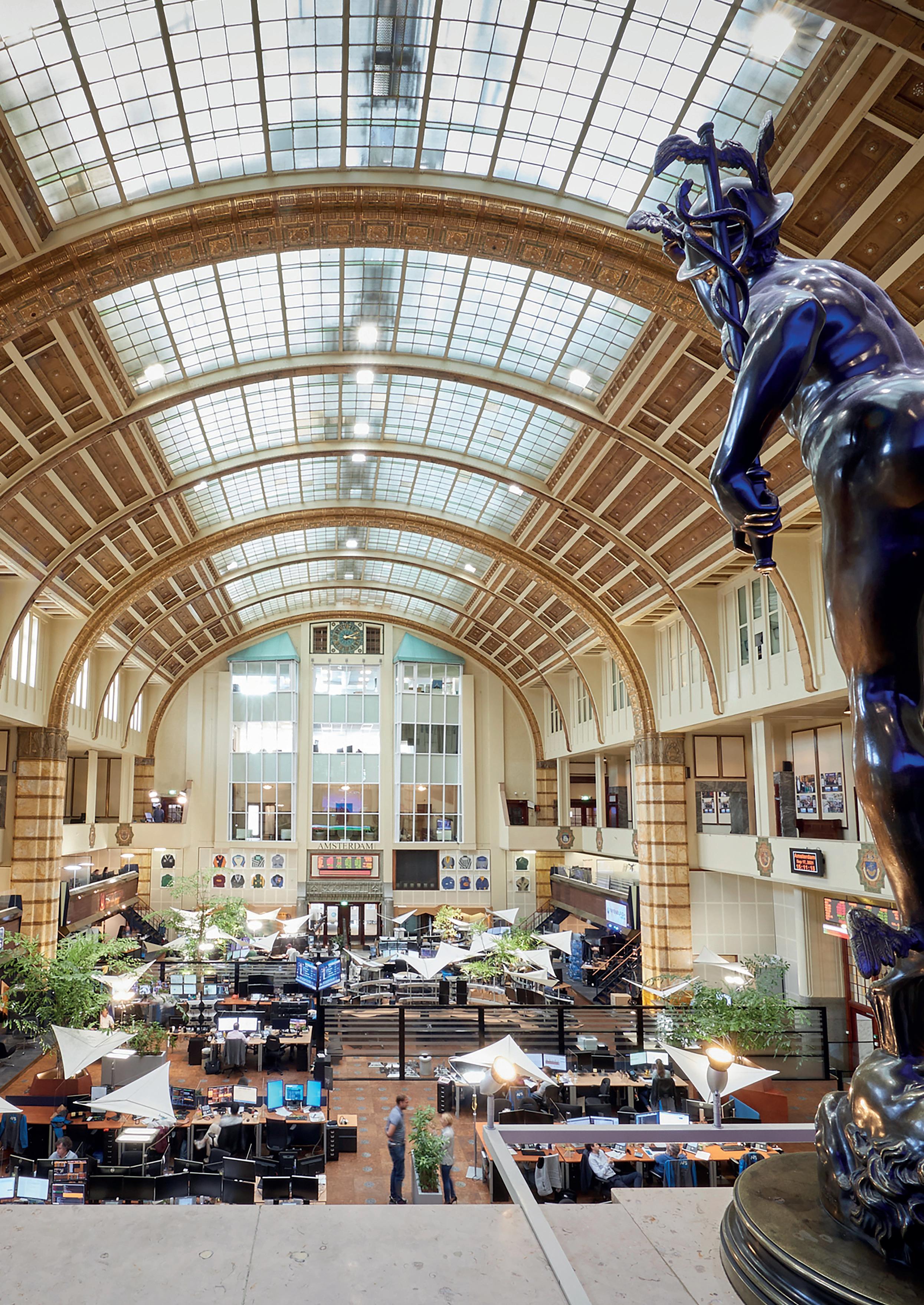
That was my first learning curve in investment land. I had experienced for myself that speculating is really something different from investing. After the speculator in me calmed down, the investor in me stood up. I chose a few well-diversified equity funds with a nice track record. The OBAM fund had built a great track record of several decades. It was my employer's flagship fund. The fund also did fine in the 1990s but was overtaken in all rankings by a newcomer, the Ohra equity fund. Therefore, I divided my money between the two funds. That seemed a good choice, 'my' two funds beat the competition by clear numbers. Unfortunately, transparency among mutual funds then was not like today. When the internet bubble burst, both OBAM and the Ohra equity fund went down like a brick. They had invested a large proportion of assets in the information technology and internet sectors. That yielded big pluses for several years but also very fat minus when the bubble burst. The problem was that in the comparative lists, these funds were classified as global investment funds. There they stood proudly at the top. Under the bonnet, however, they were playing a much riskier game by betting so heavily on information technology and the internet. It was the second time I paid tuition fees and learnt an important lesson: if a mutual fund's share price performance is much better than the average, find out why that is so before you invest.
In those banking years, another thing struck me. All my highly paid colleagues could not predict stock prices. They gave well-meaning advice but on balance the portfolios did not outperform the market. After deducting bank charges, the returns were even a bit lower than the market. I have not been speculating with options for years and invest only in lowcost index products. I paid my dues for the most important lesson: nobody knows better than the market. Since then, therefore, I have been a deadly boring investor. And I like it very much. ♦
Kapé Breukelaar (19860015)
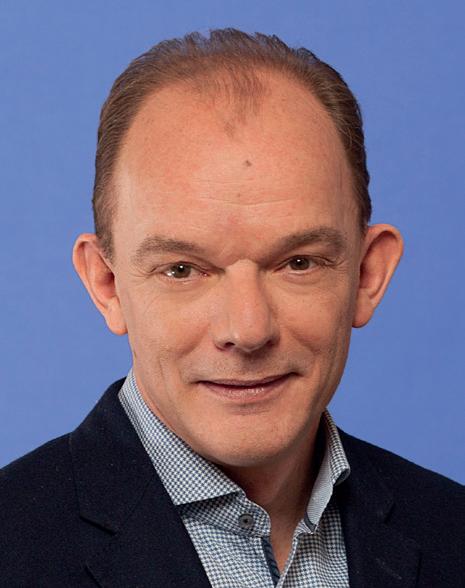
VAN VERRE 295| 55
FIRST 'Named Fund' WITHIN NYENRODE FUND FOUNDATION
The first "Named Fund" within Nyenrode Fund is a fact! On 15 December last year, the Jolt Oostra, on behalf of Lichting 1958 and Rector Magnificus Koen Becking, on behalf of the Nyenrode Fund, in the Knight’s Hall the agreement establishing the '1958 Legacy Scholarship Fund.'
With this named fund, the alumni of NOIB 1958 aim to make studying at Nyenrode Business University possible. Since 2004, no fewer than 23 scholarships have been awarded by the donors of Direction 1958. They deserve a deep bow! Meanwhile, some of the now graduated recipients of a "ichting 1958 scholarship" are also already donating into this fund. This ensures continuity. The intention of the fund is to continue to make scholarships possible in perpetuity. The legacy of 1958!
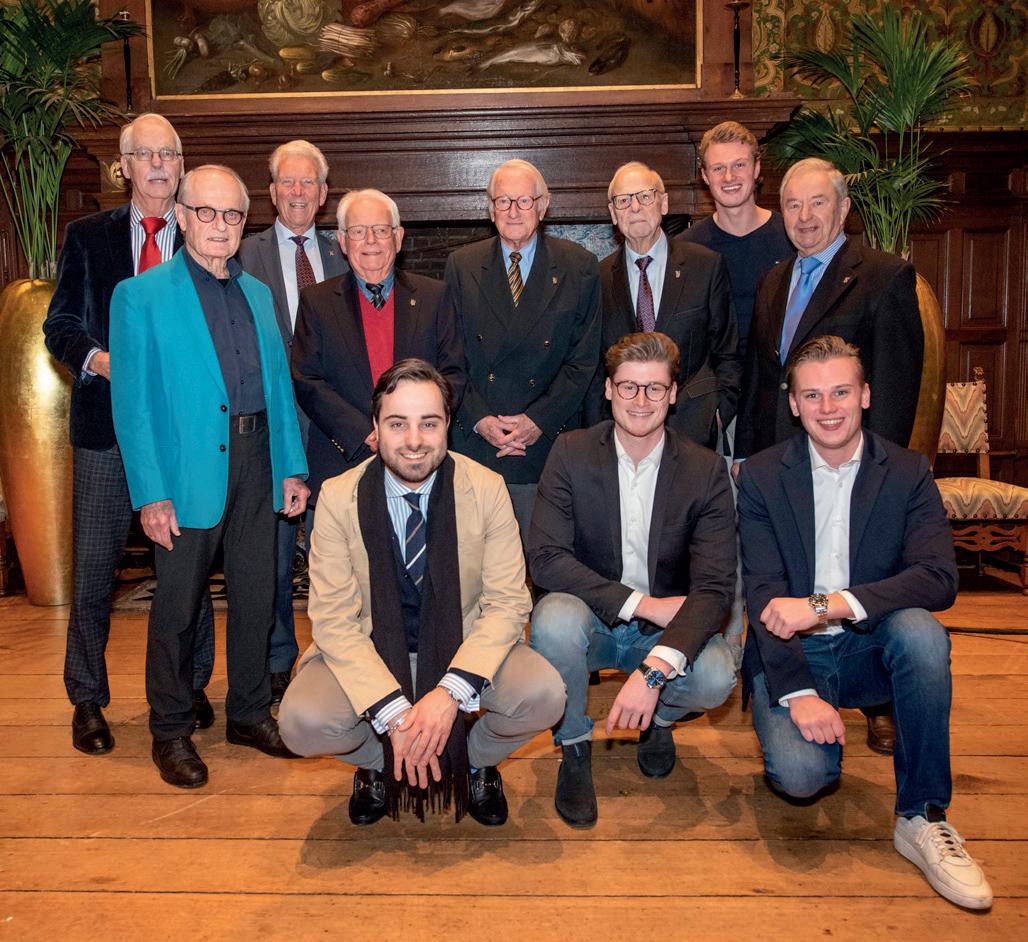
WHAT IS A NAMED FUND?
In short, a Named Fund is "a charity within an existing fund". In consultation, the objective is set to fit the specific wishes of the donor(s). Also, alumni setting up a Fund in Name can determine the name of the fund themselves, for example, their own name, the name of the Foundation, Dispuut/Verticaal or the name of a loved one, but it can also be, for example, a tribute to a scientist or entrepreneur or just a name that describes the objective.
The allocation, administration and accounting of expenditures from the fund is regulated by the Nyenrode Fund Foundation. In the annual report and on the website of the Nyenrode Fund, named funds and expenditures from them are reported separately. In this way, the fund forms a separate and visible part of the Nyenrode Fund.
DONATION
The minimum endowment for a Named Fund is 50,000 euros, to be donated through a periodic gift agreement of 10,000 a year, or a lump sum donation. Alumni may also consider setting up a fund in life and combining it with mention in the will. That way, the own fund will be replenished from the estate in the future. Thus, a named fund can still be an interesting option even if the minimum amount of 50,000 euros is not donated all at once. And the donor already enjoys the impact of his or her contribution during his or her lifetime.
TAX BENEFIT
With the establishment of a Named Fund, the entire donation is tax deductible, especially if the assets in the fund are accumulated through a periodic donation over five consecutive years. There is no cost associated with the establishment or management of a named fund.
SETTLERS
A Named Fund can be established by one or more individuals, as a Foundation or a Vertical together, but also by companies or legal entities such as foundations that wish to place (part of) their assets with the Nyenrode Fund.
MORE INFORMATION
Are you interested in the possibilities of a Named Fund within Nyenrode Fund? For more information and personal advice, please contact:
Anouk Reitsma
(T: +31 6 223 107 88) a.reitsma@nyenrode.nl
ADVERTISEMENT 56 | VAN VERRE 295
BASE FOR THE GIFTED
Femke Hovinga (20100039) cut the ribbon on Saturday, March 6, to mark the start of The Smartlink location in Nieuwendijk. Smartlinks is an organisation that helps gifted children in allowing all their potential to shine.
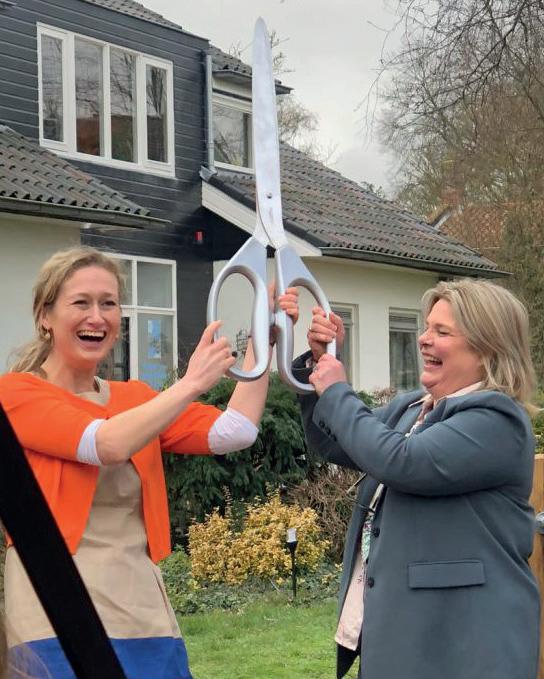
Femke herself: "I was into the galaxy as a child and thought: there is something wrong with me." She got an MBA, founded youth welfare organisation Talentissimo and became a publisher. (https://hbpraktijksmartlinks.nl)
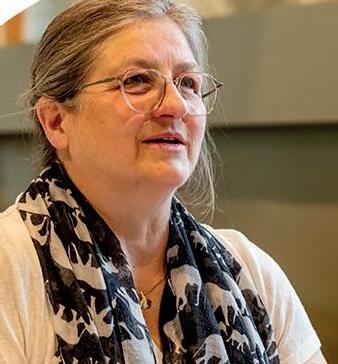
EUROPEAN START-UP TOPPER!
Corné van der Poel Msc Acc & PM RA 2016, founder of @Upgraders The Universal Bank, has been selected as one of the new toppers by EU Startup.News. @Upgraders focuses on critiquing the financial sector and innovative banking!
Editorial: Alumni Office - info@nyenrodealumni.nl
Send in private news: mail to info@nyenrodealumni.nl - tav privé nieuws.

MARKETPLACE FOR MUSCLE MASS TO SUPPLENESS
Jimme.com is the first online platform for personal trainers of various grades It is an online marketplace for supply and demand, from bodybuilding

To zen experience with yoga. Peer van Andel (20150225): "Through our website, we have been live for quite some time and are busy launching our app, including creating software to perfect the customer base of trainers and be able to serve."
Are you interested as a trainer or athlete? www.Jimme.com is for you!
Last minute FLOWERS!
Carlo van Noortwijk (20178201) co-founder of chic

Daily Flowers understands the modern generation: busy, busy and completely forgetting it's your mother's birthday. In shopping centre Hoog Catharijne, you can pull the most beautiful roses and bouquets from the wall 24/7! Big success.

ART FUND NYENRODE
On 9 February, the donation of a copper engraving by alumnus Rudie Cortissos (19570021) to the Art Fund Nyenrode Foundation took place in the Ridderzaal of the Castle. This work of art depicting "Het Huis Nyenrode, near Breukelen fiende aan de Vecht" by Jacobus Schijnvoet (1737), will be added to the Art Fund Nyenrode art collection, which already counts 13 donations from alumni.
MOUTH-WATERING
Ahead of the last provincial council elections, advisor wrote Anke Sitter (20070336) a catchy blog on the economic value of water, good story/ mouth-watering. (businessconstructionsite.com)
TUM TUM
VAN VERRE 295| 57
Femke pictured left.
Editorial: Alumni Office - info@nyenrodealumni.nl
Send in private news: mail to info@nyenrodealumni.nl - tav privé nieuws.
CHEER THE NYENRODE RUGBY 7S
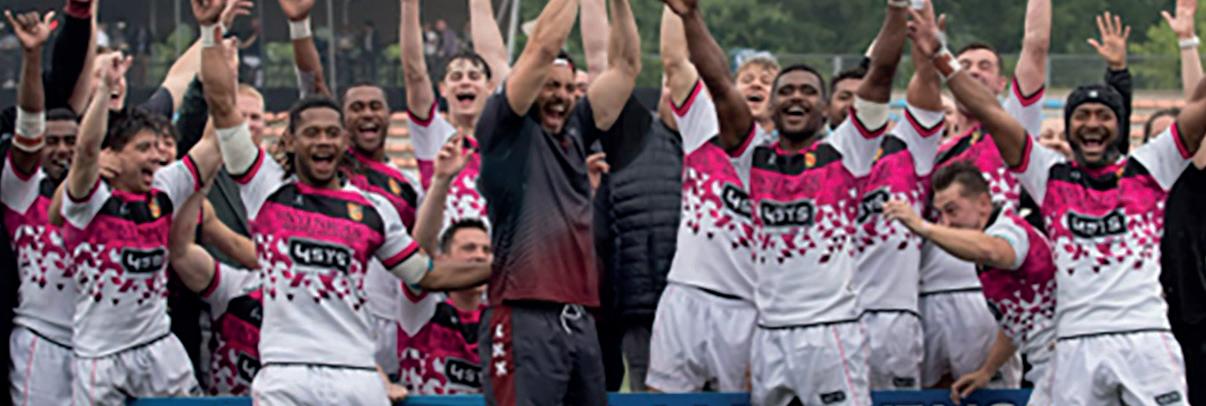
This year's Amsterdam Rugby 7s tournament will take place on 2-4 June. Last year, the Nyenrode Rugby 7s team, led by Hasan Akman (20040002) won the whole tournament in impressive fashion! Naturally, the men will once again go for the win. The team cordially invites alumni to encourage and support. Hence, as Nyenrode, we reimburse the entrance fee for those interested. Lets go Nyenrode 7s!
MONUMENT TO FIRST LOVE
Childhood romances can keep a man spellbound for the rest of his life. It happened to Nyenrodian Rob Verboog (19760086). He found out last year that his first love, South African Ann, had died 31 years ago. It was a heartbreaking experience, upon which he placed an obituary in The Telegraph:
"Unconsciously, I have always been looking for her. For decades, I looked back whenever I saw a glimpse of blonde hair and heard a woman speaking English somewhere for work abroad. At airports, on the street. Never was it Ann."

At www.samantha-ann.nl, Rob has created a digital place to honour her and tie up the loose ends of his quest.
Source: The Telegraph / Reportage - Dec 17, 2022
M&A DECLINES
The growth of the Dutch acquisition market for SMEs has turned into a contraction. Although Tom Beltman (20000005) still sees a well-filled pipeline of assignments for acquisition advisers. Although rising interest rates are causing prices to flatten slightly, according to Beltman: “There is still a lot of interest in software companies. For the other sectors, the growth is out.”
Source: FD
LEADING LADY CYBERSECURITY
Het Financieele Dagblad has announced its choice of the new crop of languages-ten in management and entrepreneurship published. Among the top 50 in 2023 is alumna and leading lady in Cyber Esther Schagen-van Luit (20120043)! She wants to

be a role model for women in Cybersecurity. It is an intermediate stage. “We have another important glass ceiling: that of female directors and supervisory board members. I want to take steps to prepare for such a position.” To ambition, no shortage! Source: FD
METAVERSE SHOPPING MALL
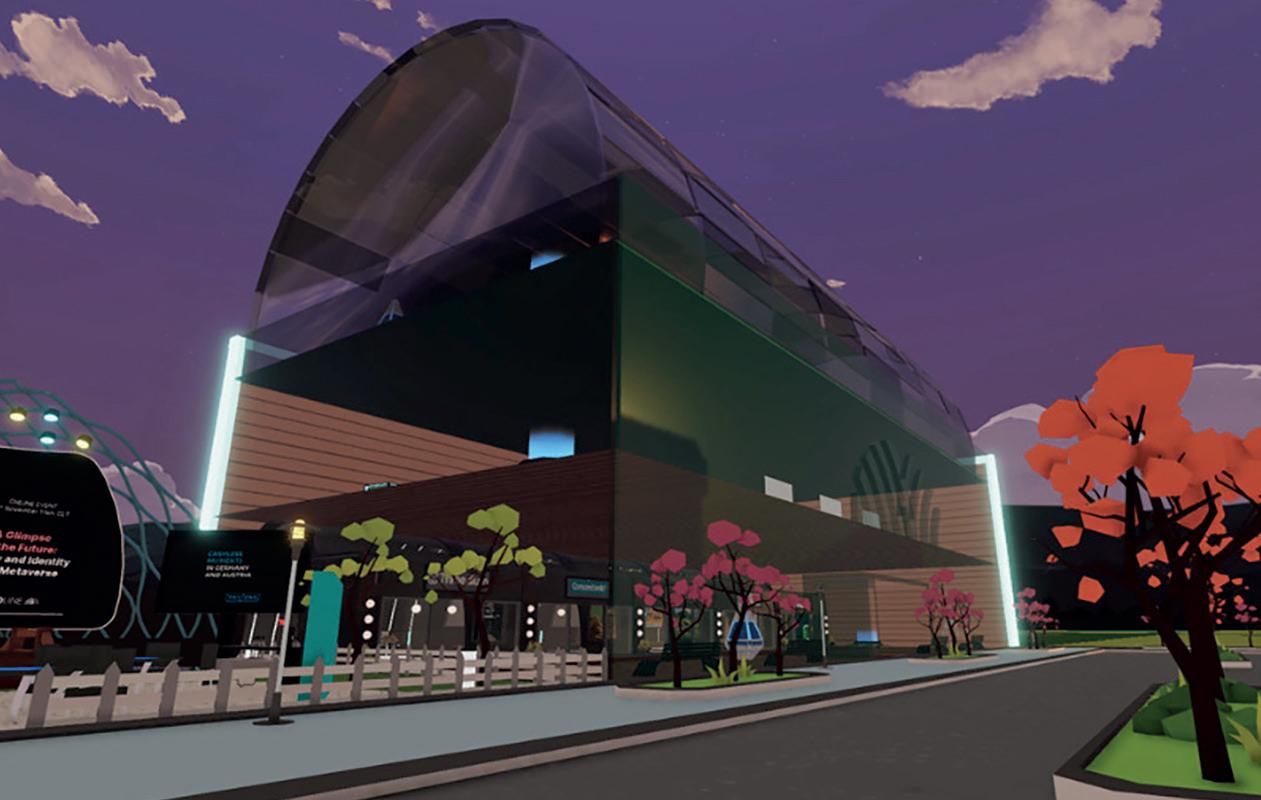
Babouschka van Bilsen (20060016) head of metaverse
Web3/crypto was closely involved in the launch of a metaverse shopping mall. Companies from different sectors spent a year testing how their target audience reacts and how to tap into Metaverse's potential in a simple way. The cost reduction for the future offers well-known brands/companies that they can venture into Metaverse with confidence.
58 | VAN VERRE 295
TUM TUM
COLOPHON
BORN
James Lyo Kanters
Born on 10-12-2022 in Brielle
Son of Louise Nieuwland & Brad Kanters (20160811)
Philippine Lola Beatrice
Born on 29-08-2022 in Rotterdam

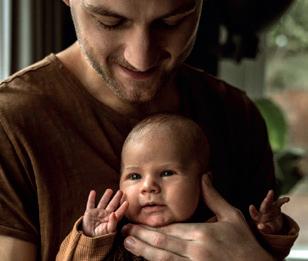
Son of Myrthe-Carine Brakel (MSc16) & Henk Fennis (MSc20), Little brother of Bouke
PRIVATE DECEASED
Ko Rustige (19965114)
Bert Bakker (19760007)
Sybrand Rengert Siezen (19640107)
Berend Albert Dingemans (19570024)
Louk van Asperen (19610002)
Henk Spijkerman (19640116)
Jannes Arend de Boer (19570501)
Frank Milané (19790512)
Wout Spruijt (19660524)
Charles van Os (19650106)
Hans Verkleij (19620106)
Henk Van de Bunt (19670024)
Evert Schermerhorn (19670112)
Ben Schlattmann (19590084)
Leontine de Groot (19910169)
Gert Immerzeel – former heritage manager NBU
VAN VERRE
VAN VERRE Is the official periodical of the Nyenrode Alumni Continuing Company of Far (VCV), Association of alumni at Nyenrode and appears every three months in a circulation of 5,900.
65th annual issue, March 2023, number 295
EDITOR-IN-CHIEF
Oele Steenks (19720057 BBA) - josteenks@planet.nl
ART DIRECTOR:
Roos Jonker - ter Kuile
COORDINATION:
Simone Daniëls (19960021)
EMPLOYEES
Liselotte van Dedem-Staal; Dine van Dijk; Collegie der Heeren V; JCV; Frans Lemmens (19710024) fotografie; Gary de Vogel (20107252); VAS Bestuur
COLUMNISTS
Kape Breukelaar (19860015)
Prof. dr. Désirée M. van Gorp LL.M.
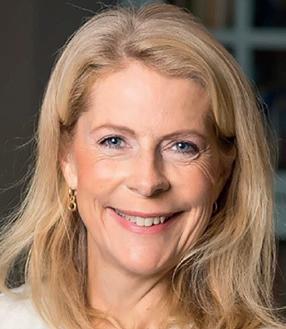
EDITORIAL ADDRESS AND SECRETARIAT
Nyenrode Alumni VCV Office
Nyenrode Business Universiteit
Straatweg 25 3621 BG Breukelen
t: (+31) 346 29 15 13
e: info@nyenrodealumni.nl w: nyenrodealumni.nl
bank: ING Bank Breukelen
IBAN: NL54 INGB 0657 3453 50, BIC: INGBNL2A
The membership fee is 75,- euros per year, partner membership is 20,- euros per year
ADS
Nyenrode Alumni VCV Office
t: (+31) 346 29 15 13
e: info@nyenrodealumni.nl
IN MEMORIAM:
Leontine de Groot (19910169) MEMBER OF MERIT
Leontine did not say goodbye but celebrated her life celebration on 10 March. She was an energetic, smart, cheerful and sociable Nyenrodian, who worked hard but could also put out the
flowers. She served in the Heeren V, two VCV Main Boards and in the background meant a lot to the Nyenrode community and VCV.
Evert Schemerhoorn
(19670112) MEMBER OF MERIT
He was a people person, amiable, friendly and approachable and did a lot for VCV.
SUBSCRIPTION
As a member of Nyenrode Alumni VCV, you will receive Van Verre for free.
ISSN 2405-626X
NUMBER 296 – DEADLINE 15 April 2023 –
THEME The secret of Switzerland
The digital editions of Van Verre in Dutch and English can be found at nyenrodealumni.nl. The content of the magazine may be indexed by search engines such as Google. You will also find the most up-to-date information on the platform. Besides Van Verre, as a member you will also receive the digital newsletter eight times a year, which is complementary to this publication.
The editors reserve the right to refuse, shorten or otherwise edit copy at any time. Posting copy does not imply that the editors always endorse the tenor of what is written.
All rights reserved. No part of this publication may be reproduced, stored in an automatic database or published in any form or by any means, electronic, mechanical, photocopying, recording or otherwise, without the prior written permission of Nyenrode Alumni VCV.
VAN VERRE 295| 59


Scan de QR
ook in Den Haag
Afspraak maken?
Nu


















 Farato Education programme Gambia.
Stare Down for Boxing Gala.
Farato Education programme Gambia.
Stare Down for Boxing Gala.


















 GARY DE VOGEL:
GARY DE VOGEL:








































 BY OELE STEENKS PHOTOS SHAYNE VERVOORT
BY OELE STEENKS PHOTOS SHAYNE VERVOORT




 BY OELE STEENKS PHOTOS LIES OUDEMANS
BY OELE STEENKS PHOTOS LIES OUDEMANS





 BY OELE STEENKS PHOTOS DOOR LINDA HUMMEL
BY OELE STEENKS PHOTOS DOOR LINDA HUMMEL



















